The 100 Best Albums of the 2020s So Far
Pop brilliance, indie phenomena, jazz rap treasures, and experimental triumphs have defined the decade so far.

What is the defining album of the 2020s thus far? It’s an unanswerable question, really. In 2020, Fiona Apple released a near-perfect record into a pandemic-riddled world; in 2024, few phenomenons have been as phenomenal as Brat Summer, which was preceded by a one-in-a-million buzz swirling around Cindy Lee’s YouTube-only Diamond Jubilee; in the three full years that passed in-between that, Alvvays came out with a career-defining, all-time great LP and we all watched the rise of MJ Lenderman come to a boil. Epic, generational texts from some of the greatest bands alive—like the War on Drugs and Young Fathers—entered the zeitgeist, while lesser-known artists—like Fust, Grace Ives and ML Buch—enraptured us with lively, brilliant efforts we’re still thinking about two, three years later. Our culture changes with every new season, but we’ve done our best to try and capture just a piece of these last four years. Here are our picks for the 100 best albums of the 2020s so far, picked by the Paste staff, freelance cohort and interns of past and present. All of these albums were released between January 1, 2020 and October 1, 2024, and their genres range from country rock, to jazz rap, to synth-pop, to singer-songwriter, electroclash, dariacore, Appalachian chamber music, EDM and beyond. —Matt Mitchell, Paste Music Editor
100. Caroline Rose: Superstar (2020)
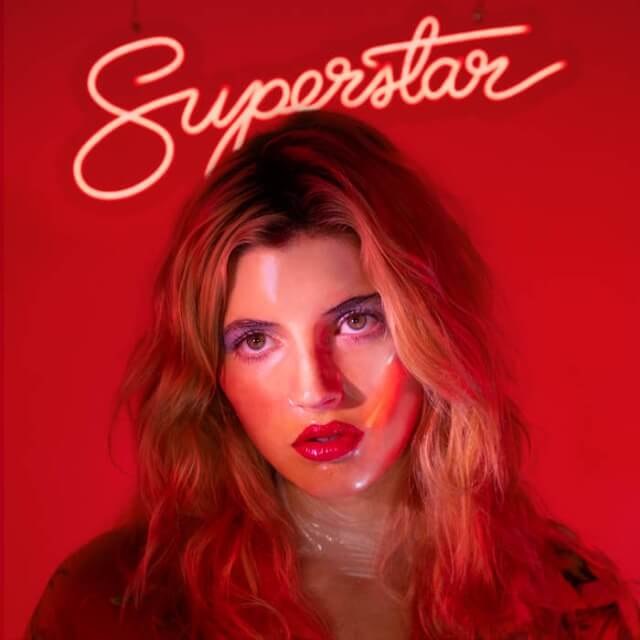 There were so many albums that came out in the strange time warp that was pre-COVID 2020 that fell through the quarantine memory-hole without an artifactual trace, but Caroline Rose’s resilient and witty fourth album Superstar pushed itself through by pushing itself further. Released in March ofthat year, it possesses the glittery, synthy-mall pop sound that propelled Rose into the indie conversation with their 2018 album LONER, but etches an honest and unfeigned portrait of sticky-sweet romance, crush anxiety and being a proud feeler. Instead of taking a more traditional big-picture route, Rose transforms quick snapshots of their low moments into fun, heartfelt disco-tinged tracks. As the album progresses, they approach romance with a confident force, from fawning over a possibly disinterested lover (“You know that I love you babe / Don’t you feel the same?”) to letting the sensations of an unrelenting crush wash over them (“But baby, watch me freak out / Gonna feel the way I want to”). Rose sees that love doesn’t have to be this spotless, distilled picture book, and Superstar celebrates the multidimensional, messy obsessiveness that comes with it all. “My love is a skin-tight suit,” they share on “Freak Like Me,” as they continue to embrace the pipe-dreams, the excessive PDA and the overarching weirdness of love in a codependent age. —Alli Dempsey
There were so many albums that came out in the strange time warp that was pre-COVID 2020 that fell through the quarantine memory-hole without an artifactual trace, but Caroline Rose’s resilient and witty fourth album Superstar pushed itself through by pushing itself further. Released in March ofthat year, it possesses the glittery, synthy-mall pop sound that propelled Rose into the indie conversation with their 2018 album LONER, but etches an honest and unfeigned portrait of sticky-sweet romance, crush anxiety and being a proud feeler. Instead of taking a more traditional big-picture route, Rose transforms quick snapshots of their low moments into fun, heartfelt disco-tinged tracks. As the album progresses, they approach romance with a confident force, from fawning over a possibly disinterested lover (“You know that I love you babe / Don’t you feel the same?”) to letting the sensations of an unrelenting crush wash over them (“But baby, watch me freak out / Gonna feel the way I want to”). Rose sees that love doesn’t have to be this spotless, distilled picture book, and Superstar celebrates the multidimensional, messy obsessiveness that comes with it all. “My love is a skin-tight suit,” they share on “Freak Like Me,” as they continue to embrace the pipe-dreams, the excessive PDA and the overarching weirdness of love in a codependent age. —Alli Dempsey
99. boygenius: the record (2023)
 The first EP from boygenius—the supergroup composed of three of the greatest millennial rock singers: Julien Baker, Phoebe Bridgers and Lucy Dacus—felt raw in an almost accidental way, like we were peeking into a quiet evening among friends through a door left ajar. the record travels to a similar space emotionally, but everything about it feels more curated: the tracklist, the sonic mood, and the sharing of the mic (and pen—all three artists are credited as songwriters on every song). Boygenius’ collaboration is harmonious in more ways than one, and the record shows they belong among the ranks of the greatest American supergroups. For every bar of lo-fi folk or pop music on the record, there’s a rock ’n’ roll outburst to match. In the fashion of Bridgers’s “I Know The End” (and a seemingly endless stream of indie rock songs since then), both “$20” and “Satanist” feature guttural screams. “Anti-Curse” is another great, loud moment. Baker initially takes the lead, but then a little glimpse of each artist comes into focus: Dacus’s trembling guitars, Bridgers’s cool soprano against the backdrop, and Baker’s warm-blooded words. Their three voices together are magic, they know this, and best of all, they seem to just really enjoy making music together as much as we enjoy listening to it. Baker, Bridgers and Dacus are nothing if not effective communicators, but it’s clear the most important dialogue is between each other. —Ellen Johnson
The first EP from boygenius—the supergroup composed of three of the greatest millennial rock singers: Julien Baker, Phoebe Bridgers and Lucy Dacus—felt raw in an almost accidental way, like we were peeking into a quiet evening among friends through a door left ajar. the record travels to a similar space emotionally, but everything about it feels more curated: the tracklist, the sonic mood, and the sharing of the mic (and pen—all three artists are credited as songwriters on every song). Boygenius’ collaboration is harmonious in more ways than one, and the record shows they belong among the ranks of the greatest American supergroups. For every bar of lo-fi folk or pop music on the record, there’s a rock ’n’ roll outburst to match. In the fashion of Bridgers’s “I Know The End” (and a seemingly endless stream of indie rock songs since then), both “$20” and “Satanist” feature guttural screams. “Anti-Curse” is another great, loud moment. Baker initially takes the lead, but then a little glimpse of each artist comes into focus: Dacus’s trembling guitars, Bridgers’s cool soprano against the backdrop, and Baker’s warm-blooded words. Their three voices together are magic, they know this, and best of all, they seem to just really enjoy making music together as much as we enjoy listening to it. Baker, Bridgers and Dacus are nothing if not effective communicators, but it’s clear the most important dialogue is between each other. —Ellen Johnson
98. Empress Of: I’m Your Empress Of (2020)
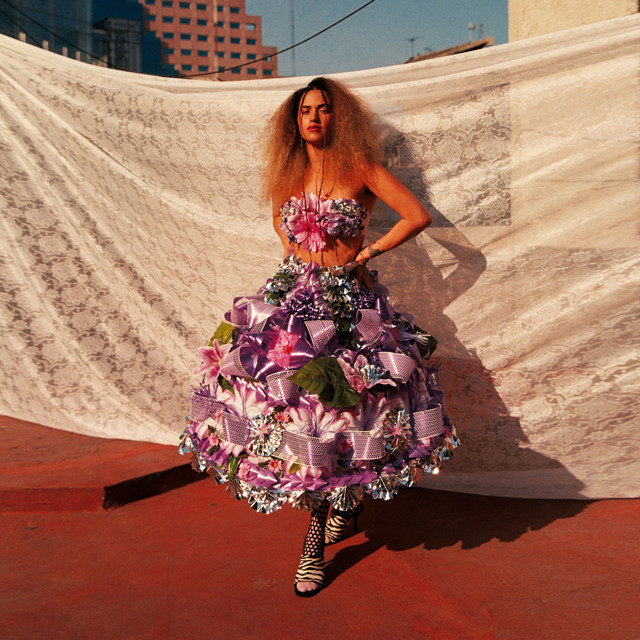 While we may associate sparsely plucked guitar strings and stripped-down vocals with emotionally vulnerable music, something about the rhythm of a heavy beat taps into the core of our humanity. No one knows this like Lorely Rodriguez, aka Empress Of. On her third album I’m Your Empress Of, Rodriguez explores herself—particularly in terms of her womanhood—through romantic relationships. Between neon pangs of synth and liquid percussion, she opens up about her own insecurities and desires. The Honduran-American artist proves that raw personal narratives and dance pop can happily coexist, picking up the mantle from forerunners like Robyn. The record’s opening and title track features Rodriguez’s mother saying of her daughter, “I only have one girl / But the only girl is like having thousands of girls / Because look at how many times she reproduces herself in each bunch of you.” Rodriguez holds up each of these thousands of girls to the light song by song, from her lovestruck persona in “Bit Of Rain” (“You closed your eyes heavy blinds to a house / I want everything inside to spill out”) to the wounded, insecure version of herself on “Void” (“You never listen when I said it hurts / I talk big but don’t know my worth”). —Clare Martin
While we may associate sparsely plucked guitar strings and stripped-down vocals with emotionally vulnerable music, something about the rhythm of a heavy beat taps into the core of our humanity. No one knows this like Lorely Rodriguez, aka Empress Of. On her third album I’m Your Empress Of, Rodriguez explores herself—particularly in terms of her womanhood—through romantic relationships. Between neon pangs of synth and liquid percussion, she opens up about her own insecurities and desires. The Honduran-American artist proves that raw personal narratives and dance pop can happily coexist, picking up the mantle from forerunners like Robyn. The record’s opening and title track features Rodriguez’s mother saying of her daughter, “I only have one girl / But the only girl is like having thousands of girls / Because look at how many times she reproduces herself in each bunch of you.” Rodriguez holds up each of these thousands of girls to the light song by song, from her lovestruck persona in “Bit Of Rain” (“You closed your eyes heavy blinds to a house / I want everything inside to spill out”) to the wounded, insecure version of herself on “Void” (“You never listen when I said it hurts / I talk big but don’t know my worth”). —Clare Martin
97. Cory Hanson: Western Cum (2023)
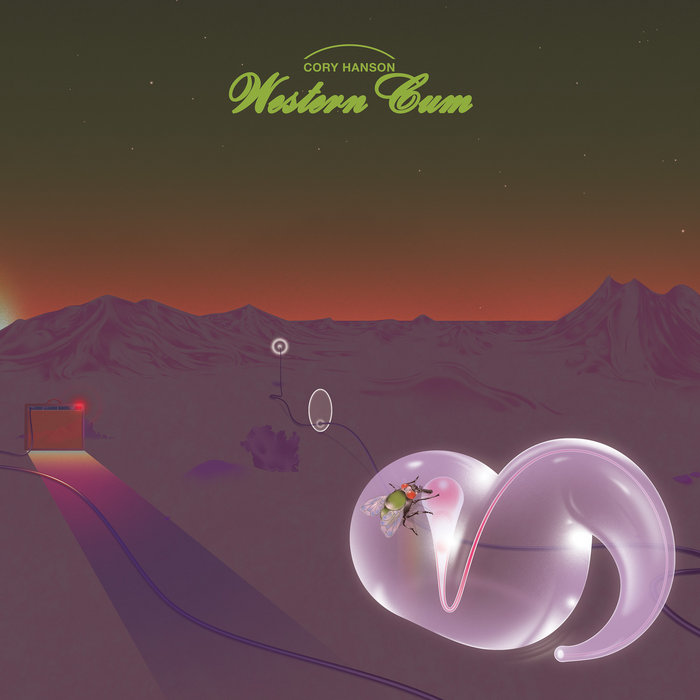 As I lay on my couch and allow myself to be fully ensconced within the world Cory Hanson built on his 2023 record, Western Cum, I am transported to an alternate dimension. It’s not just an ace title; this record turns me inside out. I stick a pair of devil’s horns up to the heavens as Hanson careens into a firewall of riffs and sings about sardine-sized submarines and cocaine taped to a set of balls. That in no way is meant to imply that Hanson is not taking himself seriously on Western Cum. In fact, the truth is wholly the opposite. The album is a meticulous, thoughtful ode to the guitar-forward rock ‘n’ roll that can make Baby Boomer dads quake in their own wetness and convulse into uncontrollable head-banging. From the very first lick, in a moment where the musical zeitgeist has never needed old school rock ‘n’ roll so deeply, Western Cum heeds the volcanic, bulging, intoxicating call. —Matt Mitchell
As I lay on my couch and allow myself to be fully ensconced within the world Cory Hanson built on his 2023 record, Western Cum, I am transported to an alternate dimension. It’s not just an ace title; this record turns me inside out. I stick a pair of devil’s horns up to the heavens as Hanson careens into a firewall of riffs and sings about sardine-sized submarines and cocaine taped to a set of balls. That in no way is meant to imply that Hanson is not taking himself seriously on Western Cum. In fact, the truth is wholly the opposite. The album is a meticulous, thoughtful ode to the guitar-forward rock ‘n’ roll that can make Baby Boomer dads quake in their own wetness and convulse into uncontrollable head-banging. From the very first lick, in a moment where the musical zeitgeist has never needed old school rock ‘n’ roll so deeply, Western Cum heeds the volcanic, bulging, intoxicating call. —Matt Mitchell
96. Greg Mendez: Greg Mendez (2023)
 “Picking up the things you left / I never thought I’d be so upset” are the lines Greg Mendez uses to open his new, self-titled album. It’s a fitting entrance for the Philadelphian, as he spends the next nine songs putting back together the fragments of his own life—attempting to understand the absurdity of his own truth and what hard damage has met him on the road to clarity. Ever the master of his storytelling craft, Mendez makes a bookend out of imagery that can be plugged into anyone’s own correspondence with the world around them. Greg Mendez is one man’s vulnerable, open book made accessible to anyone who might find something courageous or trusting within it. From drug use to heartbreak to childhood trauma to houselessness, Mendez offers a loving embrace drenched with hindsight to his former self. In turn, the album is not a critique of his past, but an attempt at understanding how it informs his personhood in the present. He populates the tracklist with recoiling and punctuated stories that are as humorous as they are heartbreaking. —Matt Mitchell
“Picking up the things you left / I never thought I’d be so upset” are the lines Greg Mendez uses to open his new, self-titled album. It’s a fitting entrance for the Philadelphian, as he spends the next nine songs putting back together the fragments of his own life—attempting to understand the absurdity of his own truth and what hard damage has met him on the road to clarity. Ever the master of his storytelling craft, Mendez makes a bookend out of imagery that can be plugged into anyone’s own correspondence with the world around them. Greg Mendez is one man’s vulnerable, open book made accessible to anyone who might find something courageous or trusting within it. From drug use to heartbreak to childhood trauma to houselessness, Mendez offers a loving embrace drenched with hindsight to his former self. In turn, the album is not a critique of his past, but an attempt at understanding how it informs his personhood in the present. He populates the tracklist with recoiling and punctuated stories that are as humorous as they are heartbreaking. —Matt Mitchell
95. Beth Orton: Weather Alive (2022)
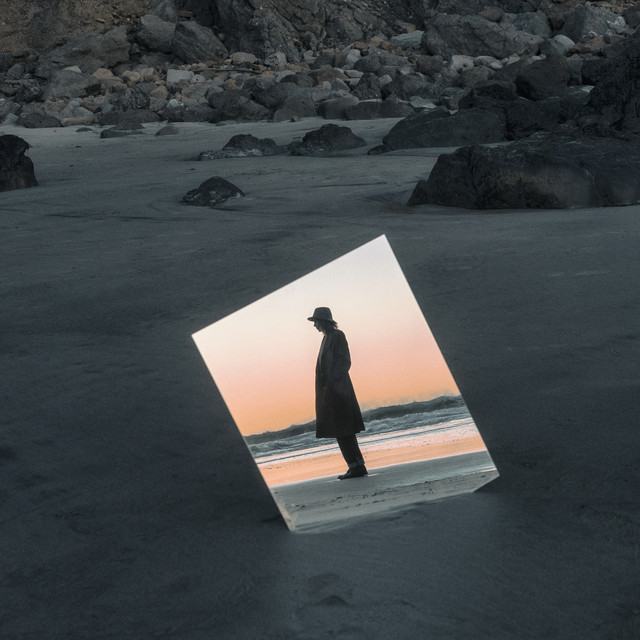 With 1996’s Trailer Park and 1999’s Central Reservation, Beth Orton proved herself to be a formidable force in the folk music landscape—earning a Brit Award, Mercury Prize nomination and a slew of Top 40 singles in the UK. But Orton struggled in the face of newfound fame, leaning on alcohol and weed as coping mechanisms to touring and appearing uncomfortable in interviews when asked to define her sound. It was all the more rewarding then to see Orton fully settle into her full musical identity—indefinable idiosyncrasies and all—on 2022’s Weather Alive, her magnum opus. Atmospheric, homespun and free of pretense, Orton’s 8th LP was written at a soot-filled, second-hand piano and is filled with tales of isolation, self-discovery, grief and healing. It’s nothing short of a revelation. When Orton sings repeatedly of “coming alive” on the rich, full-band title track, you have to believe her. —Tom Williams
With 1996’s Trailer Park and 1999’s Central Reservation, Beth Orton proved herself to be a formidable force in the folk music landscape—earning a Brit Award, Mercury Prize nomination and a slew of Top 40 singles in the UK. But Orton struggled in the face of newfound fame, leaning on alcohol and weed as coping mechanisms to touring and appearing uncomfortable in interviews when asked to define her sound. It was all the more rewarding then to see Orton fully settle into her full musical identity—indefinable idiosyncrasies and all—on 2022’s Weather Alive, her magnum opus. Atmospheric, homespun and free of pretense, Orton’s 8th LP was written at a soot-filled, second-hand piano and is filled with tales of isolation, self-discovery, grief and healing. It’s nothing short of a revelation. When Orton sings repeatedly of “coming alive” on the rich, full-band title track, you have to believe her. —Tom Williams
94. The Reds, Pinks & Purples: The Town That Cursed Your Name (2023)
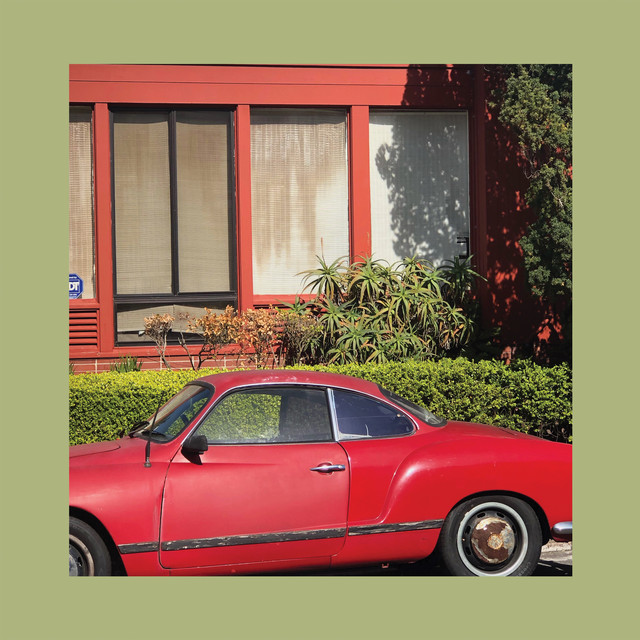 Since 2019 Glenn Donaldson has released seven albums and a slew of EPs full of wistful, yearning indie pop under the name The Reds, Pinks and Purples. It’s a testament to how consistently great his songs are that 2023’s The Town That Cursed Your Name isn’t clearly his best record yet; his stuff has been uniformly great all along. His latest record has a handful of songs that could only have been written by somebody who’s spent a lot of time in the indie-rock world, with blackly comic songs about record labels falling apart and bands breaking up after not making money. It’s all set to gauzy ear worms that could’ve been released by Sarah Records in the ’80s, Donaldson’s voice aching with a sincerity that’s not always on the level. When he sings about commercial failure and disappearing labels he sings from experience; Donaldson has been making music for over 30 years and was a major figure in the Jewelled Antler collective that released some of the more interesting music in the “freak-folk” / “new weird America” scene of the early-mid ’00s. If you have any Thuja, Skygreen Leopards, or Flying Canyon records, you’ve heard his work before. (He probably played on like a third of the songs that were on my iPod in 2006 and 2007.) The RPPs is a very different project, but it’s steeped in the same independent spirit that has motivated pretty much all of Donaldson’s work. —Garrett Martin
Since 2019 Glenn Donaldson has released seven albums and a slew of EPs full of wistful, yearning indie pop under the name The Reds, Pinks and Purples. It’s a testament to how consistently great his songs are that 2023’s The Town That Cursed Your Name isn’t clearly his best record yet; his stuff has been uniformly great all along. His latest record has a handful of songs that could only have been written by somebody who’s spent a lot of time in the indie-rock world, with blackly comic songs about record labels falling apart and bands breaking up after not making money. It’s all set to gauzy ear worms that could’ve been released by Sarah Records in the ’80s, Donaldson’s voice aching with a sincerity that’s not always on the level. When he sings about commercial failure and disappearing labels he sings from experience; Donaldson has been making music for over 30 years and was a major figure in the Jewelled Antler collective that released some of the more interesting music in the “freak-folk” / “new weird America” scene of the early-mid ’00s. If you have any Thuja, Skygreen Leopards, or Flying Canyon records, you’ve heard his work before. (He probably played on like a third of the songs that were on my iPod in 2006 and 2007.) The RPPs is a very different project, but it’s steeped in the same independent spirit that has motivated pretty much all of Donaldson’s work. —Garrett Martin
93. Dua Lipa: Future Nostalgia (2020)
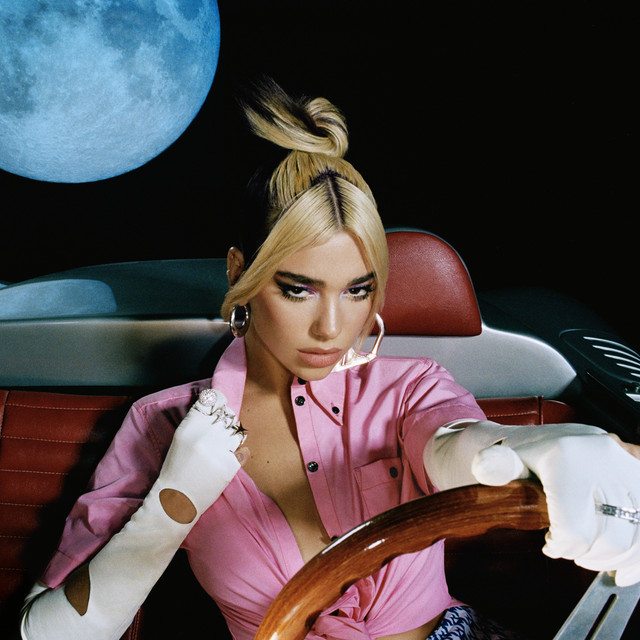 It’s something of a sin that Dua Lipa’s chart-topping record Future Nostalgia was released only a couple weeks into lockdown; the UK pop star’s second studio album was absolutely begging to be blasted in the club. In the years since it certainly has been—and we were lucky enough to get “Don’t Start Now” at the very end of the 2010s, ushering in pop’s disco revival in the early 2020s. Future Nostalgia is a tantalizingly slick pop record, with bouncing bass lines, hip-shaking thwacks of drum machine, stratospheric strings and Lipa’s brazen vocal performance tying it all together. Lipa crafts the future of pop music with one eye on the past, bringing the best of disco, ‘80s electro pop, house and more into the 21st century. This is Lipa’s most impressive record to date, with the steamy, neon-tinged “Physical” and “Don’t Start Now” reaching Platinum in the United States, while the swaggering “Levitating” went Diamond. These tracks can overshadow others that would be career-highs for anyone else, like the mesmerizing disco number “Love Again” and the cheeky, almost Lily Allen-esque “Good In Bed.” Both a blast from the past and destined to endure in the coming decades, Dua Lipa cemented her place in pop history with Future Nostalgia. —Clare Martin
It’s something of a sin that Dua Lipa’s chart-topping record Future Nostalgia was released only a couple weeks into lockdown; the UK pop star’s second studio album was absolutely begging to be blasted in the club. In the years since it certainly has been—and we were lucky enough to get “Don’t Start Now” at the very end of the 2010s, ushering in pop’s disco revival in the early 2020s. Future Nostalgia is a tantalizingly slick pop record, with bouncing bass lines, hip-shaking thwacks of drum machine, stratospheric strings and Lipa’s brazen vocal performance tying it all together. Lipa crafts the future of pop music with one eye on the past, bringing the best of disco, ‘80s electro pop, house and more into the 21st century. This is Lipa’s most impressive record to date, with the steamy, neon-tinged “Physical” and “Don’t Start Now” reaching Platinum in the United States, while the swaggering “Levitating” went Diamond. These tracks can overshadow others that would be career-highs for anyone else, like the mesmerizing disco number “Love Again” and the cheeky, almost Lily Allen-esque “Good In Bed.” Both a blast from the past and destined to endure in the coming decades, Dua Lipa cemented her place in pop history with Future Nostalgia. —Clare Martin
92. Choir Boy: Gathering Swans (2020)
 The chilling synthetic pop of Choir Boy, rooted in punk movements that helped birth the New Wave, has a way of drawing listeners in. Chaz Costello’s rich basslines and Jeff Kleinman’s saxophone/keyboard flourishes are especially great for setting the scene. It’s Adam Klopp’s peculiar voice, which earned him the name “choir boy” in jest in his Greater Cleveland youth, that makes an album like Gathering Swans so formidable: He croons like few can, convincingly, on anything from recognizing and tossing self-imposed doldrums (“Complainer”) to lovesickness endured by those who deny themselves a chance at romantic fulfillment (“Sweet Candy”). Even the woodwind- and bell-inflected interlude “St. Angela Merici” feels diegetic, as if the ghost of the church haunts somewhere below the surface. It’s on the title track that Choir Boy ascends to new heights, delivering extra pathos without veering into the pathetic. It’s an album rooted in genuine emotion and aesthetic integrity, pushing what could be viewed as an ‘80s pastiche into much grander territory. —Devon Chodzin
The chilling synthetic pop of Choir Boy, rooted in punk movements that helped birth the New Wave, has a way of drawing listeners in. Chaz Costello’s rich basslines and Jeff Kleinman’s saxophone/keyboard flourishes are especially great for setting the scene. It’s Adam Klopp’s peculiar voice, which earned him the name “choir boy” in jest in his Greater Cleveland youth, that makes an album like Gathering Swans so formidable: He croons like few can, convincingly, on anything from recognizing and tossing self-imposed doldrums (“Complainer”) to lovesickness endured by those who deny themselves a chance at romantic fulfillment (“Sweet Candy”). Even the woodwind- and bell-inflected interlude “St. Angela Merici” feels diegetic, as if the ghost of the church haunts somewhere below the surface. It’s on the title track that Choir Boy ascends to new heights, delivering extra pathos without veering into the pathetic. It’s an album rooted in genuine emotion and aesthetic integrity, pushing what could be viewed as an ‘80s pastiche into much grander territory. —Devon Chodzin
91. Jim Legxacy: homeless n***a pop music (2023)
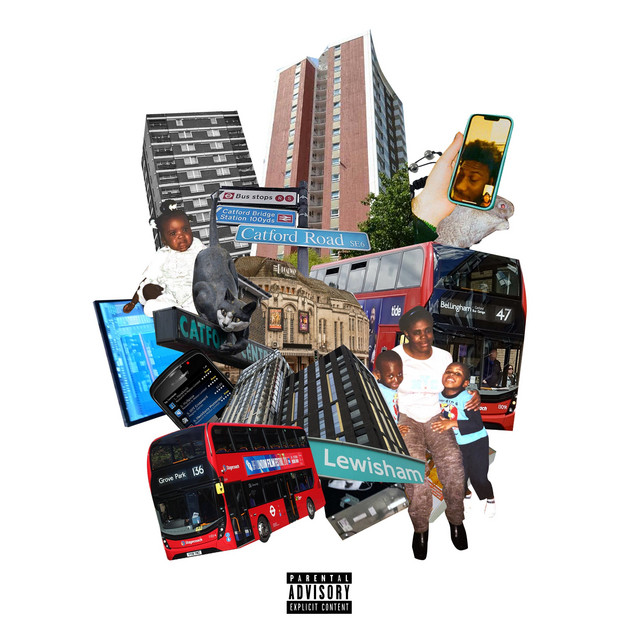 On his 2023 mixtape, homeless n***a pop music, Jim Legxacy does it all. He meets the nexus between emo, hip-hop, Afrobeats, Jersey club and Hannah Montana. It’s where American Football guitar noodling and drill beats get equal billing. On a swift, relentlessly fun project with a sub-half-hour runtime, the UK singer, rapper and producer jumps from idea to idea like a hurried crate digger. But it never feels disjointed, even when such shifts occur within the same track. The centerpiece, “block hug,” is the paragon of Jim Legxacy’s artistic ethos, where he starts out crooning over dulcet arpeggios only to flip the whole thing on its head; a hip-hop beat soon enters the fold, only for that to get flipped on its head when he does an about-face, going from despondent lines about young heartbreak into bars about upward mobility. Across the mixtape’s 12 songs, Jim Legxacy synthesizes his disparate influences, practically transcending genre altogether to create something wholly his own. —Grant Sharples
On his 2023 mixtape, homeless n***a pop music, Jim Legxacy does it all. He meets the nexus between emo, hip-hop, Afrobeats, Jersey club and Hannah Montana. It’s where American Football guitar noodling and drill beats get equal billing. On a swift, relentlessly fun project with a sub-half-hour runtime, the UK singer, rapper and producer jumps from idea to idea like a hurried crate digger. But it never feels disjointed, even when such shifts occur within the same track. The centerpiece, “block hug,” is the paragon of Jim Legxacy’s artistic ethos, where he starts out crooning over dulcet arpeggios only to flip the whole thing on its head; a hip-hop beat soon enters the fold, only for that to get flipped on its head when he does an about-face, going from despondent lines about young heartbreak into bars about upward mobility. Across the mixtape’s 12 songs, Jim Legxacy synthesizes his disparate influences, practically transcending genre altogether to create something wholly his own. —Grant Sharples
90. Mdou Moctar: Afrique Victime (2021)
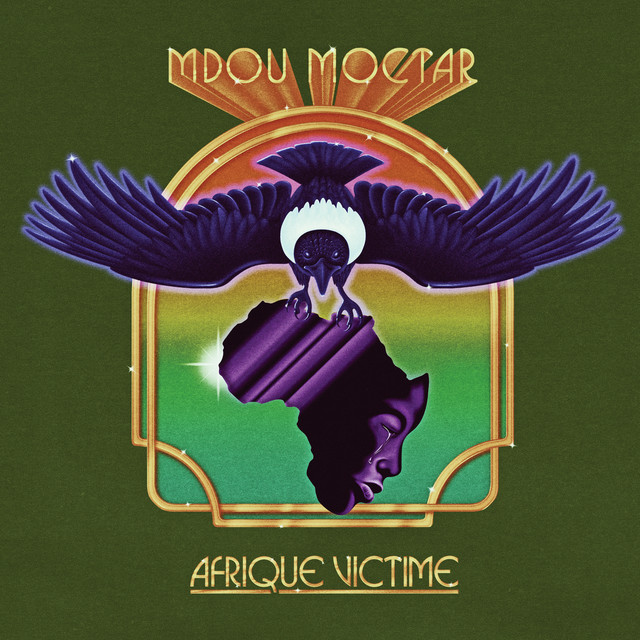 It’s best to ignore the fact that Matador Records billed Afrique Victime as a cross between Van Halen, Black Flag and Black Uhuru. Mdou Moctar may be a Billy Gibbons fan, but those descriptors sell him short—not because it wouldn’t be cool as hell to hear a Saharan shredder type emerge from the Sahel setting his fretboard on fire, but because Moctar isn’t that player. As Afrique Victime makes abundantly clear, the real selling point here is how delightfully inviting and accessible he tends to be. Yes, there are blazing solos and squalls of feedback, such as on the extended lead section of the title track. Still, for all his chops, Moctar has a rare gift for fluidity, as he and rhythm/acoustic guitarist Ahmoudou Madassane meld assouf, rock, psych and jazz elements into a single stream under their fingertips. Moctar and the rest of the band—Madassane, drummer Souleymane Ibrahim and Brooklyn-based producer/bassist Michael Coltun, who would routinely go through a grueling 48-hour journey just to rehearse with the others—vary their approach from song to song with such impeccable grace that Afrique Victime never settles into one gear. Nevertheless, as a complete work, the album goes down in a single, 40-minute gulp as easily as a glass of cool (if spicy) iced tea that leaves you tingling with refreshment and leaves myriad flavors on the tongue long after the fact. —Saby Reyes-Kulkarni
It’s best to ignore the fact that Matador Records billed Afrique Victime as a cross between Van Halen, Black Flag and Black Uhuru. Mdou Moctar may be a Billy Gibbons fan, but those descriptors sell him short—not because it wouldn’t be cool as hell to hear a Saharan shredder type emerge from the Sahel setting his fretboard on fire, but because Moctar isn’t that player. As Afrique Victime makes abundantly clear, the real selling point here is how delightfully inviting and accessible he tends to be. Yes, there are blazing solos and squalls of feedback, such as on the extended lead section of the title track. Still, for all his chops, Moctar has a rare gift for fluidity, as he and rhythm/acoustic guitarist Ahmoudou Madassane meld assouf, rock, psych and jazz elements into a single stream under their fingertips. Moctar and the rest of the band—Madassane, drummer Souleymane Ibrahim and Brooklyn-based producer/bassist Michael Coltun, who would routinely go through a grueling 48-hour journey just to rehearse with the others—vary their approach from song to song with such impeccable grace that Afrique Victime never settles into one gear. Nevertheless, as a complete work, the album goes down in a single, 40-minute gulp as easily as a glass of cool (if spicy) iced tea that leaves you tingling with refreshment and leaves myriad flavors on the tongue long after the fact. —Saby Reyes-Kulkarni
89. Sweeping Promises: Hunger For a Way Out (2020)
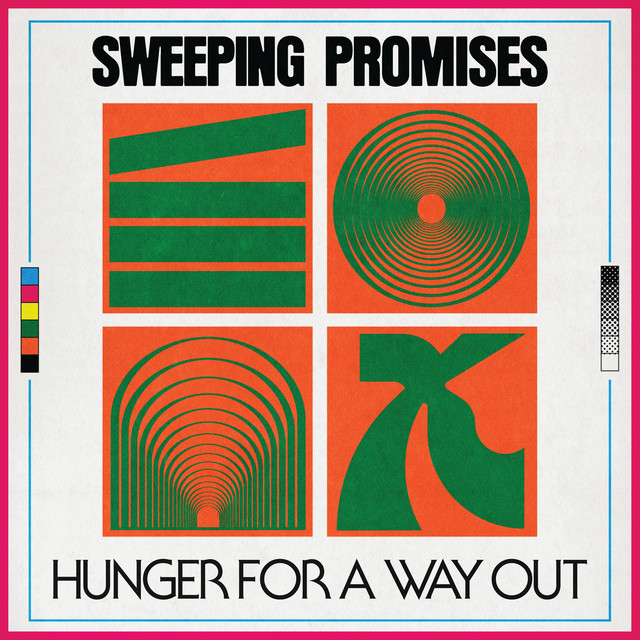 Sweeping Promises blew up out of Boston with their first LP, Hunger for a Way Out, and it’s not hard to hear why. Yes, it’s a fantastic record, but it’s also one that can appeal to a solid cross-section of underground subscenes. The straight-forward bass and drums come right out of the garage, the guitar scratches and jitters like the best post-punk, and Lira Mondal’s impassioned vocals tie it all together with urgency and personality. It’s cool enough for the indie crowd, raw enough for the punks, and catchy enough to break out beyond the underground. It’s truly one of the best albums of the year, no matter the genre. —Garrett Martin
Sweeping Promises blew up out of Boston with their first LP, Hunger for a Way Out, and it’s not hard to hear why. Yes, it’s a fantastic record, but it’s also one that can appeal to a solid cross-section of underground subscenes. The straight-forward bass and drums come right out of the garage, the guitar scratches and jitters like the best post-punk, and Lira Mondal’s impassioned vocals tie it all together with urgency and personality. It’s cool enough for the indie crowd, raw enough for the punks, and catchy enough to break out beyond the underground. It’s truly one of the best albums of the year, no matter the genre. —Garrett Martin
88. Jazmine Sullivan: Heaux Tales (2021)
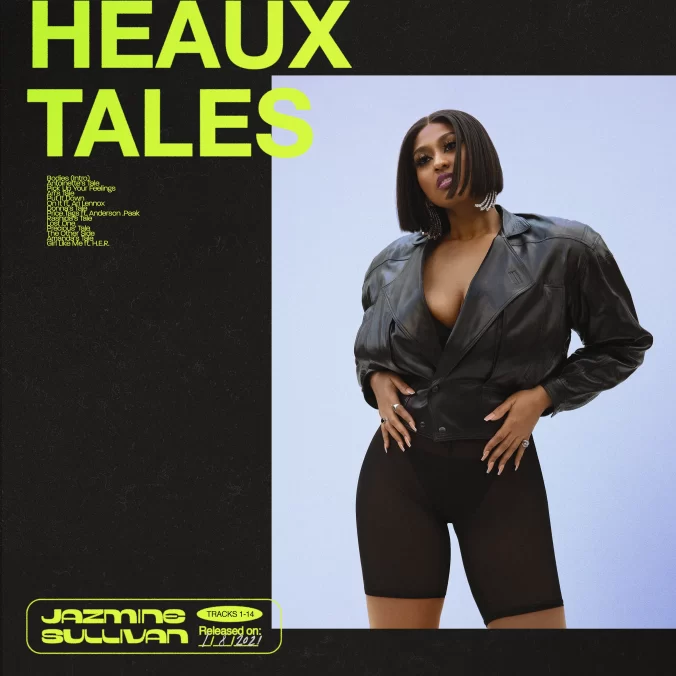 There is something magnificent in the way that Jazmine Sullivan dissects the intricacies of relationships, from the struggles of heartache to the rush of really great sex, on her latest album Heaux Tales, all with the skill of a slick-talking preacher, or perhaps a goddess herself. Sullivan’s words are interspersed with spoken interludes of women reflecting on their own ideas of sex, which contradict just as much as they agree with each other, emphasizing the difficult position of sexual indulgence as a woman, and the societal pressures to keep quiet and submissive. Sullivan’s vocal control shines, ping-ponging between a soft croon and a rap as she lets desire take control and lets her voice echo the choir of other women who are finally embracing their human right: pleasure. Don’t get it twisted—”Heaux” (pronounced “ho”) is a term of empowerment, and Sullivan will make sure you know it. —Jade Gomez
There is something magnificent in the way that Jazmine Sullivan dissects the intricacies of relationships, from the struggles of heartache to the rush of really great sex, on her latest album Heaux Tales, all with the skill of a slick-talking preacher, or perhaps a goddess herself. Sullivan’s words are interspersed with spoken interludes of women reflecting on their own ideas of sex, which contradict just as much as they agree with each other, emphasizing the difficult position of sexual indulgence as a woman, and the societal pressures to keep quiet and submissive. Sullivan’s vocal control shines, ping-ponging between a soft croon and a rap as she lets desire take control and lets her voice echo the choir of other women who are finally embracing their human right: pleasure. Don’t get it twisted—”Heaux” (pronounced “ho”) is a term of empowerment, and Sullivan will make sure you know it. —Jade Gomez
87. Friko: Where we’ve been, Where we go from here (2024)
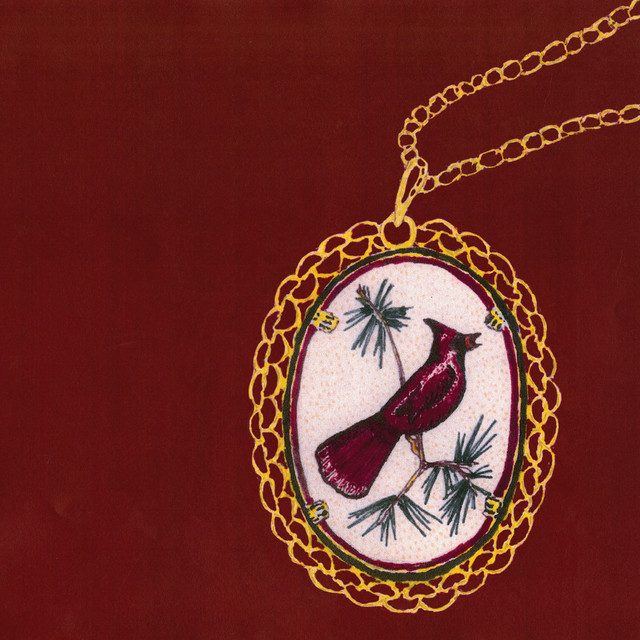 Friko’s debut album moves at an unexpected pace, transitioning from visceral high-energy tracks to subdued ballads seamlessly. Niko Kapetan and Bailey Minzenberger’s penchant for theatrical emotion makes these adjustments feel natural and warranted in context of telling the greater emotional story of the songs. The band is known for their spirited live performances, a quality that pervades the unrestrained anthems on the album. “Crashing Through” whips listeners into a rowdy and distorted introduction saturated with ringing guitars and pounding percussion; Kapetan’s subdued vocals feel whispered in the verses, creating an effect of distance and aloofness that contrasts the noisy and unbridled instrumentals at the beginning and end of the track. Raucous and jeering guitar riffs conclude the track, appearing in red, incendiary bursts similar to the end of “Statues,” in which the hard-hitting track falls into a gritty cacophony of distortion and noise. Where we’ve been, Where we go from here leaves you breathless, and the duo’s unbridled approach to songwriting and instrumentation creates striking and emotive tracks that expand lavishly. —Grace Ann Natanawan
Friko’s debut album moves at an unexpected pace, transitioning from visceral high-energy tracks to subdued ballads seamlessly. Niko Kapetan and Bailey Minzenberger’s penchant for theatrical emotion makes these adjustments feel natural and warranted in context of telling the greater emotional story of the songs. The band is known for their spirited live performances, a quality that pervades the unrestrained anthems on the album. “Crashing Through” whips listeners into a rowdy and distorted introduction saturated with ringing guitars and pounding percussion; Kapetan’s subdued vocals feel whispered in the verses, creating an effect of distance and aloofness that contrasts the noisy and unbridled instrumentals at the beginning and end of the track. Raucous and jeering guitar riffs conclude the track, appearing in red, incendiary bursts similar to the end of “Statues,” in which the hard-hitting track falls into a gritty cacophony of distortion and noise. Where we’ve been, Where we go from here leaves you breathless, and the duo’s unbridled approach to songwriting and instrumentation creates striking and emotive tracks that expand lavishly. —Grace Ann Natanawan
86. Dry Cleaning: New Long Leg (2021)
 British quartet Dry Cleaning extract the profound from the mundane and the meaningful from the nonsensical. On “Viking Hair” from the band’s 2019 EP Boundary Road Snacks and Drinks, frontperson Florence Shaw’s everyday sexual fantasies stood in for the arbitrary guidelines determining acceptable and shameful desires; as she surreally rattled off “traditional fish bar, chicken and ribs, bus pass” and more on “Traditional Fish” from the band’s other 2019 EP, Sweet Princess, she scorned the very idea of commerce. And she did it all in a bone-dry, comical sing-speak set to rollicking, if not straightforward, post-punk courtesy of guitarist Tom Dowse, bassist Lewis Maynard and drummer Nick Buxton. New Long Leg, Dry Cleaning’s debut album (and first release for 4AD), is all of that and none of that. Shaw’s semi-accidental revelations about the ridiculousness of being alive when we live in a society are sharper than ever, and her voice newly takes the tone of a psychic waking up from a 70-year nap. Dowse, Maynard and Buxton have massively upped their game, too: The EPs’ post-punk foundation remains, but atop it come stomping glam riffs, dream-pop arpeggios and razor-sharp melodies that loosen Dry Cleaning’s prior tension without entirely taming the mania. —Max Freedman
British quartet Dry Cleaning extract the profound from the mundane and the meaningful from the nonsensical. On “Viking Hair” from the band’s 2019 EP Boundary Road Snacks and Drinks, frontperson Florence Shaw’s everyday sexual fantasies stood in for the arbitrary guidelines determining acceptable and shameful desires; as she surreally rattled off “traditional fish bar, chicken and ribs, bus pass” and more on “Traditional Fish” from the band’s other 2019 EP, Sweet Princess, she scorned the very idea of commerce. And she did it all in a bone-dry, comical sing-speak set to rollicking, if not straightforward, post-punk courtesy of guitarist Tom Dowse, bassist Lewis Maynard and drummer Nick Buxton. New Long Leg, Dry Cleaning’s debut album (and first release for 4AD), is all of that and none of that. Shaw’s semi-accidental revelations about the ridiculousness of being alive when we live in a society are sharper than ever, and her voice newly takes the tone of a psychic waking up from a 70-year nap. Dowse, Maynard and Buxton have massively upped their game, too: The EPs’ post-punk foundation remains, but atop it come stomping glam riffs, dream-pop arpeggios and razor-sharp melodies that loosen Dry Cleaning’s prior tension without entirely taming the mania. —Max Freedman
85. Cassandra Jenkins: An Overview on Phenomenal Nature (2021)
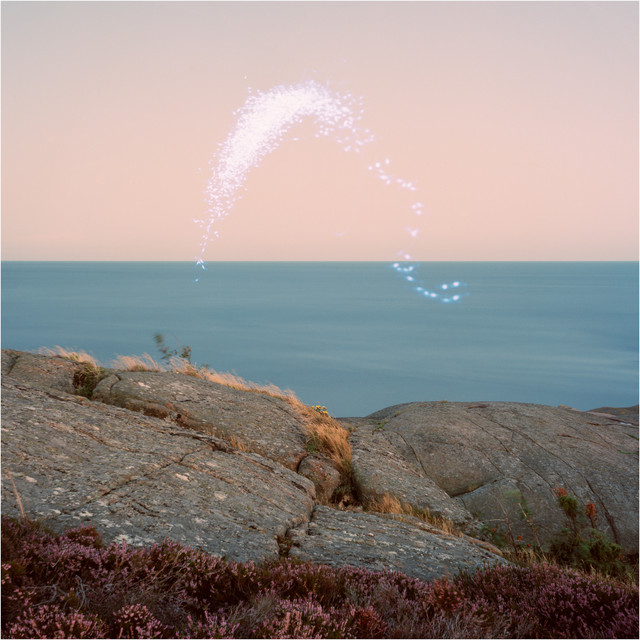 The second album from New York City-based songwriter Cassandra Jenkins revolves around the notion that “Nothing ever really disappears, it just changes shape,” as the artist herself opines. These seven ambient folk songs find Jenkins tracing the very universe’s through lines, considering the energy that animates our everyday lives and where it goes after we’ve moved on. “You’re gone, you’re everywhere,” she sings on “Ambiguous Norway,” a farewell to the late David Berman, who died in August 2019, just before Jenkins had been set to tour with him as part of his Purple Mountains project. Like human beings, An Overview on Phenomenal Nature overflows with nuance and an unknowable wonder, its instrumental alchemy blending restrained keys with jazzy horns and Jenkins’s sing-spoken hypnotism—nowhere as bewitchingly as on album centerpiece “Hard Drive.” On ambient closer “The Ramble,” the album finally transcends language entirely, setting chirping birds alongside the music, humankind and (phenomenal) nature made one. —Scott Russell
The second album from New York City-based songwriter Cassandra Jenkins revolves around the notion that “Nothing ever really disappears, it just changes shape,” as the artist herself opines. These seven ambient folk songs find Jenkins tracing the very universe’s through lines, considering the energy that animates our everyday lives and where it goes after we’ve moved on. “You’re gone, you’re everywhere,” she sings on “Ambiguous Norway,” a farewell to the late David Berman, who died in August 2019, just before Jenkins had been set to tour with him as part of his Purple Mountains project. Like human beings, An Overview on Phenomenal Nature overflows with nuance and an unknowable wonder, its instrumental alchemy blending restrained keys with jazzy horns and Jenkins’s sing-spoken hypnotism—nowhere as bewitchingly as on album centerpiece “Hard Drive.” On ambient closer “The Ramble,” the album finally transcends language entirely, setting chirping birds alongside the music, humankind and (phenomenal) nature made one. —Scott Russell
84. Dijon: Absolutely (2021)
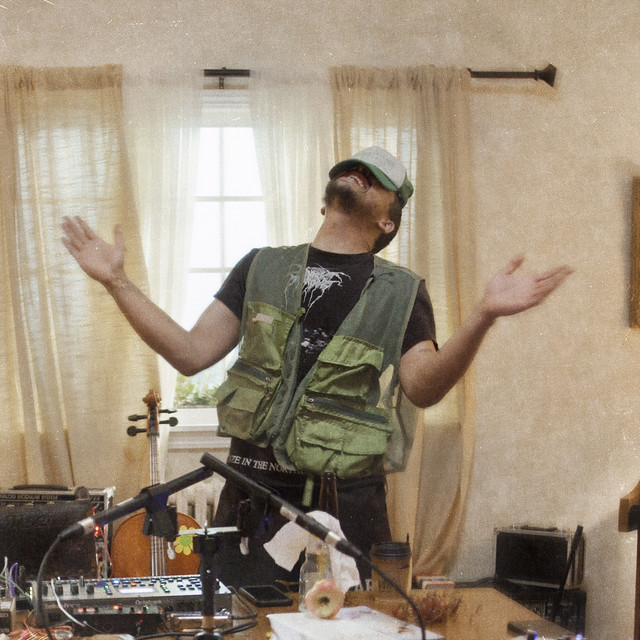 Made to sound like a contemporary version of a live record, Absolutely comes worn in and ready to wear, embracing collaboration as a reflection of a shared humanity. The recording process was propelled by a constant drive amongst Dijon and his fellow musicians to excite each other, and the moments they carve out are so delicately earnest they make catching lightning in a bottle seem like a routine fishing trip. The album explores imperfect memories of imperfect relationships, embracing life both as it happens and as we filter it. As Dijon surrenders to his desire to tear down the process and build it back up from scratch, Absolutely becomes a thoughtfully life-affirming debut. —David Feigelson
Made to sound like a contemporary version of a live record, Absolutely comes worn in and ready to wear, embracing collaboration as a reflection of a shared humanity. The recording process was propelled by a constant drive amongst Dijon and his fellow musicians to excite each other, and the moments they carve out are so delicately earnest they make catching lightning in a bottle seem like a routine fishing trip. The album explores imperfect memories of imperfect relationships, embracing life both as it happens and as we filter it. As Dijon surrenders to his desire to tear down the process and build it back up from scratch, Absolutely becomes a thoughtfully life-affirming debut. —David Feigelson
83. Bonny Light Horseman: Bonny Light Horseman (2020)
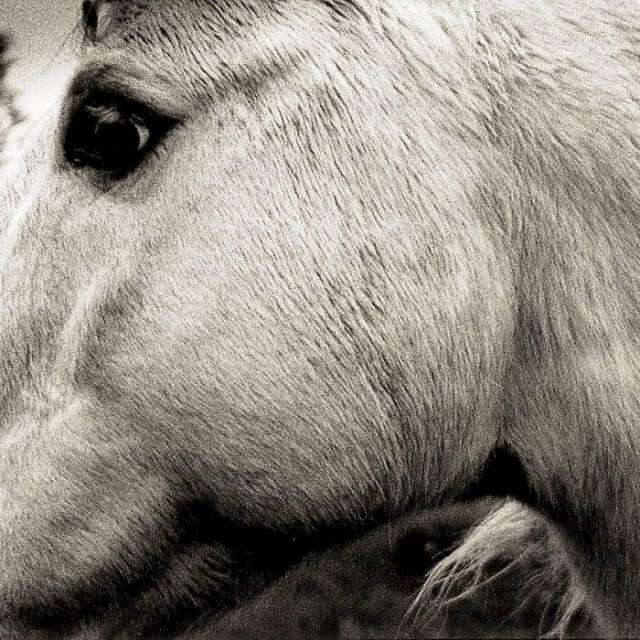 In 2020, Bonny Light Horseman (Anaïs Mitchell, Eric D. Johnson, Josh Kaufman) zeroed in on their goal: to give ancient songs a contemporary twist, and to surround the timeless feelings expressed in those songs with drop-dead gorgeous string and vocal arrangements. From top to bottom, Bonny Light Horseman accomplishes those goals. Take, for example, album highlight “The Roving,” based on a traditional ballad of indeterminate origin. Against a gentle sway of acoustic guitars and piano, Mitchell plays a pitch-perfect narrator who can see his lady, Annie, slipping away, and there’s nothing he can do about it. Even in the 21st century, anyone who has loved and lost can relate. Later, on “Blackwaterside,” Mitchell and Johnson share lead duties on a story of sex, lies and shame, all the while draped in a lovely chorus of “ooohs” and “aaahs” provided by Irish singer-songwriter Lisa Hannigan and two-thirds of indie-folk trio The Staves. These are old age-old songs about age-old issues, of course, so the lyrics are filled with ships sailing and flowers blooming, handsome lads and lying tongues, long black hair, guys named John, fare thee wells and own true loves. But by inserting modern sounds here and there—the droning organ on “10,000 Miles,” for example, or the breathy tenor sax on “Lowlands” and the title track—Bonny Light Horseman deftly give this very old material a glimmering shine that even the most synth-addled trend-chaser should be able to appreciate. And it’d be a mistake not to mention Kaufman’s production, which is spacious, yet warm and intimate, like the band is playing in your living room, just for you. —Ben Salmon
In 2020, Bonny Light Horseman (Anaïs Mitchell, Eric D. Johnson, Josh Kaufman) zeroed in on their goal: to give ancient songs a contemporary twist, and to surround the timeless feelings expressed in those songs with drop-dead gorgeous string and vocal arrangements. From top to bottom, Bonny Light Horseman accomplishes those goals. Take, for example, album highlight “The Roving,” based on a traditional ballad of indeterminate origin. Against a gentle sway of acoustic guitars and piano, Mitchell plays a pitch-perfect narrator who can see his lady, Annie, slipping away, and there’s nothing he can do about it. Even in the 21st century, anyone who has loved and lost can relate. Later, on “Blackwaterside,” Mitchell and Johnson share lead duties on a story of sex, lies and shame, all the while draped in a lovely chorus of “ooohs” and “aaahs” provided by Irish singer-songwriter Lisa Hannigan and two-thirds of indie-folk trio The Staves. These are old age-old songs about age-old issues, of course, so the lyrics are filled with ships sailing and flowers blooming, handsome lads and lying tongues, long black hair, guys named John, fare thee wells and own true loves. But by inserting modern sounds here and there—the droning organ on “10,000 Miles,” for example, or the breathy tenor sax on “Lowlands” and the title track—Bonny Light Horseman deftly give this very old material a glimmering shine that even the most synth-addled trend-chaser should be able to appreciate. And it’d be a mistake not to mention Kaufman’s production, which is spacious, yet warm and intimate, like the band is playing in your living room, just for you. —Ben Salmon
82. This Is Lorelei: Box For Buddy, Box For Star (2024)
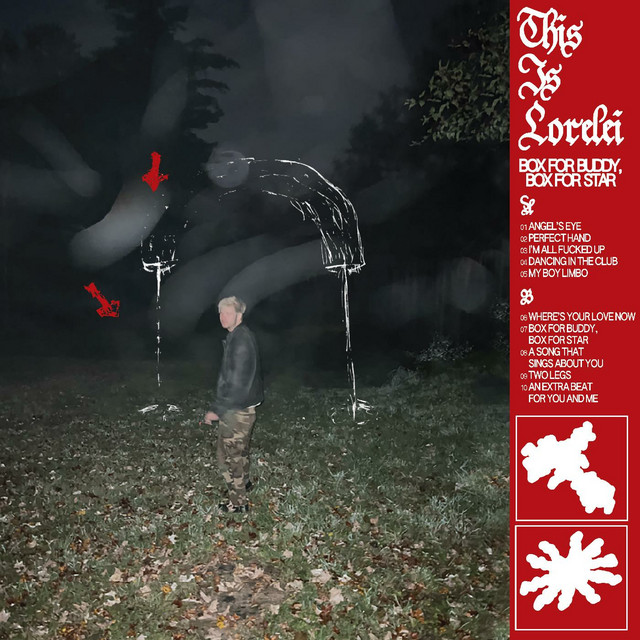 The endless exuberance and unpredictability that define Nate Amos’s style are especially prominent on his latest record, Box For Buddy, Box For Star, where he continues to hone in on his artistic versatility by dialing into a more earnest, singer-songwriter wavelength. In contrast to his earlier work, which is looser and scrappier in construction and concept, the 10-track Box For Buddy is tight and polished yet brims with the same nimble energy as the rest of his formidably abundant discography. Amos is still tinkering with different genres here—namely, mid-Aughts indie rock, folk, country and synth-pop—but he brings a much sharper focus to this material than anything else he’s done. All the pieces of the playground are still there, just a little more renovated. Amos’s straightforward approach results in a record that is both striking in its simplicity and downright seamless in its execution, allowing space for his desire to play around and be vulnerable in a way that he hasn’t before. —Sam Rosenberg
The endless exuberance and unpredictability that define Nate Amos’s style are especially prominent on his latest record, Box For Buddy, Box For Star, where he continues to hone in on his artistic versatility by dialing into a more earnest, singer-songwriter wavelength. In contrast to his earlier work, which is looser and scrappier in construction and concept, the 10-track Box For Buddy is tight and polished yet brims with the same nimble energy as the rest of his formidably abundant discography. Amos is still tinkering with different genres here—namely, mid-Aughts indie rock, folk, country and synth-pop—but he brings a much sharper focus to this material than anything else he’s done. All the pieces of the playground are still there, just a little more renovated. Amos’s straightforward approach results in a record that is both striking in its simplicity and downright seamless in its execution, allowing space for his desire to play around and be vulnerable in a way that he hasn’t before. —Sam Rosenberg
81. Kendrick Lamar: Mr. Morale & The Big Steppers (2022)
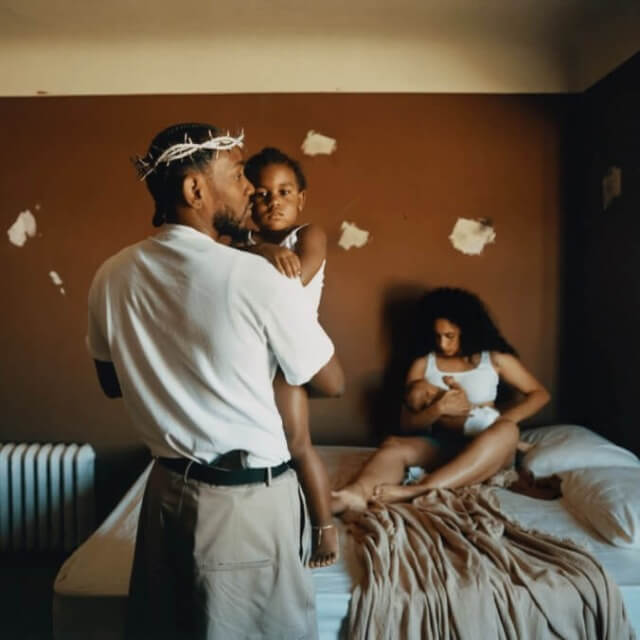 Throughout Mr. Morale & The Big Steppers, Kendrick Lamar unpacks his sins. His longtime partner Whitney Alford urges him to seek counseling after his various infidelities are revealed. Kendrick, now the father of two children, is told to turn to Oprah-approved German philosopher Eckhart Tolle to get to the root of what would cause his supposed sex addiction. The production on the album mirrors Kendrick’s distress. Gone are the pleasant jazz compositions of To Pimp a Butterfly and the cleaner rhythms of DAMN.—in their place are scattered piano lines, manic drums, distorted vocal samples and panic attack-inducing synths, all designed to give the listener feelings of anxiety and discomfort. The album plays out like an open therapy session, filled with the raw and unfiltered thoughts of one of the greatest rappers to ever pick up the mic. These thoughts are vulnerable, unmanicured and, to the shock of some fans, politically incorrect and ignorant. Mr. Morale & The Big Steppers rejects conformity and leaves its flaws in on purpose, featuring some of Kendrick’s best and worst songs of his career. —Josh Svetz
Throughout Mr. Morale & The Big Steppers, Kendrick Lamar unpacks his sins. His longtime partner Whitney Alford urges him to seek counseling after his various infidelities are revealed. Kendrick, now the father of two children, is told to turn to Oprah-approved German philosopher Eckhart Tolle to get to the root of what would cause his supposed sex addiction. The production on the album mirrors Kendrick’s distress. Gone are the pleasant jazz compositions of To Pimp a Butterfly and the cleaner rhythms of DAMN.—in their place are scattered piano lines, manic drums, distorted vocal samples and panic attack-inducing synths, all designed to give the listener feelings of anxiety and discomfort. The album plays out like an open therapy session, filled with the raw and unfiltered thoughts of one of the greatest rappers to ever pick up the mic. These thoughts are vulnerable, unmanicured and, to the shock of some fans, politically incorrect and ignorant. Mr. Morale & The Big Steppers rejects conformity and leaves its flaws in on purpose, featuring some of Kendrick’s best and worst songs of his career. —Josh Svetz
80. Circuit des Yeux: -io (2021)
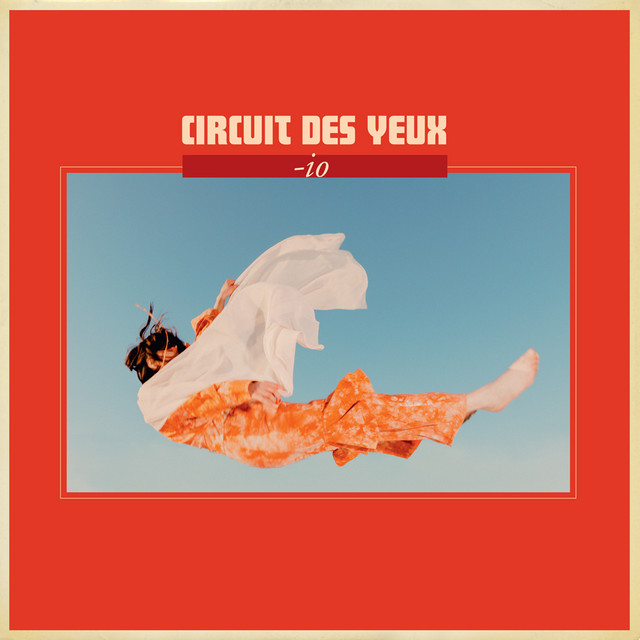 13 years after releasing her debut album, Symphone, Haley Fohr unveiled her most expansive, conflicting and powerful projects ever in 2021. io is maximized and darkened, orchestral yet bold and boundless. “Descend bold traveler and attain the center of the earth,” she concludes on “Neutron Star”; “I’m changing while I try to hold the reins,” she admits on “Walking Toward Winter.” All of it lends to -io sounding like an exorcism and an exodus all at once, as a 23-piece collection of strings, horns and drones transcribe the complicated, universal disasters of the self and the tangential microcosm of misery and catharsis. As devastating as it is devotional, -io is not the sound of Fohr finding her voice, but of her slowly unraveling it. —Matt Mitchell
13 years after releasing her debut album, Symphone, Haley Fohr unveiled her most expansive, conflicting and powerful projects ever in 2021. io is maximized and darkened, orchestral yet bold and boundless. “Descend bold traveler and attain the center of the earth,” she concludes on “Neutron Star”; “I’m changing while I try to hold the reins,” she admits on “Walking Toward Winter.” All of it lends to -io sounding like an exorcism and an exodus all at once, as a 23-piece collection of strings, horns and drones transcribe the complicated, universal disasters of the self and the tangential microcosm of misery and catharsis. As devastating as it is devotional, -io is not the sound of Fohr finding her voice, but of her slowly unraveling it. —Matt Mitchell
79. ANOHNI and the Johnsons: My Back Was a Bridge For You to Cross (2023)
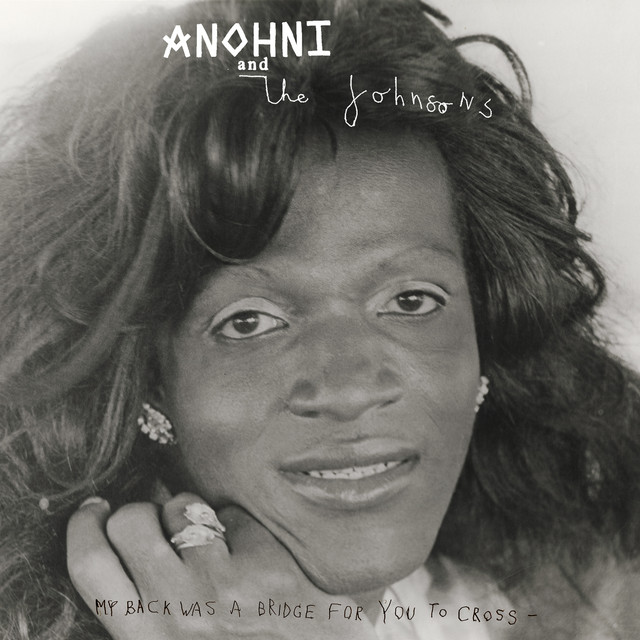 My Back Was A Bridge For You To Cross is not an album that seeks out an answer to any of its questions. In the wake of an ongoing, unfurling and merciless stream of abuse enacted against trans people, hearing a record that illustrates so closely what the fear of extinction—both ecologically and socially—might look like is necessary, heavy, equitable and full of care. ANOHNI’s work is rid of mythos and, instead, rooted in anti-destiny. The world she colors on My Back Was A Bridge For You To Cross is flawed and harsh and unforgiving, yet it is also a great container of love and respect. “You be free. You be free, for me. For me, you. Be free for me,” she echoes out, at the end of the album. Even in her greatest pivot towards darkness, ANOHNI holds her loved ones up through the ashes of violence and demands that fate take the shape of a nurturing, generous light. —Matt Mitchell
My Back Was A Bridge For You To Cross is not an album that seeks out an answer to any of its questions. In the wake of an ongoing, unfurling and merciless stream of abuse enacted against trans people, hearing a record that illustrates so closely what the fear of extinction—both ecologically and socially—might look like is necessary, heavy, equitable and full of care. ANOHNI’s work is rid of mythos and, instead, rooted in anti-destiny. The world she colors on My Back Was A Bridge For You To Cross is flawed and harsh and unforgiving, yet it is also a great container of love and respect. “You be free. You be free, for me. For me, you. Be free for me,” she echoes out, at the end of the album. Even in her greatest pivot towards darkness, ANOHNI holds her loved ones up through the ashes of violence and demands that fate take the shape of a nurturing, generous light. —Matt Mitchell
78. Ratboys: The Window (2023)
 The 11 tracks on The Window are something of a real majesty. Ratboys zero in on everything they do exceptionally well and put it in a blender. Julia Steiner’s songwriting, in particular, is at a pinnacle—which says a lot, given how dense and heavy and immaculate Printer’s Devil was, the demos for which were tracked in the emptied rooms of her childhood home in Louisville after it was sold. Somewhere on the spectrum in-between Rilo Kiley and Wildflowers-era Tom Petty, Ratboys have made it to a place in their own artistry where they have ample reserves of courage to execute risks. At the center of it all are Steiner—whose lyrics probe familiar and personal imagery through Lake Michigan parables and wholehearted reflections—and Dave Sagan—whose guitar-playing is one of immense finesse and sublime shredding. Together, they write themselves out of longing, through the anxieties of isolation still frozen in the stars, into moments of smoke sessions and graveyard escapes. They burn blank CDs and turn a life-changing freshman orientation encounter into a time capsule of stubbornly curious poetry. Much like its title suggests, The Window is a portal into a world Steiner is still considering the weight of. No longer fixated on how the grief of childhood can tumble into adulthood, the work here examines what chapter comes next; the ways that love and what-could’ve-beens can haunt the present. —Matt Mitchell
The 11 tracks on The Window are something of a real majesty. Ratboys zero in on everything they do exceptionally well and put it in a blender. Julia Steiner’s songwriting, in particular, is at a pinnacle—which says a lot, given how dense and heavy and immaculate Printer’s Devil was, the demos for which were tracked in the emptied rooms of her childhood home in Louisville after it was sold. Somewhere on the spectrum in-between Rilo Kiley and Wildflowers-era Tom Petty, Ratboys have made it to a place in their own artistry where they have ample reserves of courage to execute risks. At the center of it all are Steiner—whose lyrics probe familiar and personal imagery through Lake Michigan parables and wholehearted reflections—and Dave Sagan—whose guitar-playing is one of immense finesse and sublime shredding. Together, they write themselves out of longing, through the anxieties of isolation still frozen in the stars, into moments of smoke sessions and graveyard escapes. They burn blank CDs and turn a life-changing freshman orientation encounter into a time capsule of stubbornly curious poetry. Much like its title suggests, The Window is a portal into a world Steiner is still considering the weight of. No longer fixated on how the grief of childhood can tumble into adulthood, the work here examines what chapter comes next; the ways that love and what-could’ve-beens can haunt the present. —Matt Mitchell
77. Floating Points, Pharoah Sanders & The London Symphony Orchestra: Promises (2021)
 This unlikely pairing of British electronic wiz Sam Shepherd, aka Floating Points, and free-jazz saxophone titan Pharoah Sanders is among the most revelatory match-ups in recent memory. On their long-simmering album Promises, which also features the cinematic swells of the London Symphony Orchestra, the musicians’ collaborative energy proves as remarkably potent as it is improbable. Unfurling in one continuous, wordless composition split into nine movements, Promises sounds like a leap of creative faith, a cosmic communion that reaches across generations, genres and musical barriers to build something beautiful. When played without interruption and afforded the patience (and quality speakers) it demands, Promises is the kind of album that can rearrange the molecules in a room. It can imbue your drab apartment with a vast, cinematic weight. It can kill a party (this is admittedly speculative) in the best possible way. It can fill up the space while you wash dishes, put away laundry or water plants, infusing any mind-numbing household activity with a mist of supernatural yearning. Sanders, a “spiritual jazz” pioneer, is not a stranger to this transcendent approach to experimental jazz, but it’s a pleasure to hear him still pushing himself forward, still seeking the unknown, more than half a century removed from Karma. There’s a timeless quality to Promises, an inscrutable sense that the album could hail from 30 years in the past or 30 years into the future. Of course, that’s what makes it a genuine intergenerational collaboration, this sense of time collapsing upon itself. It’s in the empty space between these two vastly different generations, eras and creative disciplines that something remarkable unfolds. —Zach Schonfeld
This unlikely pairing of British electronic wiz Sam Shepherd, aka Floating Points, and free-jazz saxophone titan Pharoah Sanders is among the most revelatory match-ups in recent memory. On their long-simmering album Promises, which also features the cinematic swells of the London Symphony Orchestra, the musicians’ collaborative energy proves as remarkably potent as it is improbable. Unfurling in one continuous, wordless composition split into nine movements, Promises sounds like a leap of creative faith, a cosmic communion that reaches across generations, genres and musical barriers to build something beautiful. When played without interruption and afforded the patience (and quality speakers) it demands, Promises is the kind of album that can rearrange the molecules in a room. It can imbue your drab apartment with a vast, cinematic weight. It can kill a party (this is admittedly speculative) in the best possible way. It can fill up the space while you wash dishes, put away laundry or water plants, infusing any mind-numbing household activity with a mist of supernatural yearning. Sanders, a “spiritual jazz” pioneer, is not a stranger to this transcendent approach to experimental jazz, but it’s a pleasure to hear him still pushing himself forward, still seeking the unknown, more than half a century removed from Karma. There’s a timeless quality to Promises, an inscrutable sense that the album could hail from 30 years in the past or 30 years into the future. Of course, that’s what makes it a genuine intergenerational collaboration, this sense of time collapsing upon itself. It’s in the empty space between these two vastly different generations, eras and creative disciplines that something remarkable unfolds. —Zach Schonfeld
76. Magdalena Bay: Imaginal Disk (2024)
 Magdalena Bay’s familiarity with rock subgenres undergirds much of the left-field choices on Imaginal Disk. The freewheeling, boundless spirit found in progressive rock is littered throughout. “Death & Romance” luxuriates for just over five minutes, but each icy piano stab makes the scope feel bigger and more all-consuming. The stunning “Tunnel Vision” is an odyssey all its own. At first a fluttering halcyon slice of synth-pop, but things take a turn a few minutes in. The song becomes heavier and more reliant on a rollicking guitar and live drums. Tenenbaum’s voice falls into the background, morphing into unruly snarls and screams. It feels destined to be a total showstopper in their live show, and hopefully, one that they’ll stretch out even further. Songs like “Tunnel Vision” offer a keyhole view into a world where Magdalena Bay is a jam band. With the amount of songs that begin and end in completely different worlds, sometimes even different genres, it’s as though Tenenbaum and Lewin set out not just to prove themselves as formidable pop stars, but as musicians through and through. They’re a pop act with a rockist core, but their insertions of prog, shoegaze, or even disco never feel done in a way that suggests pop is lesser without it, but adds muscularity to their music. This balance isn’t an easy one to find, but having done so with Imaginal Disk just acts as yet another flex. —Eric Bennett
Magdalena Bay’s familiarity with rock subgenres undergirds much of the left-field choices on Imaginal Disk. The freewheeling, boundless spirit found in progressive rock is littered throughout. “Death & Romance” luxuriates for just over five minutes, but each icy piano stab makes the scope feel bigger and more all-consuming. The stunning “Tunnel Vision” is an odyssey all its own. At first a fluttering halcyon slice of synth-pop, but things take a turn a few minutes in. The song becomes heavier and more reliant on a rollicking guitar and live drums. Tenenbaum’s voice falls into the background, morphing into unruly snarls and screams. It feels destined to be a total showstopper in their live show, and hopefully, one that they’ll stretch out even further. Songs like “Tunnel Vision” offer a keyhole view into a world where Magdalena Bay is a jam band. With the amount of songs that begin and end in completely different worlds, sometimes even different genres, it’s as though Tenenbaum and Lewin set out not just to prove themselves as formidable pop stars, but as musicians through and through. They’re a pop act with a rockist core, but their insertions of prog, shoegaze, or even disco never feel done in a way that suggests pop is lesser without it, but adds muscularity to their music. This balance isn’t an easy one to find, but having done so with Imaginal Disk just acts as yet another flex. —Eric Bennett
75. Dawn Richard & Spencer Zahn: Pigments (2022)
 Dawn Richard, ever the pop nomad, has poetry to sing, too. Her first collaboration with multi-instrumentalist Spencer Zahn, Pigments, is a tectonic confluence of jazz, classical, experimental and avant-garde singer-songwriter—and it’s one of the best “healing” albums of this century. Pigments is like a ballet, as Richard writes from the perspective of a young Black girl envisioning the future. “I wanna get lost in your brown skin,” she sings on “Vantablack,” only to return on “Cerulean” with the repetition of “Are you hurt? Are you hurting like you’re hurting me?” Each song is named after a hue, and Zahn’s instrumentation unspools like brushstrokes on a canvas. You could argue that Pigments is Dawn Richard stepping out of her comfort zone, but I’d wager she’s never sounded more at home than in the company of Zahn’s day-dreaming, sun-beaten strings and synths. —Matt Mitchell
Dawn Richard, ever the pop nomad, has poetry to sing, too. Her first collaboration with multi-instrumentalist Spencer Zahn, Pigments, is a tectonic confluence of jazz, classical, experimental and avant-garde singer-songwriter—and it’s one of the best “healing” albums of this century. Pigments is like a ballet, as Richard writes from the perspective of a young Black girl envisioning the future. “I wanna get lost in your brown skin,” she sings on “Vantablack,” only to return on “Cerulean” with the repetition of “Are you hurt? Are you hurting like you’re hurting me?” Each song is named after a hue, and Zahn’s instrumentation unspools like brushstrokes on a canvas. You could argue that Pigments is Dawn Richard stepping out of her comfort zone, but I’d wager she’s never sounded more at home than in the company of Zahn’s day-dreaming, sun-beaten strings and synths. —Matt Mitchell
74. Julie Byrne: The Greater Wings (2023)
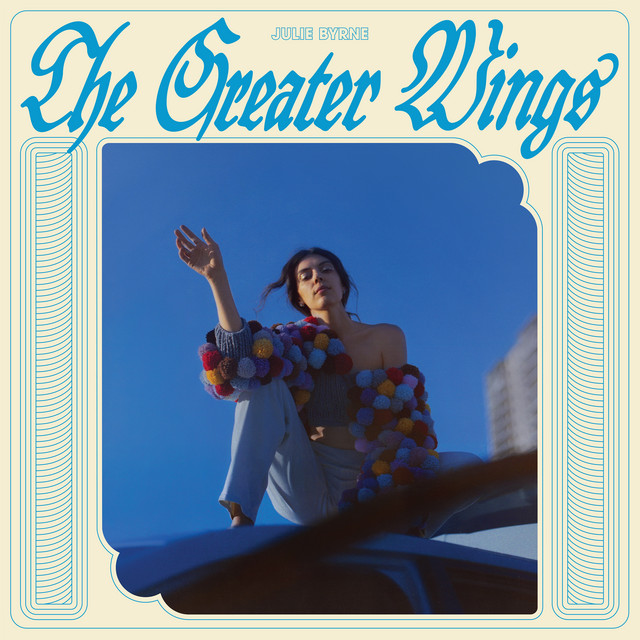 What Julie Byrne brings to us on The Greater Wings is, quite possibly, one of the heaviest and most thoughtful records of 2023—not just because of Bryne’s artistic singularity, but because of her attention to partnership and symbiosis and generosity. The talismanic, guiding force on the album was the passing of Eric Littmann, who was Byrne’s dearest musical partner and soulmate, had a steadfast belief in what they could make together—knowing that it was critical and vital work and worth pursuing through whatever shape it was destined to take. What must be said is that The Greater Wings exists the way it does because of the brilliance and care that Littmann put into it alongside Byrne while he was alive. The energy of memorial surrounding the beauty of his time spent here with us adds even more depth to Byrne’s songwriting—which is deeply packed in a language that is as meticulous and clear-eyed as it is accessible to anyone who has been enraptured by a similar degree of ache. Her emblems of mourning and recollection can so easily be about a bygone lover, a friend who’s passed on or an insurmountable, uncategorical mountain of loss. In that way, the songs she writes are timeless treasures. The Greater Wings does not aim to settle the score on any type of trauma. Byrne approaches pain on a molecular, curious level, as she attempts to better understand the sorrow, not conquer it. With deep bonds, that is a nature of healing that is so often emphasized in poetics but forgotten in conceptual music. You don’t get through heartbreak, you learn to live with its wounds and allow them to change and transform as days pass. By The Greater Wings’ end, the hole in Byrne’s heart is not patched shut; it’s blurred as a means of enduring. —Matt Mitchell
What Julie Byrne brings to us on The Greater Wings is, quite possibly, one of the heaviest and most thoughtful records of 2023—not just because of Bryne’s artistic singularity, but because of her attention to partnership and symbiosis and generosity. The talismanic, guiding force on the album was the passing of Eric Littmann, who was Byrne’s dearest musical partner and soulmate, had a steadfast belief in what they could make together—knowing that it was critical and vital work and worth pursuing through whatever shape it was destined to take. What must be said is that The Greater Wings exists the way it does because of the brilliance and care that Littmann put into it alongside Byrne while he was alive. The energy of memorial surrounding the beauty of his time spent here with us adds even more depth to Byrne’s songwriting—which is deeply packed in a language that is as meticulous and clear-eyed as it is accessible to anyone who has been enraptured by a similar degree of ache. Her emblems of mourning and recollection can so easily be about a bygone lover, a friend who’s passed on or an insurmountable, uncategorical mountain of loss. In that way, the songs she writes are timeless treasures. The Greater Wings does not aim to settle the score on any type of trauma. Byrne approaches pain on a molecular, curious level, as she attempts to better understand the sorrow, not conquer it. With deep bonds, that is a nature of healing that is so often emphasized in poetics but forgotten in conceptual music. You don’t get through heartbreak, you learn to live with its wounds and allow them to change and transform as days pass. By The Greater Wings’ end, the hole in Byrne’s heart is not patched shut; it’s blurred as a means of enduring. —Matt Mitchell
73. SPIRIT OF THE BEEHIVE: ENTERTAINMENT, DEATH (2021)
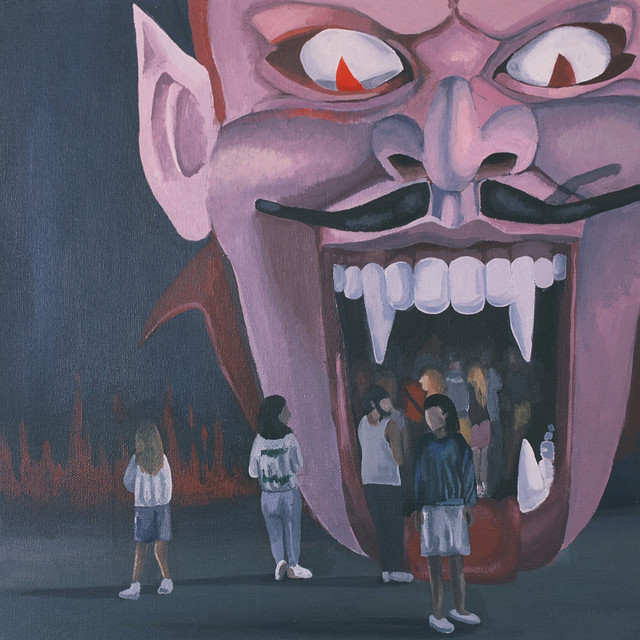 Shapeshifting. If there’s one descriptor for SPIRIT OF THE BEEHIVE, that’s it, so we figured we’d get it out of the way early. Transformation surrounds their fourth album and Saddle Creek debut ENTERTAINMENT, DEATH, affecting the band itself—founding members Zack Schwartz and Rivka Ravede are now joined by Corey Wichlin—as well as their recording process and, of course, the music itself. While the band recorded their breakout 2018 album Hypnic Jerks in only a week, they took four months for ENTERTAINMENT, DEATH, self-recording and producing their most adventurous album yet. Just take “I SUCK THE DEVIL’S COCK,” the record’s near-seven-minute third single, which they describe as “our take on ‘a day in the life’”: The song begins as glitchy, drum machine-spiked jangle-psych, but quickly devolves into borderline ambient noise, eventually reconstituting itself as dreamy indie-pop with the oddest refracted textures. It, like all of ENTERTAINMENT, DEATH, is thrillingly unpredictable from moment to moment, and a mind-expanding exploration of the innumerable forms rock music can take. —Scott Russell
Shapeshifting. If there’s one descriptor for SPIRIT OF THE BEEHIVE, that’s it, so we figured we’d get it out of the way early. Transformation surrounds their fourth album and Saddle Creek debut ENTERTAINMENT, DEATH, affecting the band itself—founding members Zack Schwartz and Rivka Ravede are now joined by Corey Wichlin—as well as their recording process and, of course, the music itself. While the band recorded their breakout 2018 album Hypnic Jerks in only a week, they took four months for ENTERTAINMENT, DEATH, self-recording and producing their most adventurous album yet. Just take “I SUCK THE DEVIL’S COCK,” the record’s near-seven-minute third single, which they describe as “our take on ‘a day in the life’”: The song begins as glitchy, drum machine-spiked jangle-psych, but quickly devolves into borderline ambient noise, eventually reconstituting itself as dreamy indie-pop with the oddest refracted textures. It, like all of ENTERTAINMENT, DEATH, is thrillingly unpredictable from moment to moment, and a mind-expanding exploration of the innumerable forms rock music can take. —Scott Russell
72. Willi Carlisle: Peculiar, Missouri (2022)
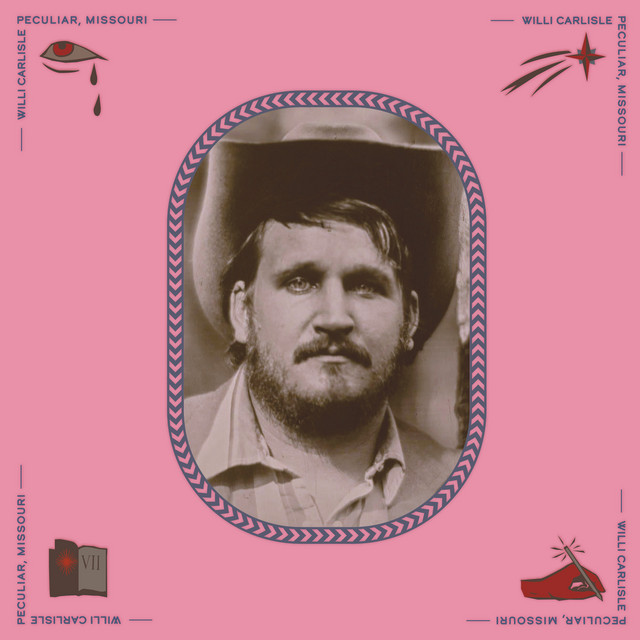 Between the viral “Cheap Cocaine” and now, Willi Carlisle has remained busy—or, as he might call it, “a trucker of emotive payloads.” He’s written three plays—a one-man show about a folk singer’s last concert that included masks and puppets, a cross-dressing, horror play for him and another actor and, then, a one-woman show for somebody else—only to turn around and put out the record Peculiar, Missouri in 2022. On it, songs like “Life on the Fence” and “I Won’t Be Afraid” interrogate the doubts and desires of outsiders, and the populist Carlisle sings with deep, progressive consideration and reverence for what life unravels and radiates around him in the America where the Midwest meets the South. Peculiar, Missouri finds Carlisle doing character studies on magicians, lamenting the touring life and, amid genre-switching and intentional embraces of different folk traditions and stylings, reckoning with timeless conflict head-on. At its core, Peculiar, Missouri is a 12-song pastiche of attractive, interesting and joyous storytelling. In Willi Carlisle’s Vaudevillian, theatrical and talkie musings is possibility draped in the architecture of romantic, humorous poetry. —Matt Mitchell
Between the viral “Cheap Cocaine” and now, Willi Carlisle has remained busy—or, as he might call it, “a trucker of emotive payloads.” He’s written three plays—a one-man show about a folk singer’s last concert that included masks and puppets, a cross-dressing, horror play for him and another actor and, then, a one-woman show for somebody else—only to turn around and put out the record Peculiar, Missouri in 2022. On it, songs like “Life on the Fence” and “I Won’t Be Afraid” interrogate the doubts and desires of outsiders, and the populist Carlisle sings with deep, progressive consideration and reverence for what life unravels and radiates around him in the America where the Midwest meets the South. Peculiar, Missouri finds Carlisle doing character studies on magicians, lamenting the touring life and, amid genre-switching and intentional embraces of different folk traditions and stylings, reckoning with timeless conflict head-on. At its core, Peculiar, Missouri is a 12-song pastiche of attractive, interesting and joyous storytelling. In Willi Carlisle’s Vaudevillian, theatrical and talkie musings is possibility draped in the architecture of romantic, humorous poetry. —Matt Mitchell
71. Jeff Parker: Suite for Max Brown (2020)
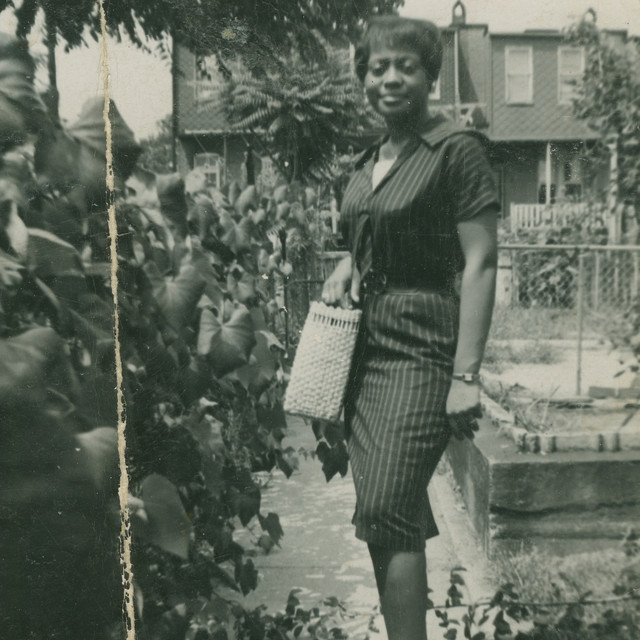 Jeff Parker has remained one of our most brilliant composers of the last 25 years, and his works act as a fascinating constant in the shape of jazz, post-rock and experimentalism. In this decade alone, his Forfolks and Mondays at the Enfield Tennis Academy albums have been among the strongest entries into the contemporary jazz pantheon, but it’s his 2020 masterpiece, Suite for Max Brown, that lingers in the vanguard of modern jazz. Whether he’s working as a soloist or as a member of Tortoise or Isotope 217, Parker’s work stretches across mediums in patient yet daring ways. A companion piece to The New Breed from 2016, Suite for Max Brown welcomes a landscape where Otis Redding samples introduce 10-minute jazz quintet orchestration; on “Del Rio,” Parker plays an African mbira and turns the melody into an essay; “3 for L” lets Parker tap into his jazz bandleader role, executing an expertly crafted and sun-soaked guitar part; “Go Away” is where Parker turns the volume knob all the way to the right, as the ensemble shuffles, drones and skyscrapes into a jazz climax rife with pop buoyancy. Suite for Max Brown is a montage of some of the greatest musicians alive turning improvisational chaos into graceful harmony. —Matt Mitchell
Jeff Parker has remained one of our most brilliant composers of the last 25 years, and his works act as a fascinating constant in the shape of jazz, post-rock and experimentalism. In this decade alone, his Forfolks and Mondays at the Enfield Tennis Academy albums have been among the strongest entries into the contemporary jazz pantheon, but it’s his 2020 masterpiece, Suite for Max Brown, that lingers in the vanguard of modern jazz. Whether he’s working as a soloist or as a member of Tortoise or Isotope 217, Parker’s work stretches across mediums in patient yet daring ways. A companion piece to The New Breed from 2016, Suite for Max Brown welcomes a landscape where Otis Redding samples introduce 10-minute jazz quintet orchestration; on “Del Rio,” Parker plays an African mbira and turns the melody into an essay; “3 for L” lets Parker tap into his jazz bandleader role, executing an expertly crafted and sun-soaked guitar part; “Go Away” is where Parker turns the volume knob all the way to the right, as the ensemble shuffles, drones and skyscrapes into a jazz climax rife with pop buoyancy. Suite for Max Brown is a montage of some of the greatest musicians alive turning improvisational chaos into graceful harmony. —Matt Mitchell
70. Taylor Swift: folklore (2020)
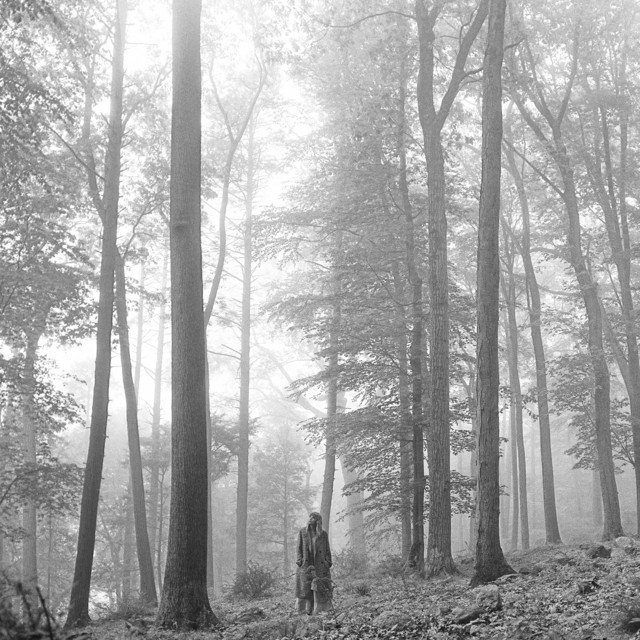 In 2020, Taylor Swift leveled the hell up. There isn’t a better way to phrase it. The bright-eyed-country-musician-turned-serious-pop-titan didn’t need to—she could’ve quit music in 2019 and still left behind a lasting pop discography. But on folklore, which arrived less than 24 hours after she announced it with a woodsy social media rollout, she steps up her game. Free of the usual album cycle fanfare—the splashy lead single, months of social media theatrics and a massive world tour—Swift had a rare opportunity with folklore to ignore timing and expectations. This “leveling up” is indicated not only by sonic left turns, but also by a new omniscient kind of songwriting Swift hasn’t explored much previously. On folklore, Swift’s character studies include that of the woman who once owned Swift’s Rhode Island beach house, an emotionally abusive ex who calls women “crazy” (“mad woman”) and, believe it or not, a 17-year-old skater boy (“betty”). The lyrical details are bright, vivid and occasionally funny. folklore should be canonized in pop music history, particularly as a reminder of the beauty that could be found amid its strange era of separation. —Ellen Johnson
In 2020, Taylor Swift leveled the hell up. There isn’t a better way to phrase it. The bright-eyed-country-musician-turned-serious-pop-titan didn’t need to—she could’ve quit music in 2019 and still left behind a lasting pop discography. But on folklore, which arrived less than 24 hours after she announced it with a woodsy social media rollout, she steps up her game. Free of the usual album cycle fanfare—the splashy lead single, months of social media theatrics and a massive world tour—Swift had a rare opportunity with folklore to ignore timing and expectations. This “leveling up” is indicated not only by sonic left turns, but also by a new omniscient kind of songwriting Swift hasn’t explored much previously. On folklore, Swift’s character studies include that of the woman who once owned Swift’s Rhode Island beach house, an emotionally abusive ex who calls women “crazy” (“mad woman”) and, believe it or not, a 17-year-old skater boy (“betty”). The lyrical details are bright, vivid and occasionally funny. folklore should be canonized in pop music history, particularly as a reminder of the beauty that could be found amid its strange era of separation. —Ellen Johnson
69. Black Country, New Road: Ants From Up There (2022)
 When Black Country, New Road released their debut album For the first time in 2021, they’d been sitting on the material for at least a year; songs like “Athens, France” and “Sunglasses,” though ultimately reworked on the album, had already been out since 2019. The group described For the first time as the summation of their first 18 months as a band, a helpful framing for such intricate, yet manic work. The band then confirmed they had already finished a follow-up, and began playing “Bread Song” and “Basketball Shoes’’ during their live sets. These would become parts of Ants From Up There, the group’s sophomore effort. Released just 364 days later, it was an incredibly quick turnaround for the London septet, a result of their remarkable productivity. Ants From Up There feels like the work of a band figuring itself out. While they may not use the term themselves, it’s hard to argue that Black Country, New Road can’t be called a jam band. Try as they might to create short, digestible tracks, they still go long; they’re never married to their songs being presented in just one way, and embrace improvisation. Sure, they come across more self-serious than the stereotypical jam band, but all the markers are there. This is a record that sees Black Country, New Road reestablishing themselves. Having been lauded by nearly every outlet following their debut, you get the sense the band are trying to reset expectations: Buried beneath their own laurels, they’re not afraid to shake them off. —Eric Bennett
When Black Country, New Road released their debut album For the first time in 2021, they’d been sitting on the material for at least a year; songs like “Athens, France” and “Sunglasses,” though ultimately reworked on the album, had already been out since 2019. The group described For the first time as the summation of their first 18 months as a band, a helpful framing for such intricate, yet manic work. The band then confirmed they had already finished a follow-up, and began playing “Bread Song” and “Basketball Shoes’’ during their live sets. These would become parts of Ants From Up There, the group’s sophomore effort. Released just 364 days later, it was an incredibly quick turnaround for the London septet, a result of their remarkable productivity. Ants From Up There feels like the work of a band figuring itself out. While they may not use the term themselves, it’s hard to argue that Black Country, New Road can’t be called a jam band. Try as they might to create short, digestible tracks, they still go long; they’re never married to their songs being presented in just one way, and embrace improvisation. Sure, they come across more self-serious than the stereotypical jam band, but all the markers are there. This is a record that sees Black Country, New Road reestablishing themselves. Having been lauded by nearly every outlet following their debut, you get the sense the band are trying to reset expectations: Buried beneath their own laurels, they’re not afraid to shake them off. —Eric Bennett
68. Jessie Ware: What’s Your Pleasure? (2020)
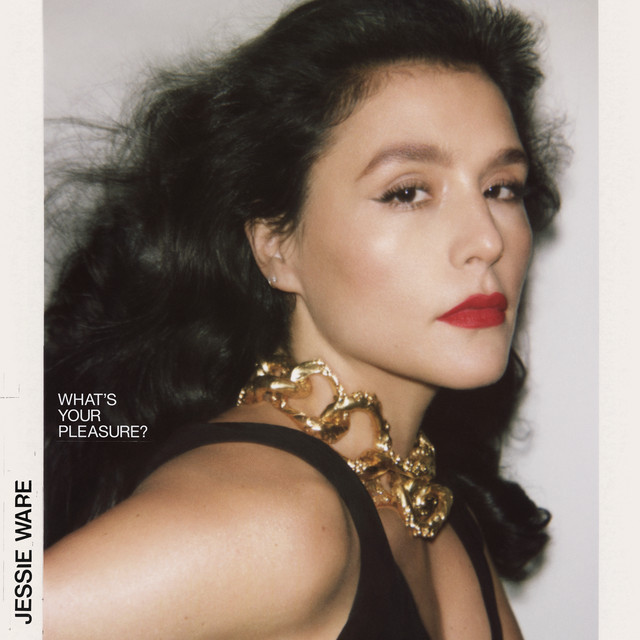 We all know the story by now: 2020, a year of isolation, was also home to some of the most upbeat and dance-floor-ready pop music in recent memory. It’s an irony that feels draining to even bring up. Still, a year of empty clubs ended in a bolstered string of fabulous albums that drew on the luscious excesses of disco. Jessie Ware had a particularly banner year. Her fourth album, What’s Your Pleasure?, was grounded in the powers of love and human connection through a sense of urgency. What’s Your Pleasure? made the promise of connection explicit—telling her conquests she “see[s] the future / It’s me and you”—but let fantasies linger. —Eric Bennett
We all know the story by now: 2020, a year of isolation, was also home to some of the most upbeat and dance-floor-ready pop music in recent memory. It’s an irony that feels draining to even bring up. Still, a year of empty clubs ended in a bolstered string of fabulous albums that drew on the luscious excesses of disco. Jessie Ware had a particularly banner year. Her fourth album, What’s Your Pleasure?, was grounded in the powers of love and human connection through a sense of urgency. What’s Your Pleasure? made the promise of connection explicit—telling her conquests she “see[s] the future / It’s me and you”—but let fantasies linger. —Eric Bennett
67. Beth Gibbons: Lives Outgrown (2024)
 If you arrive at Lives Outgrown looking for something that sounds like Portishead, you might find your thirst briefly satiated by “Floating on a Moment”—but it’s only a slight parallel. The song is melancholic yet enchanting, as Beth Gibbons finds herself trapped in a purgatory of middle-age—the prosperous hope of the future suddenly feels dimmer, and retrospect snaps itself back into place with a much less graceful ferocity. Lives Outgrown achieves a wondrous feat of relatability—even if what inspired these songs are not universal feelings. Gibbons’s splendor is her innate ability to make our own experiences feel denser and louder. When she sings about the timing never being right “when you’re losing a soul” on “Burden of Life,” anyone who has confronted the monstrous clamors of grief may feel it deeply. Gibbons likens her response to lostness to pebbles holding court on a shoreside, to understanding why generations dwindle. “I used to feel the feelings,” she admits, over the strums of her own acoustic guitar and Lee Harris’s percussive thrums. “Love that I once said I’d never rile.” Gibbons’s first solo record is embroidered with raw, cherished instrumentation that duets with open spaces. It is sometimes beautiful, sometimes jagged and worrisome. —Matt Mitchell
If you arrive at Lives Outgrown looking for something that sounds like Portishead, you might find your thirst briefly satiated by “Floating on a Moment”—but it’s only a slight parallel. The song is melancholic yet enchanting, as Beth Gibbons finds herself trapped in a purgatory of middle-age—the prosperous hope of the future suddenly feels dimmer, and retrospect snaps itself back into place with a much less graceful ferocity. Lives Outgrown achieves a wondrous feat of relatability—even if what inspired these songs are not universal feelings. Gibbons’s splendor is her innate ability to make our own experiences feel denser and louder. When she sings about the timing never being right “when you’re losing a soul” on “Burden of Life,” anyone who has confronted the monstrous clamors of grief may feel it deeply. Gibbons likens her response to lostness to pebbles holding court on a shoreside, to understanding why generations dwindle. “I used to feel the feelings,” she admits, over the strums of her own acoustic guitar and Lee Harris’s percussive thrums. “Love that I once said I’d never rile.” Gibbons’s first solo record is embroidered with raw, cherished instrumentation that duets with open spaces. It is sometimes beautiful, sometimes jagged and worrisome. —Matt Mitchell
66. Jockstrap: I Love You Jennifer B (2022)
 The debut album from London duo Jockstrap—Georgia Ellery, also of Black Country, New Road, and Taylor Skye—takes all of one minute to announce itself as something remarkable. Opener “Neon” draws you in with sparse acoustic guitar and Ellery’s lithe vocal, only to wallop you with rib cage-rattling bass, a film score-esque theremin sample and a ghostly chorus. It’s the first “holy shit” moment of many on the record, “a collection of Jockstrap tracks that have been three years in the making,” per the duo. Dramatic strings, synths and chanting usher “Concrete Over Water” into EDM banger mode; harp plucks flicker between organic and artificial to introduce “Angst”; closer “50/50” feels like a club anthem for the end of the world. Euphoric and disorienting at once, their deconstructed dance-pop music brings cubist art to mind, assembling familiar shapes into structures that are altogether alien. As Jockstrap leave the launchpad, you can either crane your neck at their dizzying ascent, or hold on for dear life and enjoy the ride, wherever it may take you. —Scott Russell
The debut album from London duo Jockstrap—Georgia Ellery, also of Black Country, New Road, and Taylor Skye—takes all of one minute to announce itself as something remarkable. Opener “Neon” draws you in with sparse acoustic guitar and Ellery’s lithe vocal, only to wallop you with rib cage-rattling bass, a film score-esque theremin sample and a ghostly chorus. It’s the first “holy shit” moment of many on the record, “a collection of Jockstrap tracks that have been three years in the making,” per the duo. Dramatic strings, synths and chanting usher “Concrete Over Water” into EDM banger mode; harp plucks flicker between organic and artificial to introduce “Angst”; closer “50/50” feels like a club anthem for the end of the world. Euphoric and disorienting at once, their deconstructed dance-pop music brings cubist art to mind, assembling familiar shapes into structures that are altogether alien. As Jockstrap leave the launchpad, you can either crane your neck at their dizzying ascent, or hold on for dear life and enjoy the ride, wherever it may take you. —Scott Russell
65. Turnstile: GLOW ON (2021)
 One of the most conspicuous musical trends of 2021 has been quiet introspection. Across genres, artists have folded inward. Clairo relinquished the indie-pop of her 2019 debut in lieu of a softer style that evokes ‘70s singer-songwriters like Stevie Nicks. Vince Staples deserted his high-energy delivery (and producer Kenny Beats abandoned his frantic arrangements) for something more lo-fi and muted. Though records such as these are captivating in their own rights, it’s also interesting to hear artists go against that current. That’s exactly what the Baltimore-based hardcore band TURNSTILE have done on their latest album, GLOW ON. With production from Mike Elizondo (now Grammy-nominated for his work) and co-production from TURNSTILE’s vocalist Brendan Yates, GLOW ON is the group’s most fully realized work yet. They use the full-throttle blueprint of their sterling sophomore album, 2018’s Time & Space, and expand upon it. GLOW ON puts TURNSTILE’s sheer amount of ambition on display, and they deliver on that ambition with a record that widens their scope. Throughout its 15 tracks, their newly expanded sound never falters, and it sees them toying with fresh effects and textures while still maintaining their forceful approach. At the same time, TURNSTILE move forward without losing sight of what made them so intriguing to begin with. GLOW ON isn’t just one of the best hardcore albums of the year; it’s one of the best albums of the year in general. —Grant Sharples
One of the most conspicuous musical trends of 2021 has been quiet introspection. Across genres, artists have folded inward. Clairo relinquished the indie-pop of her 2019 debut in lieu of a softer style that evokes ‘70s singer-songwriters like Stevie Nicks. Vince Staples deserted his high-energy delivery (and producer Kenny Beats abandoned his frantic arrangements) for something more lo-fi and muted. Though records such as these are captivating in their own rights, it’s also interesting to hear artists go against that current. That’s exactly what the Baltimore-based hardcore band TURNSTILE have done on their latest album, GLOW ON. With production from Mike Elizondo (now Grammy-nominated for his work) and co-production from TURNSTILE’s vocalist Brendan Yates, GLOW ON is the group’s most fully realized work yet. They use the full-throttle blueprint of their sterling sophomore album, 2018’s Time & Space, and expand upon it. GLOW ON puts TURNSTILE’s sheer amount of ambition on display, and they deliver on that ambition with a record that widens their scope. Throughout its 15 tracks, their newly expanded sound never falters, and it sees them toying with fresh effects and textures while still maintaining their forceful approach. At the same time, TURNSTILE move forward without losing sight of what made them so intriguing to begin with. GLOW ON isn’t just one of the best hardcore albums of the year; it’s one of the best albums of the year in general. —Grant Sharples
64. Injury Reserve: By the Time I Get to Phoenix (2021)
 The world is on fire, I can’t stop doom-scrolling and I often feel quite powerless. Life in the 2020s so far is distressing and overwhelming, and no album embodies the chronically online existential dread I endure more than Injury Reserve’s swan song, By the Time I Get to Phoenix. It’s disorienting and impossible to pin down, using its formlessness to convey a state of both internal and external disarray. It’s avant garde paranoia, frantic and abstract yet deeply resonant. During the making of the album, group member Jordan Alexander Groggs passed away and, even though much of By the Time I Get to Phoenix was already completed, Groggs’s absence hangs over the record and adds to its emotional heaviness. Uncompromising and unparalleled; there is no album like it, and probably never will be. —David Feigelson
The world is on fire, I can’t stop doom-scrolling and I often feel quite powerless. Life in the 2020s so far is distressing and overwhelming, and no album embodies the chronically online existential dread I endure more than Injury Reserve’s swan song, By the Time I Get to Phoenix. It’s disorienting and impossible to pin down, using its formlessness to convey a state of both internal and external disarray. It’s avant garde paranoia, frantic and abstract yet deeply resonant. During the making of the album, group member Jordan Alexander Groggs passed away and, even though much of By the Time I Get to Phoenix was already completed, Groggs’s absence hangs over the record and adds to its emotional heaviness. Uncompromising and unparalleled; there is no album like it, and probably never will be. —David Feigelson
63. Beyoncé: RENAISSANCE (2022)
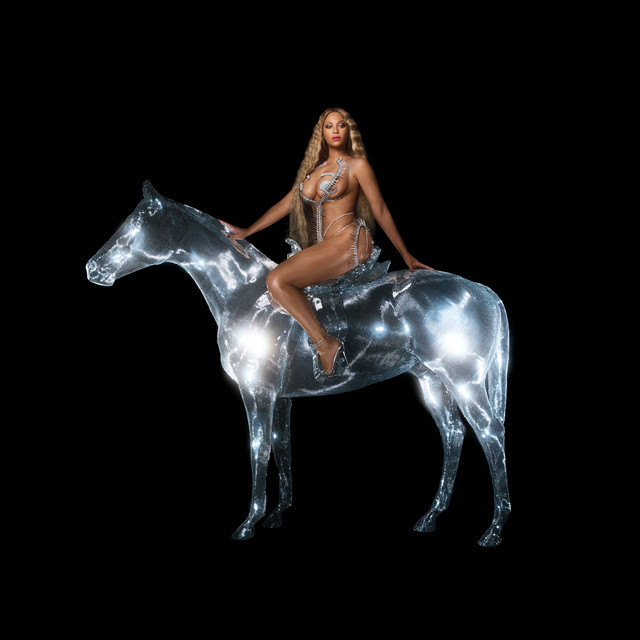 There’s a moment on the Queens Remix of “BREAK MY SOUL” where Beyoncé, Mother of the House of Renaissance, offers us salvation. Atop a beat that interpolates “Vogue,” Queen B tells us to “Release, repressed, suppressed, regressed, redirect all that anger to me. Give it to me! I’m built for this.” Beyoncé takes all that pressure and returns with the diamond that is RENAISSANCE. Lemonade and COWBOY CARTER showcase Beyoncé the human being, complicated and emotive. But RENAISSANCE is all Beyoncé the Icon: rich, shimmering, expensive, and untouchable. Across the album’s flawless 16 tracks, she traverses disco, house, ball, Afro-beats, and trap, and she bends each to her will. It’s an ode to black and queer dance music, a display of vocal virtuoso, and the party we deserved after the pandemic. RENAISSANCE is for feeling communal joy, whether it’s in the club, an AMC, the stadium, or on your own. Who else could accomplish that monumental task but Beyoncé? She’s one of one. She was built for this. —Andy Steiner
There’s a moment on the Queens Remix of “BREAK MY SOUL” where Beyoncé, Mother of the House of Renaissance, offers us salvation. Atop a beat that interpolates “Vogue,” Queen B tells us to “Release, repressed, suppressed, regressed, redirect all that anger to me. Give it to me! I’m built for this.” Beyoncé takes all that pressure and returns with the diamond that is RENAISSANCE. Lemonade and COWBOY CARTER showcase Beyoncé the human being, complicated and emotive. But RENAISSANCE is all Beyoncé the Icon: rich, shimmering, expensive, and untouchable. Across the album’s flawless 16 tracks, she traverses disco, house, ball, Afro-beats, and trap, and she bends each to her will. It’s an ode to black and queer dance music, a display of vocal virtuoso, and the party we deserved after the pandemic. RENAISSANCE is for feeling communal joy, whether it’s in the club, an AMC, the stadium, or on your own. Who else could accomplish that monumental task but Beyoncé? She’s one of one. She was built for this. —Andy Steiner
62. ROSALÍA: MOTOMAMI (2022)
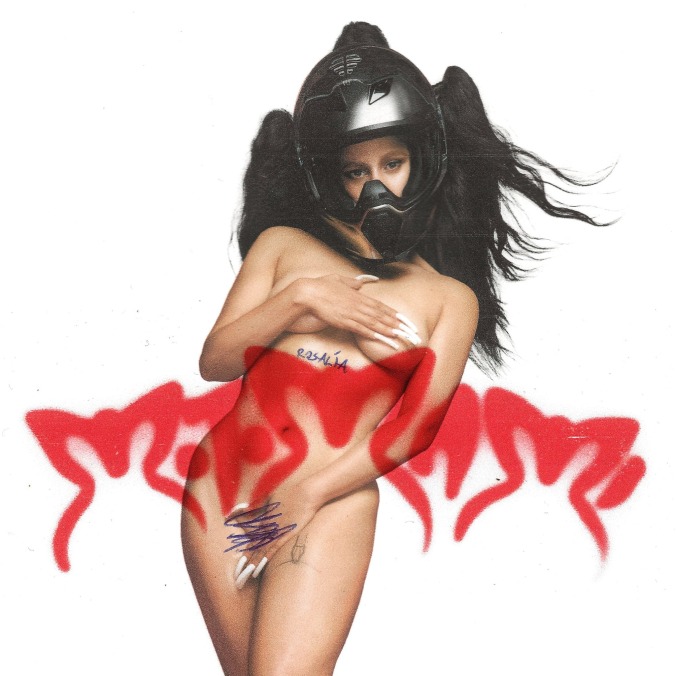 After 2018’s El Mal Querer put Rosalía on the map, her 2022 follow-up, MOTOMAMI, proved the hype around the Spanish superstar was well deserved. Freewheeling, seductive, moving and occasionally silly, MOTOMAMI is as tonally unpredictable as it is sonically. Splicing together aspects of flamenco, pop, R&B, reggaeton and dembow into musically distinct experiments, these songs are all distinct, and yet sit comfortably side by side. Rosalía even tries her hand at chiptune on “BIZCOCHITO,” a song packed with enough attitude that it almost makes her much memed gum-chewing pose worth it. Its bright, blinking synths get at what makes MOTOMAMI so special. There is no sound that Rosalía can’t shape to fit into her homespun-yet-futuristic sound. Only she could pull as much pathos out of a stuttering electronic ballad about riding her lover’s “pistola,” as she does on “HENTAI,” or weave an overwhelming amount of drama into the Tokischa-assisted “LA COMBI VERSACE,” a paean to designer threads. MOTOMAMI is one of a kind, but its bright flashbang isn’t that of a shooting star. Instead, think of it as a Kawasaki zooming past. —Eric Bennett
After 2018’s El Mal Querer put Rosalía on the map, her 2022 follow-up, MOTOMAMI, proved the hype around the Spanish superstar was well deserved. Freewheeling, seductive, moving and occasionally silly, MOTOMAMI is as tonally unpredictable as it is sonically. Splicing together aspects of flamenco, pop, R&B, reggaeton and dembow into musically distinct experiments, these songs are all distinct, and yet sit comfortably side by side. Rosalía even tries her hand at chiptune on “BIZCOCHITO,” a song packed with enough attitude that it almost makes her much memed gum-chewing pose worth it. Its bright, blinking synths get at what makes MOTOMAMI so special. There is no sound that Rosalía can’t shape to fit into her homespun-yet-futuristic sound. Only she could pull as much pathos out of a stuttering electronic ballad about riding her lover’s “pistola,” as she does on “HENTAI,” or weave an overwhelming amount of drama into the Tokischa-assisted “LA COMBI VERSACE,” a paean to designer threads. MOTOMAMI is one of a kind, but its bright flashbang isn’t that of a shooting star. Instead, think of it as a Kawasaki zooming past. —Eric Bennett
61. Arooj Aftab: Vulture Prince (2021)
 A Lahore, Pakistan-born graduate of Boston’s Berklee College of Music now based in Brooklyn, composer, singer and songwriter Arooj Aftab’s Vulture Prince followed her 2018 collection Siren Islands, but remained in direct conversation with her 2015 debut, Bird Under Water. Vulture Prince opens with “Baghon Main,” a new reimagining of her debut’s fourth track that replaces the original’s subdued harmonium with bright, beautiful strings, as if assuming a newly accepting outlook on a painful past. This act of looking back on days gone by is central to Vulture Prince, which is dedicated to the memory of Aftab’s younger brother Maher, whom she lost while writing it. Among Aftab’s most compelling explorations of the liminal space between love and loss is “Mohabbat,” which finds her breathing new life into a decades-old example of an ancient poetic form, the ghazal. With Vulture Prince, Aftab not only connects her songwriting to time-honored artistic traditions, but also makes music with the bittersweet beauty to echo through the years in and of itself. —Scott Russell
A Lahore, Pakistan-born graduate of Boston’s Berklee College of Music now based in Brooklyn, composer, singer and songwriter Arooj Aftab’s Vulture Prince followed her 2018 collection Siren Islands, but remained in direct conversation with her 2015 debut, Bird Under Water. Vulture Prince opens with “Baghon Main,” a new reimagining of her debut’s fourth track that replaces the original’s subdued harmonium with bright, beautiful strings, as if assuming a newly accepting outlook on a painful past. This act of looking back on days gone by is central to Vulture Prince, which is dedicated to the memory of Aftab’s younger brother Maher, whom she lost while writing it. Among Aftab’s most compelling explorations of the liminal space between love and loss is “Mohabbat,” which finds her breathing new life into a decades-old example of an ancient poetic form, the ghazal. With Vulture Prince, Aftab not only connects her songwriting to time-honored artistic traditions, but also makes music with the bittersweet beauty to echo through the years in and of itself. —Scott Russell
60. Fievel Is Glauque: Flaming Swords (2022)
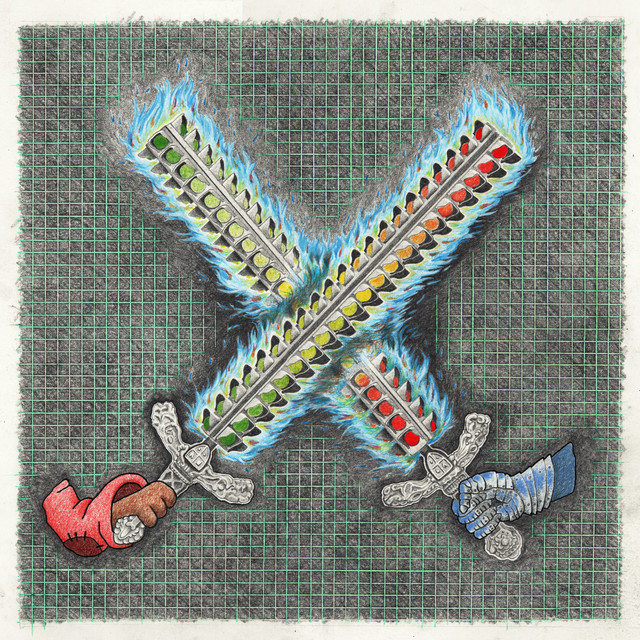 Perhaps the key tenant of Fievel Is Glaque’s eclectic twist on jazz pop is how central a jazz ethos is to the proceedings—culminating in inventive melodies reeled off at breakneck pace, building songs that capture more complexity in two-minute snapshots than most bands can in entire albums. Recorded live in one session, Flaming Swords sees multi-instrumentalist Zach Phillips and vocalist Ma Clément playfully push at the limits of all genre labels in their periphery, christening a thrillingly original musical lane and bucking all classification. —Elise Soutar
Perhaps the key tenant of Fievel Is Glaque’s eclectic twist on jazz pop is how central a jazz ethos is to the proceedings—culminating in inventive melodies reeled off at breakneck pace, building songs that capture more complexity in two-minute snapshots than most bands can in entire albums. Recorded live in one session, Flaming Swords sees multi-instrumentalist Zach Phillips and vocalist Ma Clément playfully push at the limits of all genre labels in their periphery, christening a thrillingly original musical lane and bucking all classification. —Elise Soutar
59. Chuquimamani-Condori: DJ E (2023)
 If, in 2023, you asked me if it’s possible to create art that allows nostalgia to bubble and take over without giving way to revisionist, conservative impulses, I might’ve said that it would be easier for a camel to go through the eye of a needle. The multi-hyphenate artist now known as Chuquimamani-Condori, however, accomplished that and so much more on DJ E, a reckless, brilliant collection of electronics, Andean folk and psychedelia that inspires massive waves of emotion with every gesture. Whether it’s on the grand, bouncing entry that is “Breathing” or the pounding romanticism of “Until I Find You Again,” the music teems with vitality. Everything is in brilliant Technicolor; every sample feels more inspired than the last. Joshua Chuquimia Crampton’s guitar on “Eat My Cum” and PK Crampton’s circular saw on the especially danceable “Engine” complement Chuquimamani-Condori’s electronic collages just right. What makes DJ E so sticky is the amount of love you can feel emanating from it: love as friction, love as communalism, love as expression, love as play, love as reflection. Listening will remind you of every time you felt that love come your way. —Devon Chodzin
If, in 2023, you asked me if it’s possible to create art that allows nostalgia to bubble and take over without giving way to revisionist, conservative impulses, I might’ve said that it would be easier for a camel to go through the eye of a needle. The multi-hyphenate artist now known as Chuquimamani-Condori, however, accomplished that and so much more on DJ E, a reckless, brilliant collection of electronics, Andean folk and psychedelia that inspires massive waves of emotion with every gesture. Whether it’s on the grand, bouncing entry that is “Breathing” or the pounding romanticism of “Until I Find You Again,” the music teems with vitality. Everything is in brilliant Technicolor; every sample feels more inspired than the last. Joshua Chuquimia Crampton’s guitar on “Eat My Cum” and PK Crampton’s circular saw on the especially danceable “Engine” complement Chuquimamani-Condori’s electronic collages just right. What makes DJ E so sticky is the amount of love you can feel emanating from it: love as friction, love as communalism, love as expression, love as play, love as reflection. Listening will remind you of every time you felt that love come your way. —Devon Chodzin
58. Lana Del Rey: Did you know there’s a tunnel under Ocean Blvd (2023)
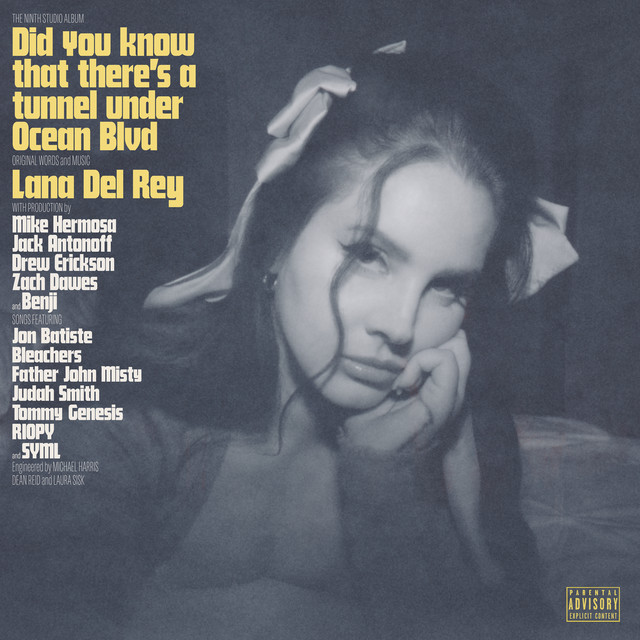 It’s a trope by now, an artist’s “most personal album yet.” Often, these emotionally naked projects come from folks who’ve never been particularly elusive, making this raw framing feel fraudulent. Lana Del Rey, though, traffics in ornate, melodramatic artifice. Her ninth album, Did you know that there’s a tunnel under Ocean Blvd?, is the first time she’s truly let us in, and it’s a new peak for the artist—uncharacteristically personal, and overwhelming in its beauty. On songs like “Fingertips,” “A&W” and “The Grants” she explores her feelings about maternity and mortality, as well as her relationships with her family. For an album exploring such heavy topics, it’s notable how sonically light it sounds, with each song lifted up by sterling strings. There’s also her innate humor ringing throughout, with songs like “Peppers” and “Taco Truck x VB” flipping the seriousness on its head. Lana just gets to be Lana, singing about her own inner world, her innermost thoughts, and her vape. —Eric Bennett
It’s a trope by now, an artist’s “most personal album yet.” Often, these emotionally naked projects come from folks who’ve never been particularly elusive, making this raw framing feel fraudulent. Lana Del Rey, though, traffics in ornate, melodramatic artifice. Her ninth album, Did you know that there’s a tunnel under Ocean Blvd?, is the first time she’s truly let us in, and it’s a new peak for the artist—uncharacteristically personal, and overwhelming in its beauty. On songs like “Fingertips,” “A&W” and “The Grants” she explores her feelings about maternity and mortality, as well as her relationships with her family. For an album exploring such heavy topics, it’s notable how sonically light it sounds, with each song lifted up by sterling strings. There’s also her innate humor ringing throughout, with songs like “Peppers” and “Taco Truck x VB” flipping the seriousness on its head. Lana just gets to be Lana, singing about her own inner world, her innermost thoughts, and her vape. —Eric Bennett
57. Angel Olsen: Big Time (2022)
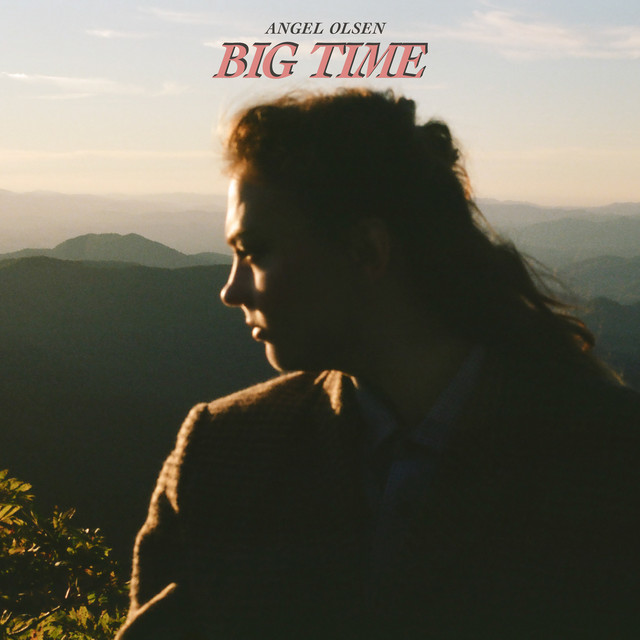 On Big Time, the grand, burgeoning, symphonic gestures of Angel Olsen’s last three studio LPs are gone, substituted with Phases-era, minimalistic, pedal steel-tinged sobcore and dreamy twang. It’s a one-woman show, a prize fight where the challenger no-showed. Big Time isn’t a bummer opera; it’s a last-call, honky-tonk bar encore—and it rules. On opener “All The Good Times,” Olsen surrenders the album’s thesis, declaring that she’s done making excuses for everyone else. “I can’t say that I’m sorry when I don’t feel so wrong anymore,” she sings. The horn arrangements here are subtle, and Drew Erickson’s organ trembles slightly beneath Olsen’s vocals. It’s an announcement, a warning, that this is a new era of her songwriting. —Matt Mitchell
On Big Time, the grand, burgeoning, symphonic gestures of Angel Olsen’s last three studio LPs are gone, substituted with Phases-era, minimalistic, pedal steel-tinged sobcore and dreamy twang. It’s a one-woman show, a prize fight where the challenger no-showed. Big Time isn’t a bummer opera; it’s a last-call, honky-tonk bar encore—and it rules. On opener “All The Good Times,” Olsen surrenders the album’s thesis, declaring that she’s done making excuses for everyone else. “I can’t say that I’m sorry when I don’t feel so wrong anymore,” she sings. The horn arrangements here are subtle, and Drew Erickson’s organ trembles slightly beneath Olsen’s vocals. It’s an announcement, a warning, that this is a new era of her songwriting. —Matt Mitchell
56. Youth Lagoon: Heaven Is a Junkyard (2023)
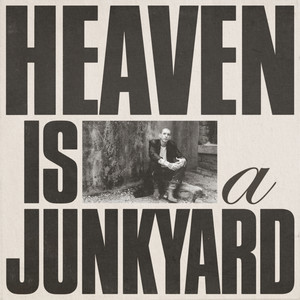 Written in and demoed while recovering from a freak illness that sidelined him for months and recorded in tune with the spirit of Trevor Powers’s dear friend Cormac Roth after his passing, there is a shadow of survival across Heaven Is a Junkyard. The world Powers has captured on this album is sure to change the lexicon in some capacity, whether it’s how we mark our own continuity or how we might begin to repair ourselves with kindness beyond grief. It feels right to say that the world needs Youth Lagoon now more than ever. Heaven Is a Junkyard aims to better understand what survival means in the eyes of a savior; how the underbelly of America’s cruelty can somehow make sense in conversation with a greater being—and what Powers’s presence is within all of that. The muscles and the guts and the nerves have been peeled back to expose the bone and reveal the truth: a singular voice surrounded by cadaverous, gaunt arrangements; a body making sense of its world by memorizing every inch of it. Powers shrunk the world of Youth Lagoon down into a single neighborhood—one that is not yet beaten down by the sun but overflowing with technicolor. In the cracks of pain is beauty; a shivering exodus of catharsis, hope, empowerment and togetherness. 20 months ago, God was suffering with Powers. Now, God is reveling in the joy and the strata of Boise, Idaho, a mooring, picturesque tomorrow that Powers has written him into. “Heaven is a junkyard,” he sings. “And it’s my home.” —Matt Mitchell
Written in and demoed while recovering from a freak illness that sidelined him for months and recorded in tune with the spirit of Trevor Powers’s dear friend Cormac Roth after his passing, there is a shadow of survival across Heaven Is a Junkyard. The world Powers has captured on this album is sure to change the lexicon in some capacity, whether it’s how we mark our own continuity or how we might begin to repair ourselves with kindness beyond grief. It feels right to say that the world needs Youth Lagoon now more than ever. Heaven Is a Junkyard aims to better understand what survival means in the eyes of a savior; how the underbelly of America’s cruelty can somehow make sense in conversation with a greater being—and what Powers’s presence is within all of that. The muscles and the guts and the nerves have been peeled back to expose the bone and reveal the truth: a singular voice surrounded by cadaverous, gaunt arrangements; a body making sense of its world by memorizing every inch of it. Powers shrunk the world of Youth Lagoon down into a single neighborhood—one that is not yet beaten down by the sun but overflowing with technicolor. In the cracks of pain is beauty; a shivering exodus of catharsis, hope, empowerment and togetherness. 20 months ago, God was suffering with Powers. Now, God is reveling in the joy and the strata of Boise, Idaho, a mooring, picturesque tomorrow that Powers has written him into. “Heaven is a junkyard,” he sings. “And it’s my home.” —Matt Mitchell
55. Kelela: Raven (2023)
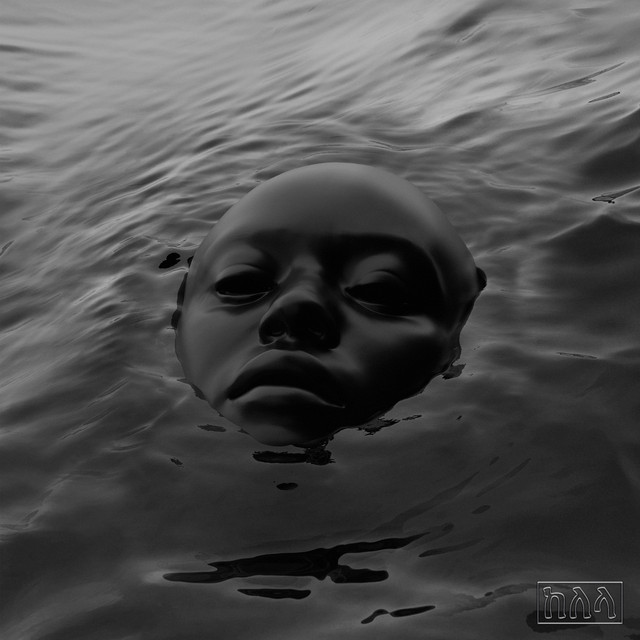 Experimental R&B singer Kelela has always expected more. In the intervening years between Take Me a_Part, the Remixes and her second studio album, Raven, Kelela immersed herself in everything from Black queer and feminist theory to hooks and Devereaux, and performed an audit of her network—asking what her connections are really doing to support Black women and marginalized people in their practices. She forged a new path ahead based on those responses. It’s this act of expecting better, seeking it out in writings and conjuring a liberated future through ingenious production that makes Raven such a shocking listen. Kelela is no stranger to changing the game through her futuristic dance music, but Raven possesses a unique brilliance. Her heavenly vocals pair exquisitely with LDSXOXO’s disorienting breakbeats; the denouement of “Contact” is psychedelic and all too real at once, an elegant celebration of queer Black feminine pleasure. Ambient comedowns act like valves, reducing the pressure for a few precious moments before the party starts again. Raven is a tour of a freer future, where the party’s only just begun. —Devon Chodzin
Experimental R&B singer Kelela has always expected more. In the intervening years between Take Me a_Part, the Remixes and her second studio album, Raven, Kelela immersed herself in everything from Black queer and feminist theory to hooks and Devereaux, and performed an audit of her network—asking what her connections are really doing to support Black women and marginalized people in their practices. She forged a new path ahead based on those responses. It’s this act of expecting better, seeking it out in writings and conjuring a liberated future through ingenious production that makes Raven such a shocking listen. Kelela is no stranger to changing the game through her futuristic dance music, but Raven possesses a unique brilliance. Her heavenly vocals pair exquisitely with LDSXOXO’s disorienting breakbeats; the denouement of “Contact” is psychedelic and all too real at once, an elegant celebration of queer Black feminine pleasure. Ambient comedowns act like valves, reducing the pressure for a few precious moments before the party starts again. Raven is a tour of a freer future, where the party’s only just begun. —Devon Chodzin
54. The Koreatown Oddity: Little Dominiques Nosebleed (2020)
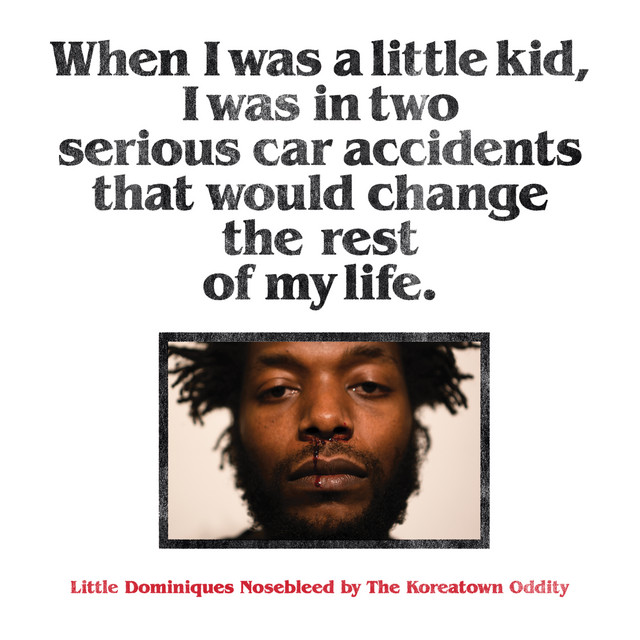 By the time LA rapper and producer the Koreatown Oddity dropped Little Dominiques Nosebleed in the summer of 2020, he’d already put out a handful of records. But this LP was, and still is, the one. Abandoning the fragmented, non-linear storytelling of his previous efforts, Little Dominiques Nosebleed is memoir delivered in intimacy, layered with jazz arrangements, narrative conflict and interpersonal warmth. The album, and the rapper’s namesake, is a historical effort, detailing the struggles and rebuilding of the neighborhood affected deeply by the 1992 LA Riots; the “Riding around with my moms in a riot salute / Terry with jheri curl tying plastic bags on his shoes / Koreans on the roof / Of the California Mart / With the shotguns ready to shoot” verse on “The Koreatown Oddity” presents looming violence as an extension of a community just trying to survive. Oddity reckons with the RFK assassination, gang politics, city demographics, heritage and family migration. On “Weed in LA,” he talks about his mom moving from Ohio to the West Coast, and even those cross-country tales don’t exile Koreatown as their protagonist. Little Dominiques Nosebleed is spiritual; gentrification, foodies and outsiders cast a shadow over Oddity’s home, but through 16 tracks, he builds a monument to what can’t be pushed out. —Matt Mitchell
By the time LA rapper and producer the Koreatown Oddity dropped Little Dominiques Nosebleed in the summer of 2020, he’d already put out a handful of records. But this LP was, and still is, the one. Abandoning the fragmented, non-linear storytelling of his previous efforts, Little Dominiques Nosebleed is memoir delivered in intimacy, layered with jazz arrangements, narrative conflict and interpersonal warmth. The album, and the rapper’s namesake, is a historical effort, detailing the struggles and rebuilding of the neighborhood affected deeply by the 1992 LA Riots; the “Riding around with my moms in a riot salute / Terry with jheri curl tying plastic bags on his shoes / Koreans on the roof / Of the California Mart / With the shotguns ready to shoot” verse on “The Koreatown Oddity” presents looming violence as an extension of a community just trying to survive. Oddity reckons with the RFK assassination, gang politics, city demographics, heritage and family migration. On “Weed in LA,” he talks about his mom moving from Ohio to the West Coast, and even those cross-country tales don’t exile Koreatown as their protagonist. Little Dominiques Nosebleed is spiritual; gentrification, foodies and outsiders cast a shadow over Oddity’s home, but through 16 tracks, he builds a monument to what can’t be pushed out. —Matt Mitchell
53. Fust: Genevieve (2023)
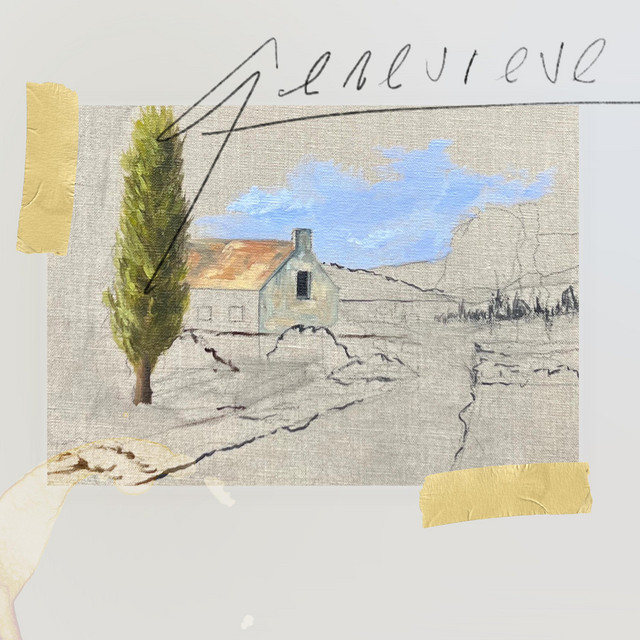 Few voices can write a song quite like Aaron Dowdy, whose band Fust quietly dropped one of the best albums of 2023, Genevieve. Featuring Indigo De Souza, MJ Slenderman, Alex Farrar, Michael Cormier-O’Leary and the band Sluice, Genevieve interrogates a life and its small joys and details. Dowdy writes in vignettes and packs them with soul-stirring one-liners (“I’m ready to receive my hurt”; “Let’s sing that worn just one more time”; “Maybe you’ve got time inside you”; “I’ll find a way to get better for us”; “Before I go, know I did adore you”). His protagonists are constantly in quiet crisis, extending simple gestures of compassion and reassurance. Genevieve is somber and difficult, flashes of humility, embarrassment, loss and affection delivered through country-inflected pageantry and communal, volume-jumping rock ‘n’ roll. —Matt Mitchell
Few voices can write a song quite like Aaron Dowdy, whose band Fust quietly dropped one of the best albums of 2023, Genevieve. Featuring Indigo De Souza, MJ Slenderman, Alex Farrar, Michael Cormier-O’Leary and the band Sluice, Genevieve interrogates a life and its small joys and details. Dowdy writes in vignettes and packs them with soul-stirring one-liners (“I’m ready to receive my hurt”; “Let’s sing that worn just one more time”; “Maybe you’ve got time inside you”; “I’ll find a way to get better for us”; “Before I go, know I did adore you”). His protagonists are constantly in quiet crisis, extending simple gestures of compassion and reassurance. Genevieve is somber and difficult, flashes of humility, embarrassment, loss and affection delivered through country-inflected pageantry and communal, volume-jumping rock ‘n’ roll. —Matt Mitchell
52. Bad Bunny: Un Verano Sin Ti (2022)
 If you currently have a pulse, then you certainly have felt the gravitational stardom of Puerto Rican rapper, singer-songwriter and part-time wrestler Bad Bunny. So few acts in the last decade—or maybe even this century—have emerged into the mainstream like Bunny, whose work in the realms of Latin trap, reggaeton and pop are deftly singular. With nine of the album’s 22 songs released as singles, Un Verano Sin Ti might just be one of the most accessible hit records made by a non-continental U.S. musician in a long, long time. Where his debut album, X 100pre, and its follow-up, YHLQMDLG, helped make Bad Bunny a household name, it was Un Verano Sin Ti that helped him transcend even those confines. Songs like “Moscow Mule,” “Me Porto Bonito” and “Ojitos Lindos” reign supreme, symbolizing exactly why Un Verano Sin Ti spent 13 weeks atop the Billboard 200: few musicians alive are as versatile as Bad Bunny, as his cross-genre, multi-generational and bilingual songwriting stands alone. He was already a star before this album came out; now, in its wake, he’ll never be anything less than a global sensation. —Matt Mitchell
If you currently have a pulse, then you certainly have felt the gravitational stardom of Puerto Rican rapper, singer-songwriter and part-time wrestler Bad Bunny. So few acts in the last decade—or maybe even this century—have emerged into the mainstream like Bunny, whose work in the realms of Latin trap, reggaeton and pop are deftly singular. With nine of the album’s 22 songs released as singles, Un Verano Sin Ti might just be one of the most accessible hit records made by a non-continental U.S. musician in a long, long time. Where his debut album, X 100pre, and its follow-up, YHLQMDLG, helped make Bad Bunny a household name, it was Un Verano Sin Ti that helped him transcend even those confines. Songs like “Moscow Mule,” “Me Porto Bonito” and “Ojitos Lindos” reign supreme, symbolizing exactly why Un Verano Sin Ti spent 13 weeks atop the Billboard 200: few musicians alive are as versatile as Bad Bunny, as his cross-genre, multi-generational and bilingual songwriting stands alone. He was already a star before this album came out; now, in its wake, he’ll never be anything less than a global sensation. —Matt Mitchell
51. MIKE: Burning Desire (2023)
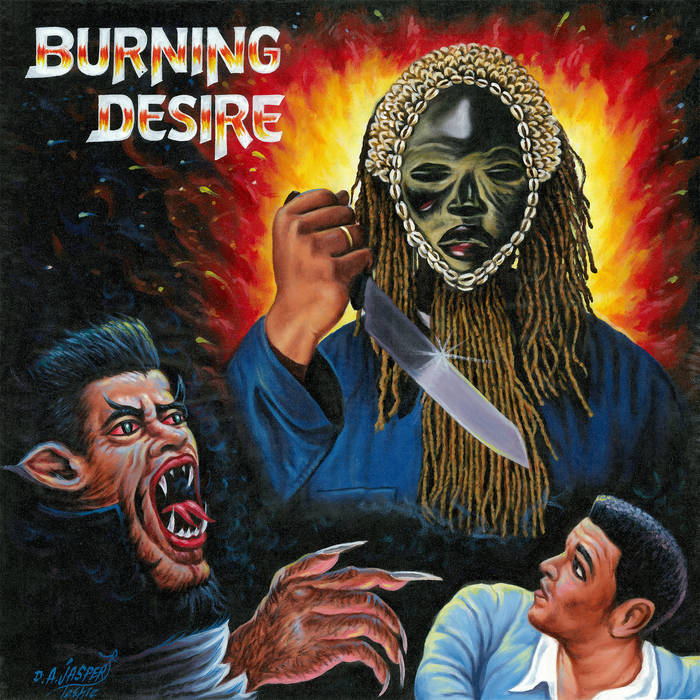 There are five MIKE albums that have come out since this decade began, as he’s one of the most prolific rappers alive. But his 2023 LP Burning Desire is, in no short terms, a career-defining mark of brilliance. The New Yorker is on another level throughout, emphasizing underground attitudes with timeless sampling and crystalline verses. A song like “Snake Charm” has been on constant rotation for me since it came out in October, and its mystical beats drench my ears in sentimentality from the jump. With a crew of guests like Larry June, Liv.e, Earl Sweatshirt and fashionspitta, MIKE put together a who’s-who of gold-medal co-collaborators. It’s a harmonious affair, too, as every added part fits perfectly. “plz don’t cut my wings” is orchestral brilliance paired with MIKE and Earl trading monotone verses that are tranquil and morose. Burning Desire is adventurous and quick, despite its 24-song, 51-minute runtime. MIKE’s approach to vignettes evokes a mixtape ethos with the grandiosity of a big-budget studio album. —Matt Mitchell
There are five MIKE albums that have come out since this decade began, as he’s one of the most prolific rappers alive. But his 2023 LP Burning Desire is, in no short terms, a career-defining mark of brilliance. The New Yorker is on another level throughout, emphasizing underground attitudes with timeless sampling and crystalline verses. A song like “Snake Charm” has been on constant rotation for me since it came out in October, and its mystical beats drench my ears in sentimentality from the jump. With a crew of guests like Larry June, Liv.e, Earl Sweatshirt and fashionspitta, MIKE put together a who’s-who of gold-medal co-collaborators. It’s a harmonious affair, too, as every added part fits perfectly. “plz don’t cut my wings” is orchestral brilliance paired with MIKE and Earl trading monotone verses that are tranquil and morose. Burning Desire is adventurous and quick, despite its 24-song, 51-minute runtime. MIKE’s approach to vignettes evokes a mixtape ethos with the grandiosity of a big-budget studio album. —Matt Mitchell
50. Home Front: Games of Power (2023)
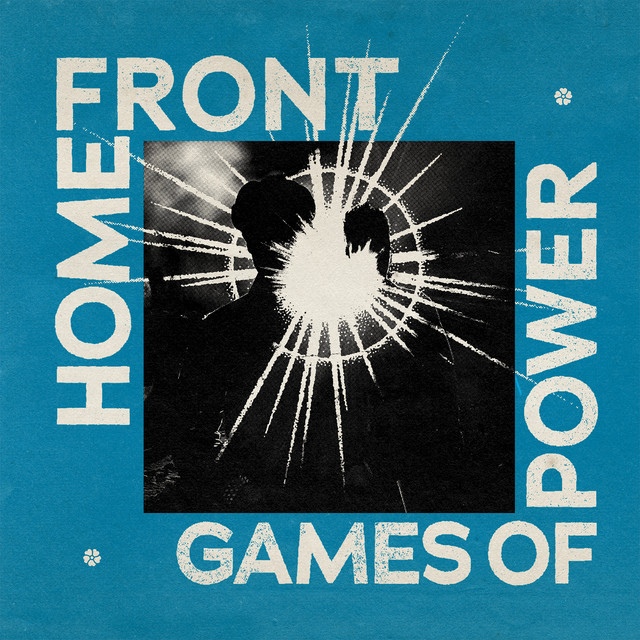 On its first album Home Front sticks to what made its 2021 EP so good. If the punk rock guy and new wave girl from Great Plains’ “Letter to a Fanzine” had a kid this would’ve been the band they started. Games of Power sounds like ‘80s new wave by a hardcore band, with shout-sung barks cutting through big hooks from chorus-heavy guitars and synths, and programmed drums urging it all along. It’s best when it doesn’t tip too far into the hardcore direction, as happens on “Nation,” which sounds like every middle-aged hardcore band you suffered through at your high school friends’ shows covering Carter the Unstoppable Sex Machine—which, yes, is pretty cool, actually. The other 10 songs sound displaced from a 1980s far cooler than our own, where punk bands took notes from New Order and Echo and the Bunnymen without losing their aggression or individuality. Highlights include “End Transmission,” album opener “Faded State,” and the OMD-ish “Face Value,” but you can’t go wrong with pretty much anything here. Like, take the Total Control-ish “Born Killer;” it has the jackhammer minimalism of Suicide with ringing guitar chords that sound like Link Wray with a Boss CE-2. Like (almost) all of Games of Power, it’s impossible to say no to. —Garrett Martin
On its first album Home Front sticks to what made its 2021 EP so good. If the punk rock guy and new wave girl from Great Plains’ “Letter to a Fanzine” had a kid this would’ve been the band they started. Games of Power sounds like ‘80s new wave by a hardcore band, with shout-sung barks cutting through big hooks from chorus-heavy guitars and synths, and programmed drums urging it all along. It’s best when it doesn’t tip too far into the hardcore direction, as happens on “Nation,” which sounds like every middle-aged hardcore band you suffered through at your high school friends’ shows covering Carter the Unstoppable Sex Machine—which, yes, is pretty cool, actually. The other 10 songs sound displaced from a 1980s far cooler than our own, where punk bands took notes from New Order and Echo and the Bunnymen without losing their aggression or individuality. Highlights include “End Transmission,” album opener “Faded State,” and the OMD-ish “Face Value,” but you can’t go wrong with pretty much anything here. Like, take the Total Control-ish “Born Killer;” it has the jackhammer minimalism of Suicide with ringing guitar chords that sound like Link Wray with a Boss CE-2. Like (almost) all of Games of Power, it’s impossible to say no to. —Garrett Martin
49. The Weeknd: Dawn FM (2022)
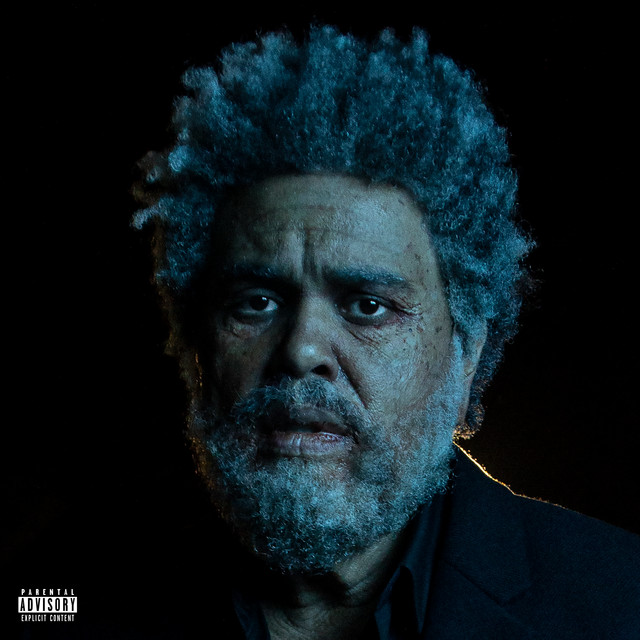 After Hours set expectations for The Weeknd. How was Abel Tesfaye going to follow up what was, arguably, one of the best side-twos on a pop record in recent memory? When it dropped, the world had only recently gone to shit, and I approached the songs looking for something revolutionary in its lyricism. But now, there’s something displeasurable about mining for immediate profundity in a world where nothing can quite contextualize the hell we’re living in. And as we are about to hit the second anniversary of the pandemic, I realize that I, and so many others, just ache to experience joy, to share community through goodness and remember what it felt like to dance into writhing bodies as weightless as they were distant. Dawn FM’s story works by avoiding risk and never getting tangled up in itself, taking over as Tesfaye’s best lyrical performance yet. But instrumentally and technically, it’s a near-perfect record; the sexiest hour of songs in years, released during a moment where artists are doing their best to track albums with urgent commentary. Dawn FM’s urgency doesn’t come by way of Tesfaye fashioning a song that teleports us to a specific moment in the pandemic, but rather in how he momentarily transports us out of it. —Matt Mitchell
After Hours set expectations for The Weeknd. How was Abel Tesfaye going to follow up what was, arguably, one of the best side-twos on a pop record in recent memory? When it dropped, the world had only recently gone to shit, and I approached the songs looking for something revolutionary in its lyricism. But now, there’s something displeasurable about mining for immediate profundity in a world where nothing can quite contextualize the hell we’re living in. And as we are about to hit the second anniversary of the pandemic, I realize that I, and so many others, just ache to experience joy, to share community through goodness and remember what it felt like to dance into writhing bodies as weightless as they were distant. Dawn FM’s story works by avoiding risk and never getting tangled up in itself, taking over as Tesfaye’s best lyrical performance yet. But instrumentally and technically, it’s a near-perfect record; the sexiest hour of songs in years, released during a moment where artists are doing their best to track albums with urgent commentary. Dawn FM’s urgency doesn’t come by way of Tesfaye fashioning a song that teleports us to a specific moment in the pandemic, but rather in how he momentarily transports us out of it. —Matt Mitchell
48. Amaarae: Fountain Baby (2023)
 Amaarae’s second album, Fountain Baby, is a thrill ride from beginning to end, as the Ghanaian-American Afrobeats and pop singer-songwriter glides in and out of glitchy, alternative fame and multi-genre fusion. Led by singles “Reckless & Sweet,” “Co-Star” and “Wasted Eyes,” Fountain Baby is built to shine and quake with every note, and it’s stacked atop precious dance boasts and mystifying grooves that shift like tectonic plates. She explores gender and sexuality in lucid, unfurled and unabashed ways. Amaarae did something spectacular on her debut album THE ANGEL YOU DON’T KNOW three years ago, but this is her direct shot to fame. Fountain Baby is the type of pop record people will be talking about for a long, long time, and a song like “Angels in Tibet,” which pulls experimental R&B energy into a more contemporary, mainstream space, is immediate proof that Amaarae is the brightest and most unconventional pop musician working today—and she’s just getting started. —Matt Mitchell
Amaarae’s second album, Fountain Baby, is a thrill ride from beginning to end, as the Ghanaian-American Afrobeats and pop singer-songwriter glides in and out of glitchy, alternative fame and multi-genre fusion. Led by singles “Reckless & Sweet,” “Co-Star” and “Wasted Eyes,” Fountain Baby is built to shine and quake with every note, and it’s stacked atop precious dance boasts and mystifying grooves that shift like tectonic plates. She explores gender and sexuality in lucid, unfurled and unabashed ways. Amaarae did something spectacular on her debut album THE ANGEL YOU DON’T KNOW three years ago, but this is her direct shot to fame. Fountain Baby is the type of pop record people will be talking about for a long, long time, and a song like “Angels in Tibet,” which pulls experimental R&B energy into a more contemporary, mainstream space, is immediate proof that Amaarae is the brightest and most unconventional pop musician working today—and she’s just getting started. —Matt Mitchell
47. feeble little horse: Girl With Fish (2023)
 Shattering the myth of “sophomore slump syndrome,” feeble little horse possess an uncanny bravery. They forge ahead with a fearlessness that is palpable even when the lyrics are sparse. You can feel it in the overdrive and the distortion, and the riffs that are so intense they register in your chest. Vocalist Lydia Slocum makes it most evident on tracks like “Healing,” in which she professes: “Paint still washes off / Even after it’s dried / It doesn’t matter / To the sink.” With her gossamer vocals floating over doting guitars, it’s a thinly veiled shot at reassurance—a promise that if you’re patient all the pain will go away. It’s these moments of tenderness that make Girl with Fish so endearing. There’s a sense that the band has seen what they’ve needed to, that they’ve been where you are and found a way through. feeble little horse don’t shy away from the harsh truths, like on “Tin Man,” when Slocum admits “I found you / All rusted and leaky / Took him apart / And I found nobody.” They highlight the letdowns and the L’s we all reluctantly take—staring down the moments that really suck and daring to transform them into proof of redemption. —Samantha Sullivan
Shattering the myth of “sophomore slump syndrome,” feeble little horse possess an uncanny bravery. They forge ahead with a fearlessness that is palpable even when the lyrics are sparse. You can feel it in the overdrive and the distortion, and the riffs that are so intense they register in your chest. Vocalist Lydia Slocum makes it most evident on tracks like “Healing,” in which she professes: “Paint still washes off / Even after it’s dried / It doesn’t matter / To the sink.” With her gossamer vocals floating over doting guitars, it’s a thinly veiled shot at reassurance—a promise that if you’re patient all the pain will go away. It’s these moments of tenderness that make Girl with Fish so endearing. There’s a sense that the band has seen what they’ve needed to, that they’ve been where you are and found a way through. feeble little horse don’t shy away from the harsh truths, like on “Tin Man,” when Slocum admits “I found you / All rusted and leaky / Took him apart / And I found nobody.” They highlight the letdowns and the L’s we all reluctantly take—staring down the moments that really suck and daring to transform them into proof of redemption. —Samantha Sullivan
46. ML Buch: Suntub (2023)
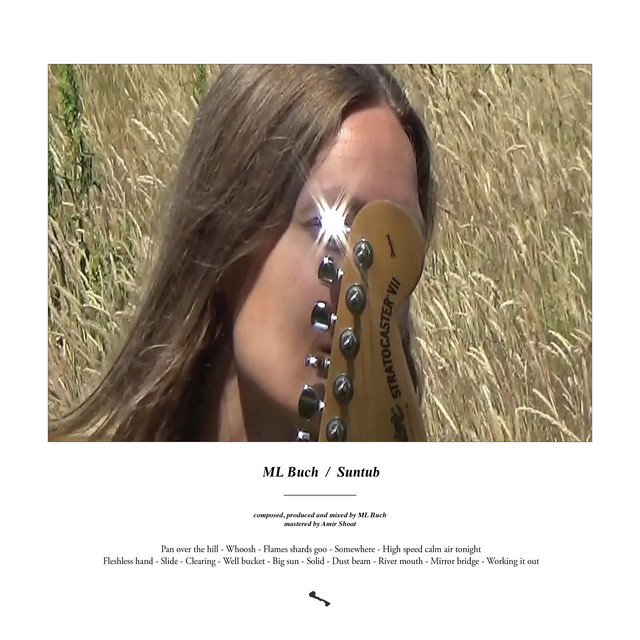 If Skinned was a hard pill to swallow, a synthesis of the primeval sinew that binds our physical form to the plastic-encased fibers that keep us connected (especially during the summer of 2020, when the album dropped), then ML Buch’s sophomore effort Suntub is like a new, wondrous being released into the world, dazzled by its simple earthly pleasures. Many, myself included, have had to learn how to enjoy their own company over the last few years, to feel at peace with solitude as a means to reinvigorate the social essence hardcoded in every human. Buch is no exception, having fled the city to live in isolation out in the country, a haven where much of the writing for the album took place. Buch’s predilection for flesh is on immediate display—“Nails pop off / Pores chatter / Here we go / With our temporary bodies,” she shouts with vigor on “Flames shards goo,” layered over the lazy patter of her guitar. Buch’s synths here feel more alive than ever, too, propulsively carting us along a scenic highway on “Somewhere” and giving way to a gleaming twilight on “High speed calm air tonight.” While Suntub’s setting is forever changing, its static imagery (like flowers on the side of the road, glistening shorelines, an impossibly bright sun and a burning sky) are constantly referenced. Buch’s vagabond spirit recalls Joni Mitchell’s travelogue album Hejira, which was written during and after several frothy, cocaine-addled roadtrips. Buch’s own recording took place in unlikely places: in the back of a car on Danish beaches, in storage units, near a swimming pool and its adjacent sauna. Mitchell’s lyricism may be more narrativized than Buch’s more ecstatic poetry, but the sense of time and place is impressed all the same. —Austin Jones
If Skinned was a hard pill to swallow, a synthesis of the primeval sinew that binds our physical form to the plastic-encased fibers that keep us connected (especially during the summer of 2020, when the album dropped), then ML Buch’s sophomore effort Suntub is like a new, wondrous being released into the world, dazzled by its simple earthly pleasures. Many, myself included, have had to learn how to enjoy their own company over the last few years, to feel at peace with solitude as a means to reinvigorate the social essence hardcoded in every human. Buch is no exception, having fled the city to live in isolation out in the country, a haven where much of the writing for the album took place. Buch’s predilection for flesh is on immediate display—“Nails pop off / Pores chatter / Here we go / With our temporary bodies,” she shouts with vigor on “Flames shards goo,” layered over the lazy patter of her guitar. Buch’s synths here feel more alive than ever, too, propulsively carting us along a scenic highway on “Somewhere” and giving way to a gleaming twilight on “High speed calm air tonight.” While Suntub’s setting is forever changing, its static imagery (like flowers on the side of the road, glistening shorelines, an impossibly bright sun and a burning sky) are constantly referenced. Buch’s vagabond spirit recalls Joni Mitchell’s travelogue album Hejira, which was written during and after several frothy, cocaine-addled roadtrips. Buch’s own recording took place in unlikely places: in the back of a car on Danish beaches, in storage units, near a swimming pool and its adjacent sauna. Mitchell’s lyricism may be more narrativized than Buch’s more ecstatic poetry, but the sense of time and place is impressed all the same. —Austin Jones
45. Young Fathers: Heavy Heavy (2023)
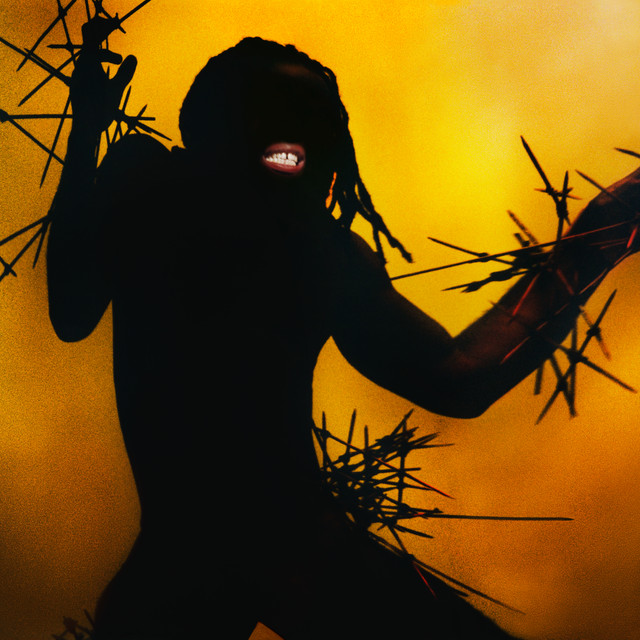 The fourth proper album from Young Fathers is billed as a “back-to-basics” effort, but there’s absolutely nothing basic about it. Bearing in mind that the Edinburgh trio’s full-length debut still sounds stunningly fresh almost a decade after the fact, it’s no surprise that their music remains as impossible to categorize as ever on Heavy Heavy. Five years after their last effort, band members Kayus Bankole, G. Hastings and Alloysious Massaquoi can still be counted on to create a clamoring mélange of electronic experimentalism, West African rhythms, art-damaged hip hop and god knows what else. (If you can imagine The Weeknd produced by the likes of Suicide, FKA Twigs, M.I.A. and Massive Attack, whatever you imagine still wouldn’t be quite cutting-edge enough.) As the new album title suggests, Heavy Heavy roils with the weight of the world bearing down from every angle. And yet the music itself glows with a sense of spirit that refuses to be quashed. In its own peculiar way, in fact, Heavy Heavy gives off the intoxicating, celebratory allure of a party record. As alien as Young Fathers might sound to previous (and current!) generations of dance music fans, the band has a way of using brain-twisting rhythms to get listeners on their feet. Lest we forget that disco and post-punk were practically born on the same dancefloors, Heavy Heavy reminds us that the DNA of both forms was bound to yield strange new permutations for a long time to come. —Saby Reyes-Kulkarni
The fourth proper album from Young Fathers is billed as a “back-to-basics” effort, but there’s absolutely nothing basic about it. Bearing in mind that the Edinburgh trio’s full-length debut still sounds stunningly fresh almost a decade after the fact, it’s no surprise that their music remains as impossible to categorize as ever on Heavy Heavy. Five years after their last effort, band members Kayus Bankole, G. Hastings and Alloysious Massaquoi can still be counted on to create a clamoring mélange of electronic experimentalism, West African rhythms, art-damaged hip hop and god knows what else. (If you can imagine The Weeknd produced by the likes of Suicide, FKA Twigs, M.I.A. and Massive Attack, whatever you imagine still wouldn’t be quite cutting-edge enough.) As the new album title suggests, Heavy Heavy roils with the weight of the world bearing down from every angle. And yet the music itself glows with a sense of spirit that refuses to be quashed. In its own peculiar way, in fact, Heavy Heavy gives off the intoxicating, celebratory allure of a party record. As alien as Young Fathers might sound to previous (and current!) generations of dance music fans, the band has a way of using brain-twisting rhythms to get listeners on their feet. Lest we forget that disco and post-punk were practically born on the same dancefloors, Heavy Heavy reminds us that the DNA of both forms was bound to yield strange new permutations for a long time to come. —Saby Reyes-Kulkarni
44. The Weather Station: Ignorance (2021)
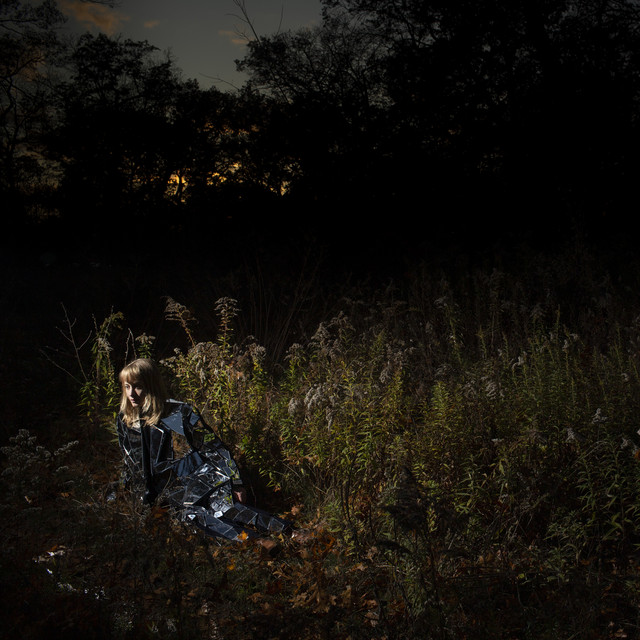 Ignorance, the fifth and best album by The Weather Station, is the kind of album that arrives in the middle of an artist’s discography and marks a clear, penetrating break with everything that came before it. Think The Dreaming, or Kaputt: abrupt stylistic leaps that subvert and explode whatever category the artist previously seemed to occupy. In The Weather Station’s case, that category was folk music. For more than a decade, the Canadian band—led by singer and former child actor Tamara Lindeman—specialized in delicate indie-folk, rooted in fingerpicked guitars and light, rustling percussion. 2015’s Loyalty and 2017’s self-titled follow-up enlarged the band’s sonic range and empathetic lyrics, but still operated within the folk tradition. Ignorance is a departure. More specifically, this album is a stunningly assured plunge into a sleek, buzzing jazz-pop wilderness. Lindeman’s guiding impulse here is rhythm: interlocking polyrhythms (“Robber”), hi-hats that rattle and hiss like gently persistent metronomes (“Wear,” “Separated”), even some outright four-on-the-floor beats, which spring to life on the sparkly disco-pop of “Parking Lot” and “Heart.” And on “Atlantic,” she’s more expressive than ever, fitting a world of pathos and awe into the way she utters the mere words “My god.” The song describes the feeling of marveling at natural beauty and yet being unable to let go of dread, unable to dismiss grim thoughts of what humans have done or will do to all that beauty. —Zach Schonfeld
Ignorance, the fifth and best album by The Weather Station, is the kind of album that arrives in the middle of an artist’s discography and marks a clear, penetrating break with everything that came before it. Think The Dreaming, or Kaputt: abrupt stylistic leaps that subvert and explode whatever category the artist previously seemed to occupy. In The Weather Station’s case, that category was folk music. For more than a decade, the Canadian band—led by singer and former child actor Tamara Lindeman—specialized in delicate indie-folk, rooted in fingerpicked guitars and light, rustling percussion. 2015’s Loyalty and 2017’s self-titled follow-up enlarged the band’s sonic range and empathetic lyrics, but still operated within the folk tradition. Ignorance is a departure. More specifically, this album is a stunningly assured plunge into a sleek, buzzing jazz-pop wilderness. Lindeman’s guiding impulse here is rhythm: interlocking polyrhythms (“Robber”), hi-hats that rattle and hiss like gently persistent metronomes (“Wear,” “Separated”), even some outright four-on-the-floor beats, which spring to life on the sparkly disco-pop of “Parking Lot” and “Heart.” And on “Atlantic,” she’s more expressive than ever, fitting a world of pathos and awe into the way she utters the mere words “My god.” The song describes the feeling of marveling at natural beauty and yet being unable to let go of dread, unable to dismiss grim thoughts of what humans have done or will do to all that beauty. —Zach Schonfeld
43. Ethel Cain: Preacher’s Daughter (2022)
 Ethel Cain is on a brilliant ascent. 2021’s Inbred EP solidified her position as a force to be witnessed in American music as she wrestled with the uniquely Southern version of the American dream that shaped her young life. The divinity of gospel, the audacity of heartland rock and the frankness of 2010s Tumblr-era pop collide into an arresting narrative spectacle, portraying the experience of a woman who is intimately familiar with depraved violence, the gospel and the strict social hierarchies of the South and the Plains. The EPs have only revealed a portion of Cain’s lore, but on her whopping 75-minute debut LP Preacher’s Daughter, Ethel Cain, the narrative figure and the musical sensation, manifests a breathtaking account of a woman, her mysterious partner and her troubled family. Much as Inbred mangled Americana, ambient folk and slowcore into a terrifying sonic experiment, Preacher’s Daughter is a sound all its own. Imagine what would happen if singers as familiar as Bruce Springsteen or Nichole Nordeman were backed by Midwife or Sunn O))). The glamorous and aphrodisiac sound of Lana Del Rey is undoubtedly there, but the thematic and instrumental elements on Preacher’s Daughter possess a weightiness and impulse away from ironic glamorization of the American dream and toward outright criticism that render the comparison only so relevant. At times the record throbs with a noisy, immersive intensity before transitioning into the kind of epic guitar solos that decorated the cult of rock personalities in generations past. This collision of dark ambient and Def Leppard is uniquely American in the best way conceivable. —Devon Chodzin
Ethel Cain is on a brilliant ascent. 2021’s Inbred EP solidified her position as a force to be witnessed in American music as she wrestled with the uniquely Southern version of the American dream that shaped her young life. The divinity of gospel, the audacity of heartland rock and the frankness of 2010s Tumblr-era pop collide into an arresting narrative spectacle, portraying the experience of a woman who is intimately familiar with depraved violence, the gospel and the strict social hierarchies of the South and the Plains. The EPs have only revealed a portion of Cain’s lore, but on her whopping 75-minute debut LP Preacher’s Daughter, Ethel Cain, the narrative figure and the musical sensation, manifests a breathtaking account of a woman, her mysterious partner and her troubled family. Much as Inbred mangled Americana, ambient folk and slowcore into a terrifying sonic experiment, Preacher’s Daughter is a sound all its own. Imagine what would happen if singers as familiar as Bruce Springsteen or Nichole Nordeman were backed by Midwife or Sunn O))). The glamorous and aphrodisiac sound of Lana Del Rey is undoubtedly there, but the thematic and instrumental elements on Preacher’s Daughter possess a weightiness and impulse away from ironic glamorization of the American dream and toward outright criticism that render the comparison only so relevant. At times the record throbs with a noisy, immersive intensity before transitioning into the kind of epic guitar solos that decorated the cult of rock personalities in generations past. This collision of dark ambient and Def Leppard is uniquely American in the best way conceivable. —Devon Chodzin
42. Nourished by Time: Erotic Probiotic 2 (2023)
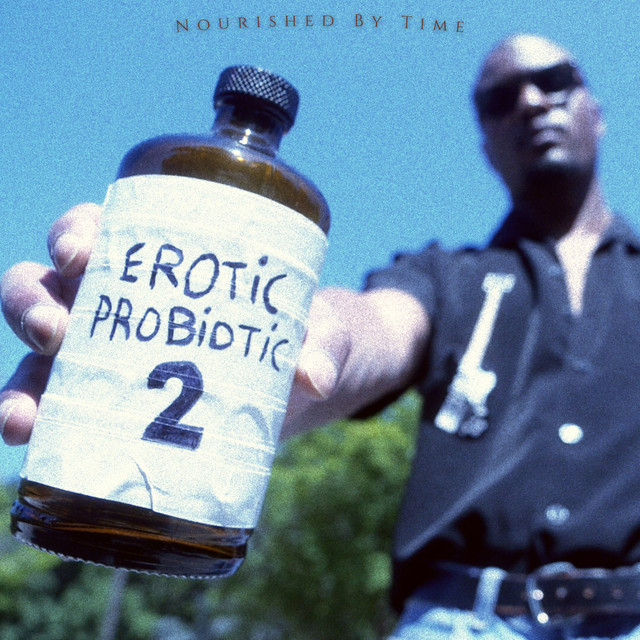 Describing anything as “DIY”—or, God forbid, “bedroom pop”—can conjure the sound of music made minimal by necessity, with its charm derived from its limitations. Though his full-length debut under the moniker Nourished By Time was entirely made in his parents’ basement in Baltimore, Marcus Brown’s blend of ‘90s R&B and ‘80s freestyle is so impressive because it appears to have arrived fully formed. For such a bare-bones operation, its fruits overwhelm. Planting himself at the midpoint between SWV and The Blue Nile, between heartbreak and life under late-stage capitalism, between dance floor bangers and deeply-felt pleas for understanding, Brown threads all of it together to create an idiosyncratic, well-crafted collection of songs that can’t help but attach themselves to you. The melancholic guitar fog of opener “Quantum Suicide” runs perfectly into the synth-driven bounce of “Shed That Fear” and “Daddy.” By the time he’s wringing your heart out with lines like “My prayer is for our clouds to collide / But I have to face the possibility that I’m wasting my time”—delivered in lush harmonic layers on “Rain Water Promise”—you’re ready to pivot with him wherever he aims Nourished By Time’s arrow next. Loving and losing are eternal themes for a reason, but in his isolation, Brown repurposes them into something strikingly original and frequently gorgeous. —Elise Soutar
Describing anything as “DIY”—or, God forbid, “bedroom pop”—can conjure the sound of music made minimal by necessity, with its charm derived from its limitations. Though his full-length debut under the moniker Nourished By Time was entirely made in his parents’ basement in Baltimore, Marcus Brown’s blend of ‘90s R&B and ‘80s freestyle is so impressive because it appears to have arrived fully formed. For such a bare-bones operation, its fruits overwhelm. Planting himself at the midpoint between SWV and The Blue Nile, between heartbreak and life under late-stage capitalism, between dance floor bangers and deeply-felt pleas for understanding, Brown threads all of it together to create an idiosyncratic, well-crafted collection of songs that can’t help but attach themselves to you. The melancholic guitar fog of opener “Quantum Suicide” runs perfectly into the synth-driven bounce of “Shed That Fear” and “Daddy.” By the time he’s wringing your heart out with lines like “My prayer is for our clouds to collide / But I have to face the possibility that I’m wasting my time”—delivered in lush harmonic layers on “Rain Water Promise”—you’re ready to pivot with him wherever he aims Nourished By Time’s arrow next. Loving and losing are eternal themes for a reason, but in his isolation, Brown repurposes them into something strikingly original and frequently gorgeous. —Elise Soutar
41. Hurray for the Riff Raff: The Past is Still Alive (2024)
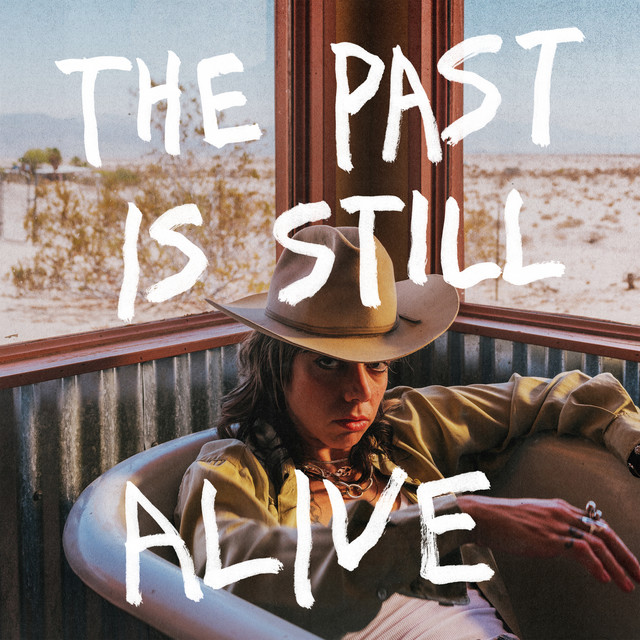 The Past Is Still Alive returns to the folk sounds of Hurray for the Riff Raff’s earliest work, with an electric rock current and a focus on solidarity among the oppressed—as well as a community around Alynda Segarra that includes Meg Duffy, Anjimile, SG Goodman, Phil and Brad Cook and Conor Oberst. The album opens with “Alibi,” rooted in love and defiance and addressed to an addict. Segarra has often explored the complicated rites of loving, particularly loving those on the edge, and on “Alibi” they pair this with a reminder of the need to take care of yourself. Kind but firm, it seems a direct response to the casual drug use and self-destruction of The Navigator’s “Living in the City”: “You don’t have to die if you don’t want to die.” The Navigator painted addiction as a kind of symbol, a symptom of city suffocation that its leading character Navita had to escape. A few years out and stripped of the veneer of a concept album, The Past Is Still Alive confronts it directly, and focuses on finding an answer. This is a theme that runs through The Past Is Still Alive—feeling doomed, but finding the will to keep going anyway. Segarra has confessed to fearing their lived experiences were too much for the music industry, too real to take center stage in their work, but on this album, they buck those fears with radical honesty. What’s particularly striking is the lightness Segarra delivers desperate lines with. In their hands, the trauma of the present day is a prelude to the possibilities of a better tomorrow. —Annie Parnell
The Past Is Still Alive returns to the folk sounds of Hurray for the Riff Raff’s earliest work, with an electric rock current and a focus on solidarity among the oppressed—as well as a community around Alynda Segarra that includes Meg Duffy, Anjimile, SG Goodman, Phil and Brad Cook and Conor Oberst. The album opens with “Alibi,” rooted in love and defiance and addressed to an addict. Segarra has often explored the complicated rites of loving, particularly loving those on the edge, and on “Alibi” they pair this with a reminder of the need to take care of yourself. Kind but firm, it seems a direct response to the casual drug use and self-destruction of The Navigator’s “Living in the City”: “You don’t have to die if you don’t want to die.” The Navigator painted addiction as a kind of symbol, a symptom of city suffocation that its leading character Navita had to escape. A few years out and stripped of the veneer of a concept album, The Past Is Still Alive confronts it directly, and focuses on finding an answer. This is a theme that runs through The Past Is Still Alive—feeling doomed, but finding the will to keep going anyway. Segarra has confessed to fearing their lived experiences were too much for the music industry, too real to take center stage in their work, but on this album, they buck those fears with radical honesty. What’s particularly striking is the lightness Segarra delivers desperate lines with. In their hands, the trauma of the present day is a prelude to the possibilities of a better tomorrow. —Annie Parnell
40. Yves Tumor: Heaven to a Tortured Mind (2020)
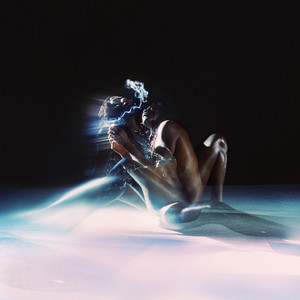 Yves Tumor’s Heaven to a Tortured Mind opens with Sean Bowie shouting, “I think I can solve it / I can be your all.” Later, on “Medicine Burn,” they claim “I can’t lift my own troubles,” then shout a reversal on single “Kerosene!”: “I can be anything / tell me what you need.” Heaven to a Tortured Mind is emphatically about what Tumor can and can’t do, because what else are pop anthems about? “Creep” is about how Radiohead are incapable of fitting in with mainstream society, while “I Will Always Love You” is a declaration of Whitney Houston’s enduring love amid crisis. Yves Tumor have long skirted the line between pop candor and experimental psychedelia, often landing somewhere far away from both in a wonderland of threatening, dagger-sharp guitar riffs and gossamer vocal production. In many ways, 2018’s Safe in the Hands of Love was Tumor’s official rockstar moment. Listening to Heaven to a Tortured Mind will make you question your own memories of the singer, because they’ve never sounded more immediate, more relatable or more desirously messy. —Austin Jones
Yves Tumor’s Heaven to a Tortured Mind opens with Sean Bowie shouting, “I think I can solve it / I can be your all.” Later, on “Medicine Burn,” they claim “I can’t lift my own troubles,” then shout a reversal on single “Kerosene!”: “I can be anything / tell me what you need.” Heaven to a Tortured Mind is emphatically about what Tumor can and can’t do, because what else are pop anthems about? “Creep” is about how Radiohead are incapable of fitting in with mainstream society, while “I Will Always Love You” is a declaration of Whitney Houston’s enduring love amid crisis. Yves Tumor have long skirted the line between pop candor and experimental psychedelia, often landing somewhere far away from both in a wonderland of threatening, dagger-sharp guitar riffs and gossamer vocal production. In many ways, 2018’s Safe in the Hands of Love was Tumor’s official rockstar moment. Listening to Heaven to a Tortured Mind will make you question your own memories of the singer, because they’ve never sounded more immediate, more relatable or more desirously messy. —Austin Jones
39. Alex G: God Save the Animals (2022)
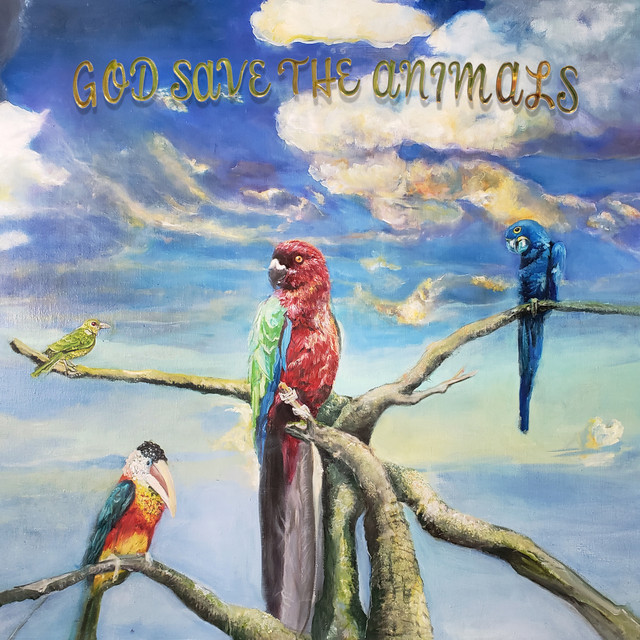 Alex G’s work can feel impossible to categorize. When we try to put a label on what he’s doing, those labels feel insufficient. Sure, Rocket is the “folk” record, and House of Sugar is “electronic”—neither tag is inaccurate, but they each come with an asterisk. In truth, Alex G’s brand of indie rock is a mix of several facets that he contorts on a whim. Sometimes he may put a heavier focus on twangy guitars and string arrangements, other times doubling down on his drum machines and vocal manipulation. The result is always different, but the method remains mostly the same. His latest record, God Save the Animals, falls somewhere in between the sonic palettes of its two predecessors, most reminiscent of 2015’s steady-handed Beach Music. While moments on Animals nod at Elliott Smith’s yearning indie rock and others bring to mind Aphex Twin’s uncomfortable, twisted soundscapes, it never skews too far in any one direction. What is new this time around is an explicit appreciation for the substance of, and creative process behind, pop music. —Eric Bennett
Alex G’s work can feel impossible to categorize. When we try to put a label on what he’s doing, those labels feel insufficient. Sure, Rocket is the “folk” record, and House of Sugar is “electronic”—neither tag is inaccurate, but they each come with an asterisk. In truth, Alex G’s brand of indie rock is a mix of several facets that he contorts on a whim. Sometimes he may put a heavier focus on twangy guitars and string arrangements, other times doubling down on his drum machines and vocal manipulation. The result is always different, but the method remains mostly the same. His latest record, God Save the Animals, falls somewhere in between the sonic palettes of its two predecessors, most reminiscent of 2015’s steady-handed Beach Music. While moments on Animals nod at Elliott Smith’s yearning indie rock and others bring to mind Aphex Twin’s uncomfortable, twisted soundscapes, it never skews too far in any one direction. What is new this time around is an explicit appreciation for the substance of, and creative process behind, pop music. —Eric Bennett
38. Jeff Rosenstock: NO DREAM (2020)
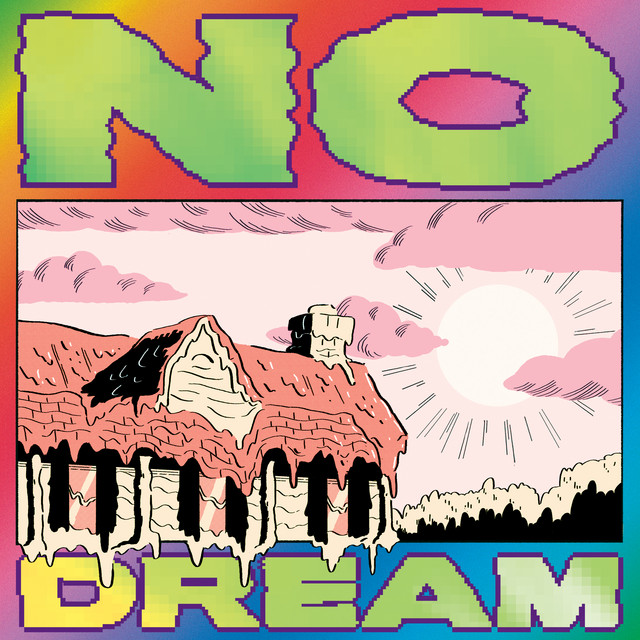 Jeff Rosenstock, America’s favorite punk-rock everyman and the patron saint of modern DIY culture, finished NO DREAM “like a week before freakin’ lockdown started happening”—and thank God he did, because if ever an album was meant to keep you sane in the midst of a societal crisis, NO DREAM would be one. Rosenstock has always had an uncanny knack for writing about evergreen concerns in such a way that they feel immediate and present regardless of the time of listening. Despite being written before COVID-19 even struck, the first verse of the album’s title track feels like a microcosm of the quarantine era: “They were picking up the bodies on TV / When I caught a reflection of you and me / Staring back at us while frozen on the screen / Crank the white noise and pretend / That we’re asleep.” In the furious, fast-paced “Scram!” Rosenstock yells the question “Don’t you want to go away?” over and over again, managing to viscerally capture the manic claustrophobia of lockdown months before that future even became a reality. In a year devoid of energy, characterized by monotony and isolation, the unrelenting fervor and urgent ferocity of NO DREAM provided a much-needed outlet. It served as a reminder that anger is part of, rather than mutually exclusive with, our attempts to “forge a path towards existing comfortably / In a total nightmare,” as Rosenstock puts it in album opener “NO TIME.” The record is sheer catharsis, marrying frustrations of the mundane (impulse purchases, the gig economy) with the existential (see “f a m e,” which confronts life and death itself). But scattered throughout the album are these beats of tenderness, and they catapult NO DREAM into something beyond pure fury, something weightier and more sustaining: the world is ending, we live in a capitalist hellscape, and I still love you, and let’s go to the beach on Monday. We’re allowed to be angry—hell, we should be angry—but we’re allowed to live too. —Casey Epstein-Gross
Jeff Rosenstock, America’s favorite punk-rock everyman and the patron saint of modern DIY culture, finished NO DREAM “like a week before freakin’ lockdown started happening”—and thank God he did, because if ever an album was meant to keep you sane in the midst of a societal crisis, NO DREAM would be one. Rosenstock has always had an uncanny knack for writing about evergreen concerns in such a way that they feel immediate and present regardless of the time of listening. Despite being written before COVID-19 even struck, the first verse of the album’s title track feels like a microcosm of the quarantine era: “They were picking up the bodies on TV / When I caught a reflection of you and me / Staring back at us while frozen on the screen / Crank the white noise and pretend / That we’re asleep.” In the furious, fast-paced “Scram!” Rosenstock yells the question “Don’t you want to go away?” over and over again, managing to viscerally capture the manic claustrophobia of lockdown months before that future even became a reality. In a year devoid of energy, characterized by monotony and isolation, the unrelenting fervor and urgent ferocity of NO DREAM provided a much-needed outlet. It served as a reminder that anger is part of, rather than mutually exclusive with, our attempts to “forge a path towards existing comfortably / In a total nightmare,” as Rosenstock puts it in album opener “NO TIME.” The record is sheer catharsis, marrying frustrations of the mundane (impulse purchases, the gig economy) with the existential (see “f a m e,” which confronts life and death itself). But scattered throughout the album are these beats of tenderness, and they catapult NO DREAM into something beyond pure fury, something weightier and more sustaining: the world is ending, we live in a capitalist hellscape, and I still love you, and let’s go to the beach on Monday. We’re allowed to be angry—hell, we should be angry—but we’re allowed to live too. —Casey Epstein-Gross
37. Lankum: False Lankum (2023)
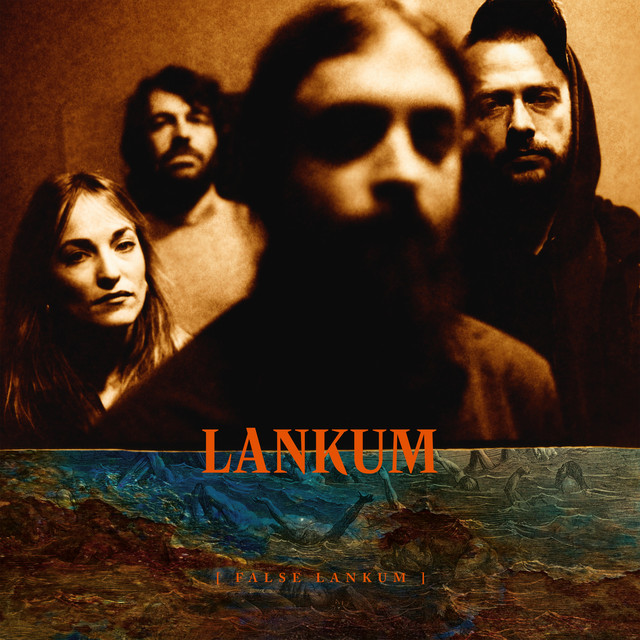 The Mercury Prize short-listed False Lankum—the fourth studio album from Dublin experimental folk group Lankum—is nearly pitch-black both thematically and sonically, filled with tales of suicides, murderous ship captains, mothers poisoning their sons and more. Most of the tracks are traditional songs from Ireland and beyond, reimagined through the group’s prismatic, swirling, droning sound. Opener “Go Dig My Grave” comes from a family of similar songs, including Robert Johnson’s 17th century ballad “A Forlorn Lover’s Complaint.” Singer Radie Peat (who also plays harmonium, concertina, bayan, harp, Hammond organ and percussion on the record) recounts in her wavering, haunted voice the story of a young woman who kills herself after being jilted by her lover, before Lankum descend into a rendition of “Big Black Cat,” replete with high-pitched squealing and unsettling, shrill strings straight out of a horror movie. Despite the overwhelming macabre of much of the album, Lankum’s reinterpretation of these songs speaks to a universal human truth: we’ve suffered in the past, we’ll likely suffer in the future, but sharing our pain with other relieves the burden, if only for as long as Lankum’s hypnotic music echoes in our ears. —Clare Martin
The Mercury Prize short-listed False Lankum—the fourth studio album from Dublin experimental folk group Lankum—is nearly pitch-black both thematically and sonically, filled with tales of suicides, murderous ship captains, mothers poisoning their sons and more. Most of the tracks are traditional songs from Ireland and beyond, reimagined through the group’s prismatic, swirling, droning sound. Opener “Go Dig My Grave” comes from a family of similar songs, including Robert Johnson’s 17th century ballad “A Forlorn Lover’s Complaint.” Singer Radie Peat (who also plays harmonium, concertina, bayan, harp, Hammond organ and percussion on the record) recounts in her wavering, haunted voice the story of a young woman who kills herself after being jilted by her lover, before Lankum descend into a rendition of “Big Black Cat,” replete with high-pitched squealing and unsettling, shrill strings straight out of a horror movie. Despite the overwhelming macabre of much of the album, Lankum’s reinterpretation of these songs speaks to a universal human truth: we’ve suffered in the past, we’ll likely suffer in the future, but sharing our pain with other relieves the burden, if only for as long as Lankum’s hypnotic music echoes in our ears. —Clare Martin
36. Perfume Genius: Set My Heart on Fire Immediately (2020)
 Set My Heart on Fire ImmediatelyPerfume Genius is best known for centering his queerness in his experimental pop, but Mike Hadreas has also long explored how our bodies betray us. On 2014’s name-making Too Bright, his body was a “rotted peach,” and even the iconic, out-and-Capital-P-Proud protagonist of breakout single “Queen” was “cracked, peeling, riddled with disease.” (Hadreas has been vocal about his struggle with Crohn’s disease.) On 2017’s career-best Too Bright follow-up No Shape, he sang about death not as a feared end, but as liberation from our fragile, unreliable biological shells. When Hadreas took up modern dance in 2019, it seemed like a deliberate step to reclaim his body: To turn your movements into art is the polar opposite of feeling “rank, ragged, skin sewn on sheets.” His effort to overcome the body-brain gulf is more apparent than ever throughout No Shape‘s follow-up Set My Heart on Fire Immediately, on which Hadreas loses control of not just his body, but his heart. As ever, his voice and music contort and warp in tandem with his anatomy. —Max Freedman
Set My Heart on Fire ImmediatelyPerfume Genius is best known for centering his queerness in his experimental pop, but Mike Hadreas has also long explored how our bodies betray us. On 2014’s name-making Too Bright, his body was a “rotted peach,” and even the iconic, out-and-Capital-P-Proud protagonist of breakout single “Queen” was “cracked, peeling, riddled with disease.” (Hadreas has been vocal about his struggle with Crohn’s disease.) On 2017’s career-best Too Bright follow-up No Shape, he sang about death not as a feared end, but as liberation from our fragile, unreliable biological shells. When Hadreas took up modern dance in 2019, it seemed like a deliberate step to reclaim his body: To turn your movements into art is the polar opposite of feeling “rank, ragged, skin sewn on sheets.” His effort to overcome the body-brain gulf is more apparent than ever throughout No Shape‘s follow-up Set My Heart on Fire Immediately, on which Hadreas loses control of not just his body, but his heart. As ever, his voice and music contort and warp in tandem with his anatomy. —Max Freedman
35. Grace Ives: Janky Star (2022)
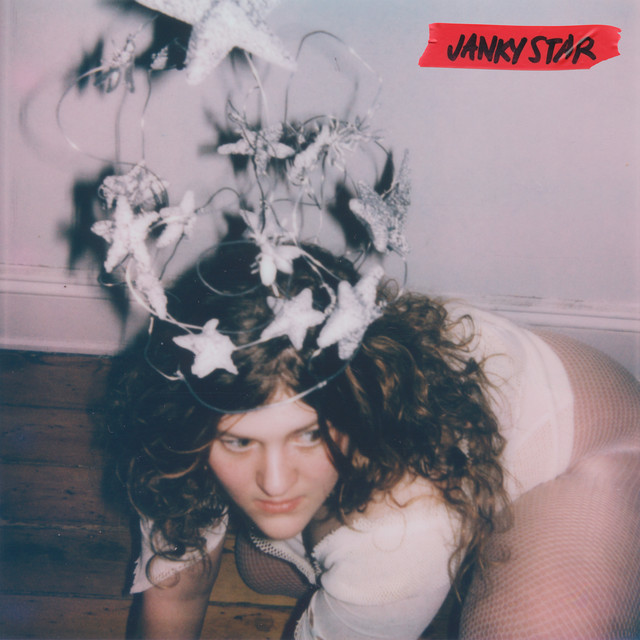 Grace Ives comes up for air on Janky Star, Janky Star. The queen of charmingly claustrophobic beats, some of the angular synths, and punchy percussion from 2019’s 2nd resurface in her singles. However, she pairs this ear candy with pensive gaps that give her a chance to catch her breath. While she’s ornate as ever on tracks like “Loose,” other tracks like “Lullaby” are mellow in comparison as her vocals melt into a shimmering laze of electro-pop. The themes Ives touches on are as complex as her compositions, as she discusses sobriety, overdoses, escapism, attempting to slow down, and trying to find solid ground in a world that never stops spinning. —Samantha Sullivan
Grace Ives comes up for air on Janky Star, Janky Star. The queen of charmingly claustrophobic beats, some of the angular synths, and punchy percussion from 2019’s 2nd resurface in her singles. However, she pairs this ear candy with pensive gaps that give her a chance to catch her breath. While she’s ornate as ever on tracks like “Loose,” other tracks like “Lullaby” are mellow in comparison as her vocals melt into a shimmering laze of electro-pop. The themes Ives touches on are as complex as her compositions, as she discusses sobriety, overdoses, escapism, attempting to slow down, and trying to find solid ground in a world that never stops spinning. —Samantha Sullivan
34. Parannoul: To See the Next Part of the Dream (2021)
 The guitars on Parannoul’s 2021 debut LP, To See the Next Part of the Dream, are so dense, so lush and so transfixing that you’d never guess it’s all just MIDI. The anonymous Seoul artist, who has since become one of the lodestars of shoegaze’s 2020s boom, welds layers upon layers of MIDI instruments to create digital walls of sound that rival the volume levels and splendor of their analog analogues. The word-of-mouth buzz surrounding the once-Bandcamp-exclusive Part of the Dream made them a DIY superstar, eventually leading to Best New Music designations and placements on best-of lists like this one. It’s a precursor to emo’s fifth wave, to the new wave of shoegaze and likely the many other waves of the decade to come. On their blown-out, epic and instantly memorable first album, Parannoul doesn’t just see the next part of the dream. They realize it. —Grant Sharples
The guitars on Parannoul’s 2021 debut LP, To See the Next Part of the Dream, are so dense, so lush and so transfixing that you’d never guess it’s all just MIDI. The anonymous Seoul artist, who has since become one of the lodestars of shoegaze’s 2020s boom, welds layers upon layers of MIDI instruments to create digital walls of sound that rival the volume levels and splendor of their analog analogues. The word-of-mouth buzz surrounding the once-Bandcamp-exclusive Part of the Dream made them a DIY superstar, eventually leading to Best New Music designations and placements on best-of lists like this one. It’s a precursor to emo’s fifth wave, to the new wave of shoegaze and likely the many other waves of the decade to come. On their blown-out, epic and instantly memorable first album, Parannoul doesn’t just see the next part of the dream. They realize it. —Grant Sharples
33. The War on Drugs: I Don’t Live Here Anymore (2021)
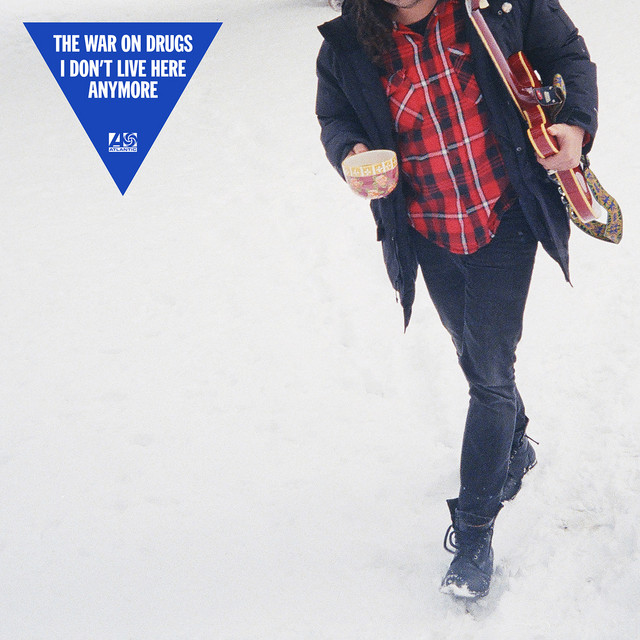 I Don’t Live Here Anymore, The War on Drugs had a decision to make at the metaphorical fork in the road: Would they continue down the path of being a successful—albeit predictable—guitar band, or take a risk and produce work outside of their wheelhouse? Somehow, the answer turned out to be both. Like Wagonwheel Blues before it, the bones of I Don’t Live Here Anymore are strong and sturdy, but its execution is more nuanced, more daring, more personal. Adam Granduciel has always sung as if his lips were pressed to someone’s ear and that intimacy remains intact, particularly in the album’s most vulnerable moments. The tenderness on opener and lead single “Living Proof” is wrapped in lush piano chords and simple lyricism about feeling foreign to a place you once called home. But the most thrilling parts of the LP are in the center, the space where The War on Drugs feel free enough to deviate from the expectations that made them mainstream darlings. Over the past 15 years—and with each project—The War on Drugs have continuously grown into fuller and more realized versions of themselves. I Don’t Live Here Anymore is fitting for their newest form: revered musicians with over a decade of quality music under their belts who never lost sight of the prize. —Candace McDuffie
I Don’t Live Here Anymore, The War on Drugs had a decision to make at the metaphorical fork in the road: Would they continue down the path of being a successful—albeit predictable—guitar band, or take a risk and produce work outside of their wheelhouse? Somehow, the answer turned out to be both. Like Wagonwheel Blues before it, the bones of I Don’t Live Here Anymore are strong and sturdy, but its execution is more nuanced, more daring, more personal. Adam Granduciel has always sung as if his lips were pressed to someone’s ear and that intimacy remains intact, particularly in the album’s most vulnerable moments. The tenderness on opener and lead single “Living Proof” is wrapped in lush piano chords and simple lyricism about feeling foreign to a place you once called home. But the most thrilling parts of the LP are in the center, the space where The War on Drugs feel free enough to deviate from the expectations that made them mainstream darlings. Over the past 15 years—and with each project—The War on Drugs have continuously grown into fuller and more realized versions of themselves. I Don’t Live Here Anymore is fitting for their newest form: revered musicians with over a decade of quality music under their belts who never lost sight of the prize. —Candace McDuffie
32. Kara Jackson: Why Does the Earth Give Us People to Love? (2023)
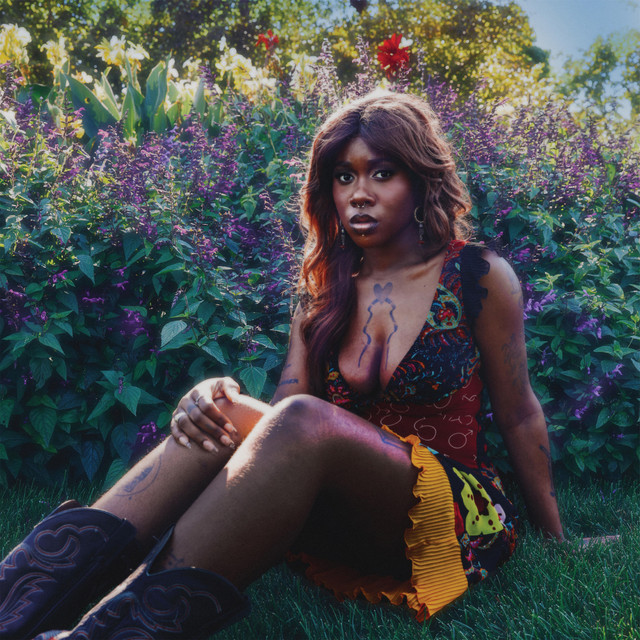 What the Chicago-based interdisciplinary writer and musician Kara Jackson accomplishes on her debut LP Why Does The Earth Give Us People To Love is not “raw,” at least not in the sense that the writing is unrefined or off-the-cuff. Instead, that distinction comes through how the listener is made to feel listening to Jackson’s cosmic country jams. Lines like “Some people take lives to be recognized” are delivered with nonchalance, and the way she belts “don’t you bother me” over swirling harp notes elicits chills. Jackson is communicating her message with precise orchestration for optimal impact. As a listener, you may feel exposed, maybe even singled out. Jackson starts the album with “recognized,” a lo-fi exercise contemplating what people do for validation and why. As she and her piano arpeggiate, she raises the stakes. It contrasts with the lush “no fun/party,” where her theatrical voice balances with a racing guitar and reclining strings. She reckons with men who won’t rise to the occasion and take that out on her and, as much as she laments the loss of companionship, she remembers that the other person is just as liable to miss her, too. Across the album, Jackson’s expert guitar work and lyricism reveals an extensive archive of her relationships with peers, partners and more who she’s entrusted with her love. Many of those people are men who’ve mishandled that love. When Jackson is solo, she is a force. With her friends’ help, the result is divine. —Devon Chodzin
What the Chicago-based interdisciplinary writer and musician Kara Jackson accomplishes on her debut LP Why Does The Earth Give Us People To Love is not “raw,” at least not in the sense that the writing is unrefined or off-the-cuff. Instead, that distinction comes through how the listener is made to feel listening to Jackson’s cosmic country jams. Lines like “Some people take lives to be recognized” are delivered with nonchalance, and the way she belts “don’t you bother me” over swirling harp notes elicits chills. Jackson is communicating her message with precise orchestration for optimal impact. As a listener, you may feel exposed, maybe even singled out. Jackson starts the album with “recognized,” a lo-fi exercise contemplating what people do for validation and why. As she and her piano arpeggiate, she raises the stakes. It contrasts with the lush “no fun/party,” where her theatrical voice balances with a racing guitar and reclining strings. She reckons with men who won’t rise to the occasion and take that out on her and, as much as she laments the loss of companionship, she remembers that the other person is just as liable to miss her, too. Across the album, Jackson’s expert guitar work and lyricism reveals an extensive archive of her relationships with peers, partners and more who she’s entrusted with her love. Many of those people are men who’ve mishandled that love. When Jackson is solo, she is a force. With her friends’ help, the result is divine. —Devon Chodzin
31. Cut Worms: Nobody Lives Here Anymore (2020)
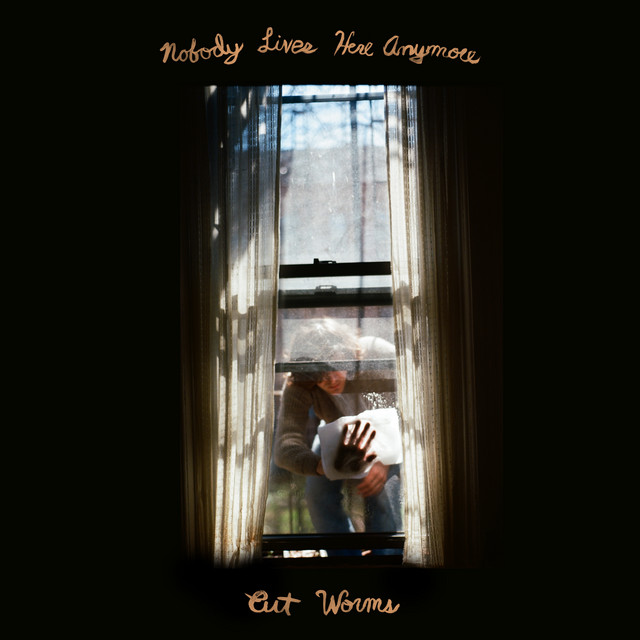 In October 2020, Max Clarke dropped an exceptional double-album that never, not even for a second, lingers in itself too long. The second Cut Worms record revels in a lineage of pop-rock phenomena, ushering the sounds of yesteryear into a modern vessel and oozing enough warmth and ingenuity to justify 80 minutes of ambition. Some of the decade’s best songs live on this album, especially “The Heat is On,” “Veteran’s Day,” “A Love So Fine,” “Castle in the Clouds” and “Last Words to a Refugee.” The mythical, six-minute singalong incantation of “Sold My Soul” is still going Platinum in my home, and Clarke’s recording of the project in the heart of Memphis only bolsters how likable every second it is. In an ear where few double-albums truly move the needle, Clarke’s approach to Cut Worms—this beautiful desire to conjure Sun Records, the Beatles, Merseybeat and American Bandstand color—is a profound, sentimental token of multi-generational interpretation done right. —Matt Mitchell
In October 2020, Max Clarke dropped an exceptional double-album that never, not even for a second, lingers in itself too long. The second Cut Worms record revels in a lineage of pop-rock phenomena, ushering the sounds of yesteryear into a modern vessel and oozing enough warmth and ingenuity to justify 80 minutes of ambition. Some of the decade’s best songs live on this album, especially “The Heat is On,” “Veteran’s Day,” “A Love So Fine,” “Castle in the Clouds” and “Last Words to a Refugee.” The mythical, six-minute singalong incantation of “Sold My Soul” is still going Platinum in my home, and Clarke’s recording of the project in the heart of Memphis only bolsters how likable every second it is. In an ear where few double-albums truly move the needle, Clarke’s approach to Cut Worms—this beautiful desire to conjure Sun Records, the Beatles, Merseybeat and American Bandstand color—is a profound, sentimental token of multi-generational interpretation done right. —Matt Mitchell
30. Gil Scott-Heron & Makaya McCraven: We’re New Again – A Reimagining by Makaya McCraven (2020)
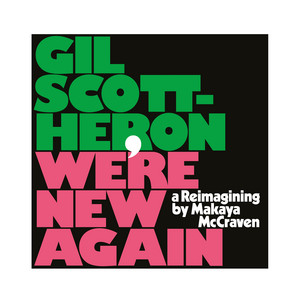 The first “new” album I remember listening to during the early days of lockdown in 2020 was We’re New Again, Makaya McCraven’s reimagining of Gil Scott-Heron’s I’m New Here, the final record Scott-Heron put out before his death in 2011. The vocalist and pianist wrote and recorded I’m New Here after an intense, 16-year hiatus plagued by legal troubles and drug addiction. 10 years later, the Chicago drummer and producer McCraven teamed up with Jeff Parker, Brandee Younger, Junius Paul and Ben Lamar Gay to recontextualize Scott-Heron’s swan song into a concerto of spiritual jazz and dirty blues. It’s a puzzle comprising a century of Black sounds, funnelled into the background that throbs and waltzes behind Scott-Heron’s weathered vocal. “No matter how far gone you’ve gone, it can always turn around,” he sings on the definitive “I’m New Here,” as McCraven’s snare blisters into the present. The three-part “Broken Home” sequence is among the most devastating and dysfunctional attempts in this century’s shape of jazz, while “New York is Killing Me” is loud, alive and powerful. “Need to be back home,” Scott-Heron laments. In the context of McCraven’s ensemble, it sounds like he finally made his return. —Matt Mitchell
The first “new” album I remember listening to during the early days of lockdown in 2020 was We’re New Again, Makaya McCraven’s reimagining of Gil Scott-Heron’s I’m New Here, the final record Scott-Heron put out before his death in 2011. The vocalist and pianist wrote and recorded I’m New Here after an intense, 16-year hiatus plagued by legal troubles and drug addiction. 10 years later, the Chicago drummer and producer McCraven teamed up with Jeff Parker, Brandee Younger, Junius Paul and Ben Lamar Gay to recontextualize Scott-Heron’s swan song into a concerto of spiritual jazz and dirty blues. It’s a puzzle comprising a century of Black sounds, funnelled into the background that throbs and waltzes behind Scott-Heron’s weathered vocal. “No matter how far gone you’ve gone, it can always turn around,” he sings on the definitive “I’m New Here,” as McCraven’s snare blisters into the present. The three-part “Broken Home” sequence is among the most devastating and dysfunctional attempts in this century’s shape of jazz, while “New York is Killing Me” is loud, alive and powerful. “Need to be back home,” Scott-Heron laments. In the context of McCraven’s ensemble, it sounds like he finally made his return. —Matt Mitchell
29. Tyler, The Creator: CALL ME IF YOU GET LOST (2021)
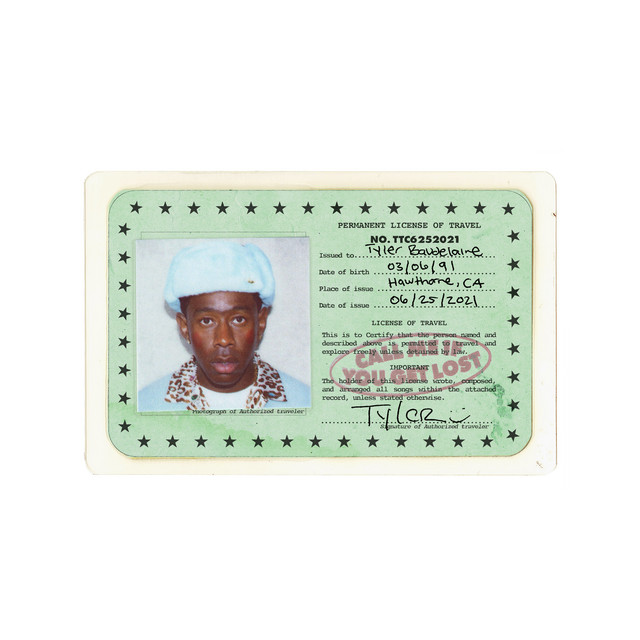 Call Me If You Get Lost doesn’t strike the same emotional resonances as Tyler, The Creator’s previous two LPs, but it isn’t meant to. When that piano and brass section pulsates behind Tyler on “RUNITUP,” you might think of the lingering horror orchestras that engulfed Wolf. Or when his vocal delivery on “LEMONHEAD” rushes and thrashes, you’re transported back to listening to a kid figuring himself out on Goblin. That’s the crowning achievement of this record—the way it sharply reminds every listener that the early entries in an artist’s discography are not parts of their past meant to be forgotten. For Tyler, the recklessness of his 20s did not leave him among the ruins of early-2010s hip-hop, but rather has helped make him a 30-year-old with a multi-million-dollar confidence and a Rolls Royce collection to flaunt—in an industry praying just to catch up. —Matt Mitchell
Call Me If You Get Lost doesn’t strike the same emotional resonances as Tyler, The Creator’s previous two LPs, but it isn’t meant to. When that piano and brass section pulsates behind Tyler on “RUNITUP,” you might think of the lingering horror orchestras that engulfed Wolf. Or when his vocal delivery on “LEMONHEAD” rushes and thrashes, you’re transported back to listening to a kid figuring himself out on Goblin. That’s the crowning achievement of this record—the way it sharply reminds every listener that the early entries in an artist’s discography are not parts of their past meant to be forgotten. For Tyler, the recklessness of his 20s did not leave him among the ruins of early-2010s hip-hop, but rather has helped make him a 30-year-old with a multi-million-dollar confidence and a Rolls Royce collection to flaunt—in an industry praying just to catch up. —Matt Mitchell
28. Sufjan Stevens: Javelin (2023)
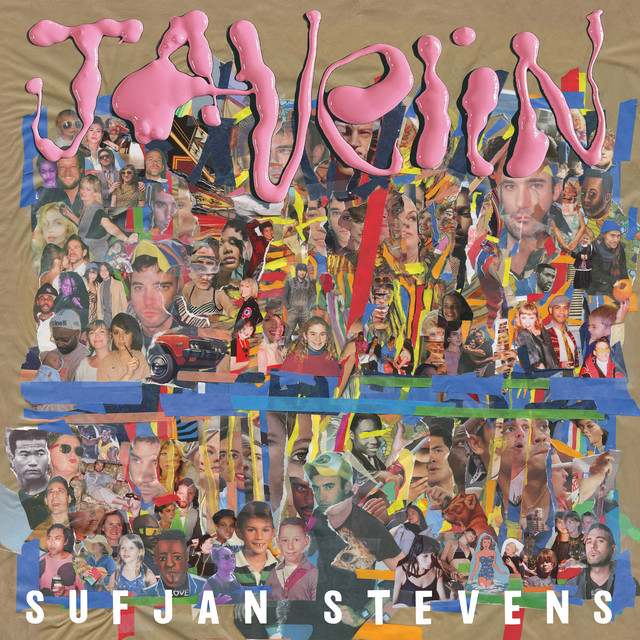 Although the album’s promotional cycle would have you believe Javelin is a straightforward extension of the gentle melancholy of Carrie & Lowell, that’s a slight misnomer. Rather, Sufjan Stevens’s latest blends the synth-driven freakouts of 2010’s The Age of Adz with his quieter endeavors. Most of Javelin concerns itself with past wrongdoings and the physical atonement, much of it self-induced, that its narrator undergoes as a result. “Give myself as a sacrifice / Genuflecting ghost as I kiss the floor,” Stevens’s opening couplet of “Genuflecting Ghost” goes, making immolation sound peaceful with arpeggiated acoustic guitars. Later in the song, he’s begging someone to “bind” and “insult” him as he “praise[s] your name.” This contrast of disturbing imagery and gorgeous, musical tapestries has long been one of Stevens’s strengths as a songwriter. The way he illustrates hopelessness is so affecting that, despite his quiet voice and instrumentation, his music refuses to recede into the background. It commands your attention in every conceivable way. —Grant Sharples
Although the album’s promotional cycle would have you believe Javelin is a straightforward extension of the gentle melancholy of Carrie & Lowell, that’s a slight misnomer. Rather, Sufjan Stevens’s latest blends the synth-driven freakouts of 2010’s The Age of Adz with his quieter endeavors. Most of Javelin concerns itself with past wrongdoings and the physical atonement, much of it self-induced, that its narrator undergoes as a result. “Give myself as a sacrifice / Genuflecting ghost as I kiss the floor,” Stevens’s opening couplet of “Genuflecting Ghost” goes, making immolation sound peaceful with arpeggiated acoustic guitars. Later in the song, he’s begging someone to “bind” and “insult” him as he “praise[s] your name.” This contrast of disturbing imagery and gorgeous, musical tapestries has long been one of Stevens’s strengths as a songwriter. The way he illustrates hopelessness is so affecting that, despite his quiet voice and instrumentation, his music refuses to recede into the background. It commands your attention in every conceivable way. —Grant Sharples
27. MJ Lenderman: Boat Songs (2022)
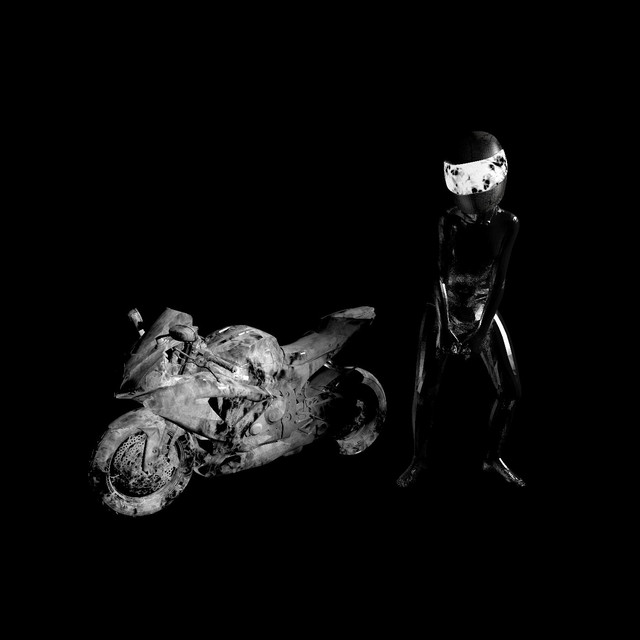 If you told me that one of the most beautiful love songs of the 21st century included the line “Jackass is funny”…I would believe you! Yes, Boat Songs is an album of feel-good rock music chock-full of sports trivia, silly non-sequiturs that sound like jokes your uncle would forget the punchline halfway through, and gratitude for simple pleasures like cold beer and a sick-ass guitar solos. These songs aren’t aiming for profundity, but when they stumble on it, those moments hit harder. I thought we were just messing around, why am I getting all emotional about an old childhood buddy in the middle of this Nina Simone-referencing conversation about professional wrestling? Am I really this upset about overpriced meat or fucking Toontown, or am I upset about what it represents? In the tradition of songwriters like Neil Young and Stephen Malkmus, Lenderman has a way of lulling listeners into a song that seems like it’s about nothing, and nonchalantly hitting them over the head when they’re faced with that something that it’s actually about. I don’t know if there’s transcendence or God or whatever you wanna call it in a glimpse of dolphins from a friend’s boat or a goofy merch shirt gifted to a loved one or, again, a sick-ass guitar solo, but there’s something. —Grace Robins-Somerville
If you told me that one of the most beautiful love songs of the 21st century included the line “Jackass is funny”…I would believe you! Yes, Boat Songs is an album of feel-good rock music chock-full of sports trivia, silly non-sequiturs that sound like jokes your uncle would forget the punchline halfway through, and gratitude for simple pleasures like cold beer and a sick-ass guitar solos. These songs aren’t aiming for profundity, but when they stumble on it, those moments hit harder. I thought we were just messing around, why am I getting all emotional about an old childhood buddy in the middle of this Nina Simone-referencing conversation about professional wrestling? Am I really this upset about overpriced meat or fucking Toontown, or am I upset about what it represents? In the tradition of songwriters like Neil Young and Stephen Malkmus, Lenderman has a way of lulling listeners into a song that seems like it’s about nothing, and nonchalantly hitting them over the head when they’re faced with that something that it’s actually about. I don’t know if there’s transcendence or God or whatever you wanna call it in a glimpse of dolphins from a friend’s boat or a goofy merch shirt gifted to a loved one or, again, a sick-ass guitar solo, but there’s something. —Grace Robins-Somerville
26. Low: HEY WHAT (2021)
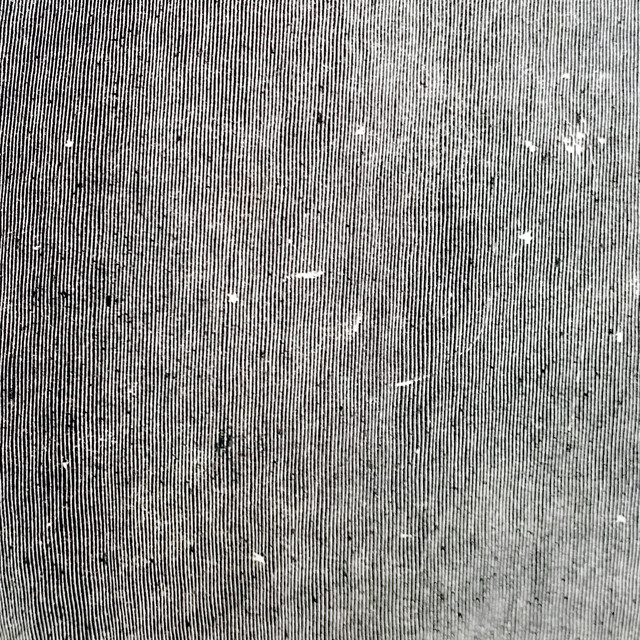 After what sounds like a mechanical bull backfiring inside a hall of mirrors, Alan Sparhawk and Mimi Parker light the whole cow on fire and let it explode. On “White Horses,” the opener of Low’s 13th album HEY WHAT, Sparhawk’s voice and guitars are among the loudest and clearest they’ve been across 13 albums spanning nearly three decades, with Parker’s harmonies not far behind in heft and lucidity. If the ever-mercurial married duo (HEY WHAT is technically the first album Low created as a duo—Steve Garrington, their fourth bassist, departed last year) have long sounded listless and adrift amid myriad moments of personal and political uncertainty, HEY WHAT reimagines Low as a vehicle for powerhouse vocals, high-Richter-scale distortion and blink-and-you’ll-miss-it percussion. The duo’s recent fascination with 21st-century disconnection continues, but the bombast is louder and the tranquility is quieter, and in focusing on lucid melodies and unobscured fidelity, they’ve created their most visceral work yet. —Max Freedman
After what sounds like a mechanical bull backfiring inside a hall of mirrors, Alan Sparhawk and Mimi Parker light the whole cow on fire and let it explode. On “White Horses,” the opener of Low’s 13th album HEY WHAT, Sparhawk’s voice and guitars are among the loudest and clearest they’ve been across 13 albums spanning nearly three decades, with Parker’s harmonies not far behind in heft and lucidity. If the ever-mercurial married duo (HEY WHAT is technically the first album Low created as a duo—Steve Garrington, their fourth bassist, departed last year) have long sounded listless and adrift amid myriad moments of personal and political uncertainty, HEY WHAT reimagines Low as a vehicle for powerhouse vocals, high-Richter-scale distortion and blink-and-you’ll-miss-it percussion. The duo’s recent fascination with 21st-century disconnection continues, but the bombast is louder and the tranquility is quieter, and in focusing on lucid melodies and unobscured fidelity, they’ve created their most visceral work yet. —Max Freedman
25. Johnny Blue Skies: Passage du Desir (2024)
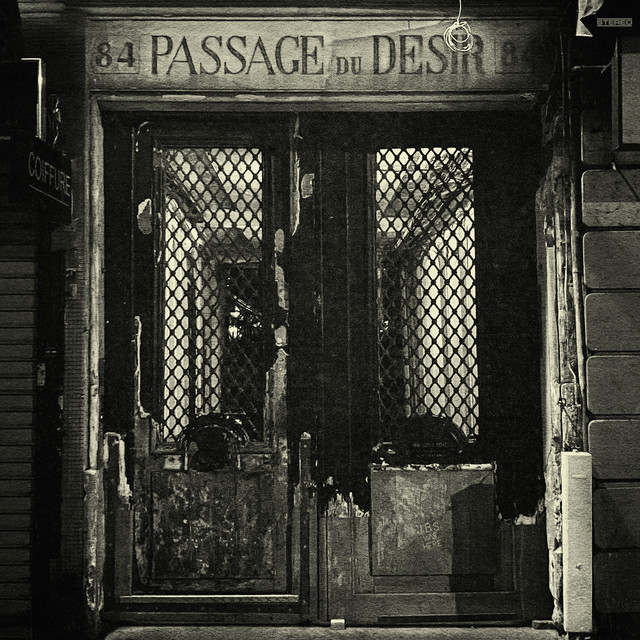 For Sturgill Simpson, Passage du Desir is both a rebirth and an introduction. The album marks his first under a new name: Johnny Blue Skies. It’s his way of holding up his end of a long-standing bargain, that he’d only release five studio albums of original music. Loopholes are worth their weight in gold, and Passage du Desir is one of Simpson’s best projects ever—arriving on the same spiritual plane as A Sailor’s Guide to Earth. Though the LP is only eight songs, Simpson does his best to wander through the muck of life’s greatest romances and fundamental truths. “Jupiter’s Faerie” clocks in at seven minutes; closing track “One For the Road” is nearly nine minutes long. Yet again, Simpson’s work sounds imbued with country tropes that have been long forgotten on mainstream radio. Instead of horns and Bakersfield stylings, he opts for bluesy guitar-playing and rock ‘n’ roll ballad piano. It’s all at once a stroke of outlaw country genius and a massive, psychedelic vacuum of singer-songwriter reckonings and pensive, orchestral swells. Only Simpson could rhyme “Eggos” with “Legos” in a song and make it gritty, as he does on “Scooter Blues.” And on “Swamp of Sadness,” the suffering he sings about arrives with a tinge of that sweet, sweet hope. “Pull the wax out of my ears, tie me to the mast headlong,” Simpson contends. “My heart’s free of fear, so let me hear that siren song. Play it loud and sing it proud and make it last so long, because the night goes on and on, forever.” Passage du Desir is a career-best for the greatest country music messenger of this century. —Matt Mitchell
For Sturgill Simpson, Passage du Desir is both a rebirth and an introduction. The album marks his first under a new name: Johnny Blue Skies. It’s his way of holding up his end of a long-standing bargain, that he’d only release five studio albums of original music. Loopholes are worth their weight in gold, and Passage du Desir is one of Simpson’s best projects ever—arriving on the same spiritual plane as A Sailor’s Guide to Earth. Though the LP is only eight songs, Simpson does his best to wander through the muck of life’s greatest romances and fundamental truths. “Jupiter’s Faerie” clocks in at seven minutes; closing track “One For the Road” is nearly nine minutes long. Yet again, Simpson’s work sounds imbued with country tropes that have been long forgotten on mainstream radio. Instead of horns and Bakersfield stylings, he opts for bluesy guitar-playing and rock ‘n’ roll ballad piano. It’s all at once a stroke of outlaw country genius and a massive, psychedelic vacuum of singer-songwriter reckonings and pensive, orchestral swells. Only Simpson could rhyme “Eggos” with “Legos” in a song and make it gritty, as he does on “Scooter Blues.” And on “Swamp of Sadness,” the suffering he sings about arrives with a tinge of that sweet, sweet hope. “Pull the wax out of my ears, tie me to the mast headlong,” Simpson contends. “My heart’s free of fear, so let me hear that siren song. Play it loud and sing it proud and make it last so long, because the night goes on and on, forever.” Passage du Desir is a career-best for the greatest country music messenger of this century. —Matt Mitchell
24. Phoebe Bridgers: Punisher (2020)
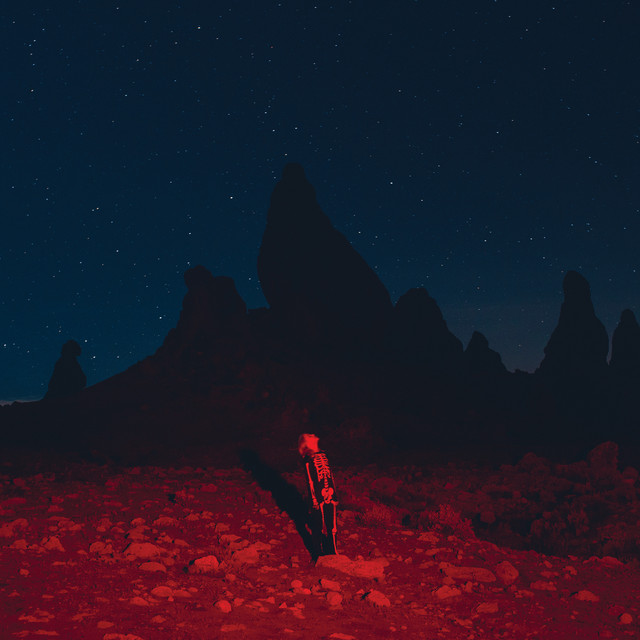 Her sophomore album Punisher cements what may be Phoebe Bridgers’s most understated gift of all: her seemingly innate ability to capture the mundanity of modern sadness in song. Tucked in among the record’s memorable melodies, clever arrangements and impressive guests are a steady stream of details that lend a plainspoken perspective to Bridgers’s emotional highs and (mostly) lows. These kinds of details ground her work in the same way shading makes a still life painting pop. They make them feel not just sad, but real. As an example, look back to “Funeral,” one of the highlights of Bridgers’s 2017 debut Stranger in the Alps. It’s a devastating tune about death and depression, and if it ended at the three-minute mark, it would still be a stunner. But she tacks on an extra bit that contextualizes the rest of the song: “It’s 4 AM again,” she sings flatly, “and I’m doing nothing again.” And all of a sudden … you’re there. Because you’ve been there (probably), and because Bridgers has been there, too, and she knows how to make this song about a stranger’s overdose into a highly relatable moment. The story now has a place to sit—in a dark room, screen glowing, silence deafening, thoughts racing. Again. Those kinds of moments pop up all over Punisher, which is generally noisier and more upbeat than its predecessor. The album’s clear standout (and one of the year’s best songs), “Kyoto,” features Bridgers’s crunchiest guitar riffs yet, a soaring chorus and the travails of dealing with someone who can’t quite get their shit together juxtaposed with a wander through a 7-11 and trip to the suburbs to stare at chemtrails. “I don’t forgive you,” she sings as a horn arrangement crests over this mind-numbing scene, “but please don’t hold me to it.” Later, in “Moon Song,” Bridgers traces the blurry boundaries of a complicated relationship before laying it all out in the final verse: “You are sick and you’re married and you might be dying,” she sings over a small crescendo, “but you’re holding me like water in your hands.” —Ben Salmon
Her sophomore album Punisher cements what may be Phoebe Bridgers’s most understated gift of all: her seemingly innate ability to capture the mundanity of modern sadness in song. Tucked in among the record’s memorable melodies, clever arrangements and impressive guests are a steady stream of details that lend a plainspoken perspective to Bridgers’s emotional highs and (mostly) lows. These kinds of details ground her work in the same way shading makes a still life painting pop. They make them feel not just sad, but real. As an example, look back to “Funeral,” one of the highlights of Bridgers’s 2017 debut Stranger in the Alps. It’s a devastating tune about death and depression, and if it ended at the three-minute mark, it would still be a stunner. But she tacks on an extra bit that contextualizes the rest of the song: “It’s 4 AM again,” she sings flatly, “and I’m doing nothing again.” And all of a sudden … you’re there. Because you’ve been there (probably), and because Bridgers has been there, too, and she knows how to make this song about a stranger’s overdose into a highly relatable moment. The story now has a place to sit—in a dark room, screen glowing, silence deafening, thoughts racing. Again. Those kinds of moments pop up all over Punisher, which is generally noisier and more upbeat than its predecessor. The album’s clear standout (and one of the year’s best songs), “Kyoto,” features Bridgers’s crunchiest guitar riffs yet, a soaring chorus and the travails of dealing with someone who can’t quite get their shit together juxtaposed with a wander through a 7-11 and trip to the suburbs to stare at chemtrails. “I don’t forgive you,” she sings as a horn arrangement crests over this mind-numbing scene, “but please don’t hold me to it.” Later, in “Moon Song,” Bridgers traces the blurry boundaries of a complicated relationship before laying it all out in the final verse: “You are sick and you’re married and you might be dying,” she sings over a small crescendo, “but you’re holding me like water in your hands.” —Ben Salmon
23. Caroline Polachek: Desire, I Want to Turn Into You (2023)
 Desire, I Want To Turn Into You, Caroline Polachek’s sophomore effort, sees her grapple with feeling limited by physical space and by our corporeal forms—she wants not only to be near someone she loves but to become a physical part of them. Desire is just as esoteric musically. Its songs pull from genres as disparate as drum and bass, dembow, and flamenco while Polachek and Harle festoon them with baroque instrumentation—bagpipes, church bells, organs, and a children’s choir. Its arrangements are intricate and densely layered so that every song reveals itself to you more and more upon revisiting. Even the quiet moments split your attention, like on “Hopedrunk Everasking,” where a smoke alarm’s low battery chirp pierces the space between Polachek’s maudlin delivery. The album ends on “Billions,” an ambitious undertaking on an album rife with them. “Billions” is spindly, disjointed, and painted with psychedelic images of headless angels, pearls and a bountiful cup running over. It’s one of Polachek’s best and, as a final bow, the icy pop track ties up the record’s lone loose thread. The vast expanse she feels separated by is folded into every song on this record, whether nodded to lyrically or in the amorphous soundscapes she’s built. Though she may not ever be able to close the gap completely, as “Billions” fades to black, she gets closer than ever before. The members of the Trinity Choir play us out, repeating in angelic harmony, a conclusion: “I’ve never felt so close to you.” Desire is a massive leap forward and, for an artist so focused on orate detail, never falters under the weight of its many parts. It’s elegant, revelatory, verbose and catchy. —Eric Bennett
Desire, I Want To Turn Into You, Caroline Polachek’s sophomore effort, sees her grapple with feeling limited by physical space and by our corporeal forms—she wants not only to be near someone she loves but to become a physical part of them. Desire is just as esoteric musically. Its songs pull from genres as disparate as drum and bass, dembow, and flamenco while Polachek and Harle festoon them with baroque instrumentation—bagpipes, church bells, organs, and a children’s choir. Its arrangements are intricate and densely layered so that every song reveals itself to you more and more upon revisiting. Even the quiet moments split your attention, like on “Hopedrunk Everasking,” where a smoke alarm’s low battery chirp pierces the space between Polachek’s maudlin delivery. The album ends on “Billions,” an ambitious undertaking on an album rife with them. “Billions” is spindly, disjointed, and painted with psychedelic images of headless angels, pearls and a bountiful cup running over. It’s one of Polachek’s best and, as a final bow, the icy pop track ties up the record’s lone loose thread. The vast expanse she feels separated by is folded into every song on this record, whether nodded to lyrically or in the amorphous soundscapes she’s built. Though she may not ever be able to close the gap completely, as “Billions” fades to black, she gets closer than ever before. The members of the Trinity Choir play us out, repeating in angelic harmony, a conclusion: “I’ve never felt so close to you.” Desire is a massive leap forward and, for an artist so focused on orate detail, never falters under the weight of its many parts. It’s elegant, revelatory, verbose and catchy. —Eric Bennett
22. The Wonder Years: The Hum Goes on Forever (2022)
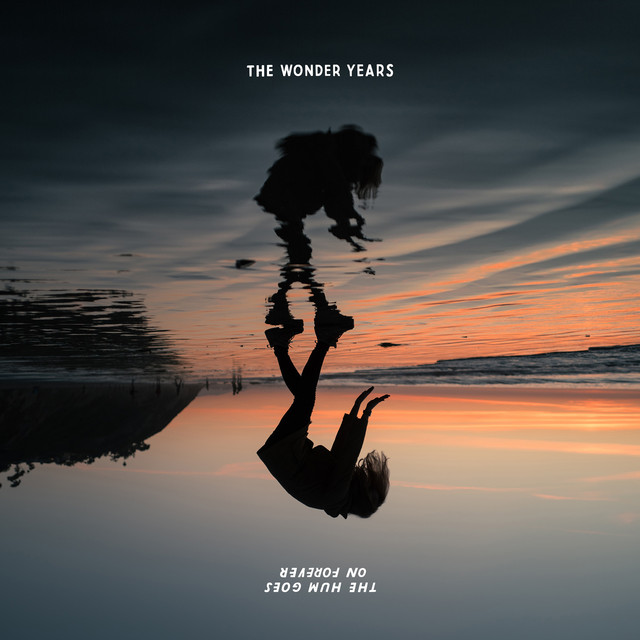 Four years after their last album, Sister Cities, the Wonder Years returned with the career-defining The Hum Goes on Forever in 2022—the best rock album of this decade, one that sees the bones of pop-punk swell into a tempest of everything the rest of us feared most once the pandemic forced us all to pay attention to those voices lingering in focus on our worst days. COVID-19 hit and frontman Dan Campbell, who was a father to a toddler learning to digest the world around him, began reckoning with a life that didn’t include touring music. He went back to school to get a master’s degree in case he needed to get another job; he was tasked with raising a son in a period of humanity defined by death tolls, wildfires and mangled, polluted fixtures of reality. As virus numbers decreased slowly and life began opening up again, the Wonder Years reunited to make Hum and came out with 12 songs that interrogate mortality (“Doors I Painted Shut”), lost friendships (“Oldest Daughter”), fatherhood (“Wyatt’s Song (Your Name)”), depression (“Low Tide”), marriage (“Summer Clothes”) and generational grief (“Old Friends Like Lost Teeth”), only to fall into a conclusive rapture on “You’re the Reason I Don’t Want the World to End,” in which Campbell addresses his two children by declaring, “I don’t wanna die, I wanna light you through your darker months,” before returning with affirmations for them and himself told through radical empathy: “You’re brave, so I’m brave, or I’m trying anyway.” —Matt Mitchell
Four years after their last album, Sister Cities, the Wonder Years returned with the career-defining The Hum Goes on Forever in 2022—the best rock album of this decade, one that sees the bones of pop-punk swell into a tempest of everything the rest of us feared most once the pandemic forced us all to pay attention to those voices lingering in focus on our worst days. COVID-19 hit and frontman Dan Campbell, who was a father to a toddler learning to digest the world around him, began reckoning with a life that didn’t include touring music. He went back to school to get a master’s degree in case he needed to get another job; he was tasked with raising a son in a period of humanity defined by death tolls, wildfires and mangled, polluted fixtures of reality. As virus numbers decreased slowly and life began opening up again, the Wonder Years reunited to make Hum and came out with 12 songs that interrogate mortality (“Doors I Painted Shut”), lost friendships (“Oldest Daughter”), fatherhood (“Wyatt’s Song (Your Name)”), depression (“Low Tide”), marriage (“Summer Clothes”) and generational grief (“Old Friends Like Lost Teeth”), only to fall into a conclusive rapture on “You’re the Reason I Don’t Want the World to End,” in which Campbell addresses his two children by declaring, “I don’t wanna die, I wanna light you through your darker months,” before returning with affirmations for them and himself told through radical empathy: “You’re brave, so I’m brave, or I’m trying anyway.” —Matt Mitchell
21. Sudan Archives: Natural Brown Prom Queen (2022)
 Few musicians perform with as much sheer joy and radiance as Brittney Parks, aka Sudan Archives. When I think of my favorite concert recent experiences, one of the memories that stands out most crystalline in my mind is of Parks creeping across Pitchfork Music Festival’s Blue Stage in a multicolored, polka-dot bodysuit, her trusty violin affixed to her shoulder and its bow slung across her back, periodically unsheathing it like an archer taking aim for the killshot. At times on her 2022 record Natural Brown Prom Queen, Parks’s violin feels like an extension of her voice, her dexterous plucking at its strings accompanying the vocal refrain of “I’m not average,” on the album’s pseudo-title track “NPBQ (Topless)” as though chanting along in agreement, spiraling out from the “I don’t want no struggles / I don’t want no fears” hook of “Selfish Soul,” or punctuating her exclamations of “Grown land, bitch!” on “TDLY (Homegrown Land).” This record is restless, exuberant and kaleidoscopic, never content to explore its numerous subjects through just one lens or just one sound. The way Parks explores love, friendship, family, artistry, and Black womanhood treats these inspirations as crisscrossing and ever-changing as they are, reflecting and refracting them over each other through pulsating pop that demands to be danced to and refuses to be categorized. —Grace Robins-Somerville
Few musicians perform with as much sheer joy and radiance as Brittney Parks, aka Sudan Archives. When I think of my favorite concert recent experiences, one of the memories that stands out most crystalline in my mind is of Parks creeping across Pitchfork Music Festival’s Blue Stage in a multicolored, polka-dot bodysuit, her trusty violin affixed to her shoulder and its bow slung across her back, periodically unsheathing it like an archer taking aim for the killshot. At times on her 2022 record Natural Brown Prom Queen, Parks’s violin feels like an extension of her voice, her dexterous plucking at its strings accompanying the vocal refrain of “I’m not average,” on the album’s pseudo-title track “NPBQ (Topless)” as though chanting along in agreement, spiraling out from the “I don’t want no struggles / I don’t want no fears” hook of “Selfish Soul,” or punctuating her exclamations of “Grown land, bitch!” on “TDLY (Homegrown Land).” This record is restless, exuberant and kaleidoscopic, never content to explore its numerous subjects through just one lens or just one sound. The way Parks explores love, friendship, family, artistry, and Black womanhood treats these inspirations as crisscrossing and ever-changing as they are, reflecting and refracting them over each other through pulsating pop that demands to be danced to and refuses to be categorized. —Grace Robins-Somerville
20. SZA: SOS (2022)
 Released in the middle of list season in 2022 and then grossly snubbed for Album of the Year at the Grammys this year, SZA’s SOS is the kind of record that dares to abolish the “sophomore slump” concept entirely. SOS was a critical darling immediately, receiving resounding universal acclaim across the world—and for good reason, as it is exactly why, even in 2024, we are still looking back at the album and trying to predict all of the ways it will influence the shape of soul, R&B and pop to come. The album, even at 23 songs, is cohesive and commanding; try finding a place in the tracklist to hit pause on. Collaborations with Phoebe Bridgers, Travis Scott, Ol’ Dirty Bastard and Don Toliver stick out, but it’s the solo tracks that let SZA’s stardom radiate. “Blind,” “Conceited” and “Kill Bill” are some of the best pop songs of this decade for a reason: SZA’s ambitions are shown to us intimately, in a blend of ferociously hypnotic and expansive genre studies and rap notes that are so melodic that the concept of “mood” becomes its own eccentricity on SOS. —Matt Mitchell
Released in the middle of list season in 2022 and then grossly snubbed for Album of the Year at the Grammys this year, SZA’s SOS is the kind of record that dares to abolish the “sophomore slump” concept entirely. SOS was a critical darling immediately, receiving resounding universal acclaim across the world—and for good reason, as it is exactly why, even in 2024, we are still looking back at the album and trying to predict all of the ways it will influence the shape of soul, R&B and pop to come. The album, even at 23 songs, is cohesive and commanding; try finding a place in the tracklist to hit pause on. Collaborations with Phoebe Bridgers, Travis Scott, Ol’ Dirty Bastard and Don Toliver stick out, but it’s the solo tracks that let SZA’s stardom radiate. “Blind,” “Conceited” and “Kill Bill” are some of the best pop songs of this decade for a reason: SZA’s ambitions are shown to us intimately, in a blend of ferociously hypnotic and expansive genre studies and rap notes that are so melodic that the concept of “mood” becomes its own eccentricity on SOS. —Matt Mitchell
19. Soul Glo: Diaspora Problems (2022)
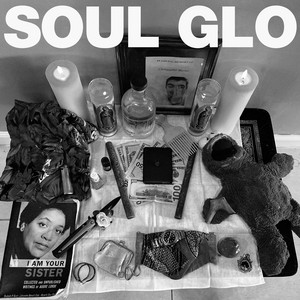
Diaspora Problems should be viewed as nothing short of a new tectonic shift in the world of hardcore punk. Listening to it, you get the sense that Soul Glo are less concerned with getting the opportunity to perform a medley of new tunes on a prestigious late-night spot than hanging behind to dismantle the stale conventions of the often white male-dominated underground scene they cut their teeth in. And my goodness, do Soul Glo deliver. The rage contained within the 12 songs on Diaspora Problems is potent enough to launch anyone clinging to the status quo or softening of aggressive music out of an airlock into space to make way for a better tomorrow. Soul Glo have caused a clearing in the forest with an album so boundless in its creativity that it cannot be ignored. This is the shape of hardcore that we had been promised. —Pat King
18. Jessica Pratt: Here in the Pitch (2024)
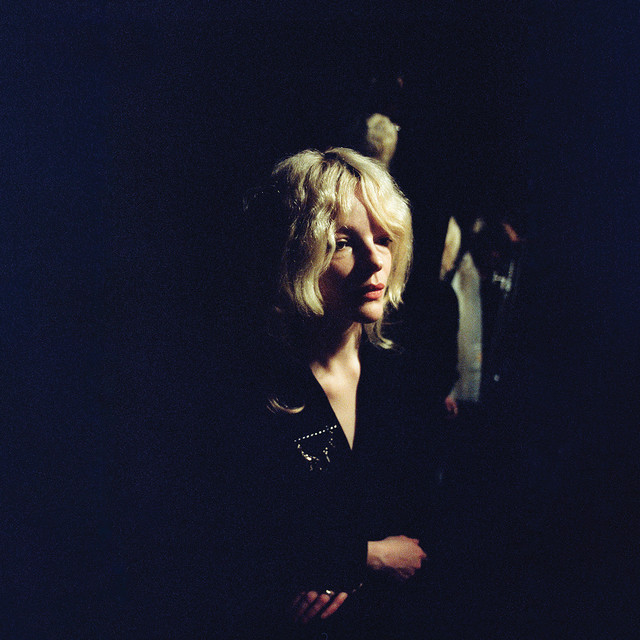 Much of Here in the Pitch attempts to reckon with time and all of its charms, disasters and unknowns. Whether that’s done through nods to a post-psychedelic haze on “World on a String,” through horn placements that echo the sounds, sights and ashy hues of the speakeasies that Los Angeles miscreants might have stumbled into four, maybe five decades ago, or lines like “I soon should know what remains / I never was what they called me in the dark / I never was / Here I sit so long”—it’s obvious that Jessica Pratt has never felt more comfortable in her own ambitions, a truth most prominently on display throughout a track like “Get Your Head Out,” which shimmies between the vibes of dimly lit hotel soirées and “in the stars waiting ‘til love’s aligned.” On Here in the Pitch, it’s as if Pratt is walking with us down the Yellow Brick Road, but the cobblestone quakes with bitumen smacked by traces of romance and horror that, on their own can be quite maddening but, here, make for some adventurous, Great American Songbook-worthy shapes. Here in the Pitch is a serenade of our own unique endtimes, packed with rollicking, sugar-sweet verses and vocalizations you can twirl your body to and curl up and anguish over all the same. And, at a mere 27 minutes in length, Pratt wastes no time with us. The whole project is tight as a wire. “It seems it’s all so wonderful inside,” Pratt beckons, slashing through gloom with a wounded olive branch. —Matt Mitchell
Much of Here in the Pitch attempts to reckon with time and all of its charms, disasters and unknowns. Whether that’s done through nods to a post-psychedelic haze on “World on a String,” through horn placements that echo the sounds, sights and ashy hues of the speakeasies that Los Angeles miscreants might have stumbled into four, maybe five decades ago, or lines like “I soon should know what remains / I never was what they called me in the dark / I never was / Here I sit so long”—it’s obvious that Jessica Pratt has never felt more comfortable in her own ambitions, a truth most prominently on display throughout a track like “Get Your Head Out,” which shimmies between the vibes of dimly lit hotel soirées and “in the stars waiting ‘til love’s aligned.” On Here in the Pitch, it’s as if Pratt is walking with us down the Yellow Brick Road, but the cobblestone quakes with bitumen smacked by traces of romance and horror that, on their own can be quite maddening but, here, make for some adventurous, Great American Songbook-worthy shapes. Here in the Pitch is a serenade of our own unique endtimes, packed with rollicking, sugar-sweet verses and vocalizations you can twirl your body to and curl up and anguish over all the same. And, at a mere 27 minutes in length, Pratt wastes no time with us. The whole project is tight as a wire. “It seems it’s all so wonderful inside,” Pratt beckons, slashing through gloom with a wounded olive branch. —Matt Mitchell
17. Adrianne Lenker: songs (2020)
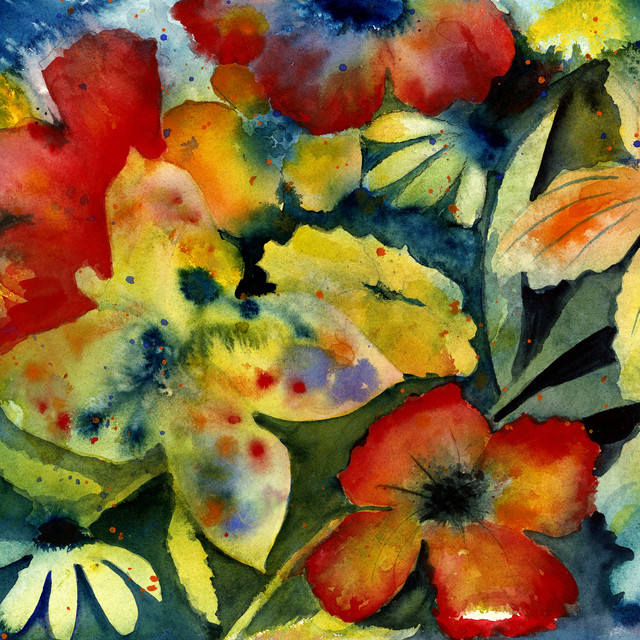 Everything Adrianne Lenker puts her name to could very well be the best thing she’s ever done. She’s best known as the frontwoman and songwriter of Brooklyn-based indie-folk band Big Thief, who released their debut album in 2016 and quickly became critical darlings, and Lenker herself became a particularly influential vocalist. When Big Thief’s tour was cut short in March 2020, Lenker decided to retreat to a cabin in the mountains of Western Massachusetts to record an album. Space and nature, after all, are hugely important to her work. Lenker’s last solo full-length was 2018’s abysskiss, an album where dreams can lie in pillows, wagons can carry desire and time can count us just as well as we can count it. With songs, Lenker hones in on the duality of life. Love can be pure or manipulative, intimacy can indicate separation or closeness, and pain can be soul-crushing or relieving—and all these realities still lurk beneath the surface even when one has more clearly manifested. These tracks are among Lenker’s most striking and emotionally nuanced. While it lacks the musical dynamism of abysskiss, songs’ lyrics are more potent and detailed. Much like Big Thief’s, Lenker’s music emboldens the listener to think about their mother and dig through photos from their childhood, and not out of typical sentimental longing, but a deeper, primal desire to love and be loved. —Lizzie Manno
Everything Adrianne Lenker puts her name to could very well be the best thing she’s ever done. She’s best known as the frontwoman and songwriter of Brooklyn-based indie-folk band Big Thief, who released their debut album in 2016 and quickly became critical darlings, and Lenker herself became a particularly influential vocalist. When Big Thief’s tour was cut short in March 2020, Lenker decided to retreat to a cabin in the mountains of Western Massachusetts to record an album. Space and nature, after all, are hugely important to her work. Lenker’s last solo full-length was 2018’s abysskiss, an album where dreams can lie in pillows, wagons can carry desire and time can count us just as well as we can count it. With songs, Lenker hones in on the duality of life. Love can be pure or manipulative, intimacy can indicate separation or closeness, and pain can be soul-crushing or relieving—and all these realities still lurk beneath the surface even when one has more clearly manifested. These tracks are among Lenker’s most striking and emotionally nuanced. While it lacks the musical dynamism of abysskiss, songs’ lyrics are more potent and detailed. Much like Big Thief’s, Lenker’s music emboldens the listener to think about their mother and dig through photos from their childhood, and not out of typical sentimental longing, but a deeper, primal desire to love and be loved. —Lizzie Manno
16. Wednesday: Rat Saw God (2023)
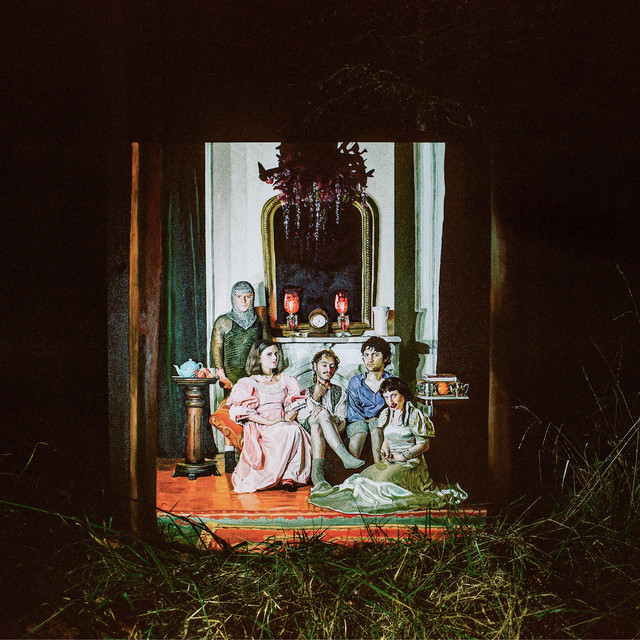 I listen to Rat Saw God and the bees in my stomach have come alive once more, just as they have in the molecules of Wednesday’s sound. I now care about what the news anchor in the gas pump wants to tell me. There are teens doing whippets in the alleyway behind the local pharmacy; guns and cocaine are hidden in drywall. There is a parade everywhere, bounties of gargoyles, neon signs half alive and heads full of lice. When the eye of the storm calms down, there are five people. Five Tar Heel punks. Five rats. All of them, they’re more in love with each other and more in love with music than ever before. And what do rats do? They scavenge. They make use of what others throw away. On Rat Saw God, Wednesday have taken the ugly bits of their pasts—what everyone else has forgotten about—and reworked them into funny, imperfect and beautiful mementos of chaos and growth. —Matt Mitchell
I listen to Rat Saw God and the bees in my stomach have come alive once more, just as they have in the molecules of Wednesday’s sound. I now care about what the news anchor in the gas pump wants to tell me. There are teens doing whippets in the alleyway behind the local pharmacy; guns and cocaine are hidden in drywall. There is a parade everywhere, bounties of gargoyles, neon signs half alive and heads full of lice. When the eye of the storm calms down, there are five people. Five Tar Heel punks. Five rats. All of them, they’re more in love with each other and more in love with music than ever before. And what do rats do? They scavenge. They make use of what others throw away. On Rat Saw God, Wednesday have taken the ugly bits of their pasts—what everyone else has forgotten about—and reworked them into funny, imperfect and beautiful mementos of chaos and growth. —Matt Mitchell
15. Charli xcx: BRAT (2024)
 On BRAT, Charli XCX is once again channeling her experiences into radical, bite-sized pop songs. It makes CRASH feel even more like an aberration, drawing way closer from the forthright nature of how i’m feeling now. BRAT, though, is messy and vulnerable—in a way Charli’s work has lacked over the last decade. Her own framing positions the album as a club record, written as though she’s spouting these songs off via drunk texts to a friend. That last part is unambiguously true, right down to the sentence case titling. BRAT is a love letter to the sounds of electroclash (think Ed Banger Records, Peaches, Uffie). Though BRAT is, at every moment, an album about Charli XCX’s feelings, it’s important to note that not all of those feelings are raw. There’s the ebullient “Club classics,” a song that exists both within and outside the club, building alongside her anticipation for a night out. There’s the bold and, well, bratty “Von dutch,” a self-obsessed and deliriously fun romp so good that its second-verse-same-as-the-first structure isn’t reductive. Much like when a song’s chorus is so good you find yourself hoping they’ll do it one more time, all of “Von dutch” is that good. By all means, repeat it! There’s the icy, disaffected cool of “360,” an all-timer in her catalog already—where Charli absolutely floats over a simple but thrilling beat from Cook and Cirkut. Its video is packed with It Girls like Chloe Sevigny, Rachel Sennott and Alex Consani, as are its lyrics. There’s no reason that a song whose chorus namedrops Julia Fox should work so well, but it just does! —Eric Bennett
On BRAT, Charli XCX is once again channeling her experiences into radical, bite-sized pop songs. It makes CRASH feel even more like an aberration, drawing way closer from the forthright nature of how i’m feeling now. BRAT, though, is messy and vulnerable—in a way Charli’s work has lacked over the last decade. Her own framing positions the album as a club record, written as though she’s spouting these songs off via drunk texts to a friend. That last part is unambiguously true, right down to the sentence case titling. BRAT is a love letter to the sounds of electroclash (think Ed Banger Records, Peaches, Uffie). Though BRAT is, at every moment, an album about Charli XCX’s feelings, it’s important to note that not all of those feelings are raw. There’s the ebullient “Club classics,” a song that exists both within and outside the club, building alongside her anticipation for a night out. There’s the bold and, well, bratty “Von dutch,” a self-obsessed and deliriously fun romp so good that its second-verse-same-as-the-first structure isn’t reductive. Much like when a song’s chorus is so good you find yourself hoping they’ll do it one more time, all of “Von dutch” is that good. By all means, repeat it! There’s the icy, disaffected cool of “360,” an all-timer in her catalog already—where Charli absolutely floats over a simple but thrilling beat from Cook and Cirkut. Its video is packed with It Girls like Chloe Sevigny, Rachel Sennott and Alex Consani, as are its lyrics. There’s no reason that a song whose chorus namedrops Julia Fox should work so well, but it just does! —Eric Bennett
14. billy woods: Aethiopes (2022)
 billy woods is one of the kingpins—if not the kingpin—of modern underground rap. Both as an emcee and label founder, woods has not only preserved and documented his scene with Backwoodz Studioz but actively contributed to it. After the New Yorker’s 2012 breakthrough release, History Will Absolve Me, woods garnered eyes and ears as both a champion of and prolific participant in his scene. Since then, his star and style have grown in tandem, and 2022’s Aethiopes, in particular, encapsulates his dizzying idiosyncrasies. Working with producer Preservation, woods raps his way through sampladelic labyrinths of discordant brass and twinkling pianos, covering everything from theological prophecies to Shakespearean allegories. “Said he had a vision / Said he had a system / Said he was the one true and living / Said he had a mission,” woods raps through flickering, sped-up harmonica and thumping drums on “NYNEX,” threading his bars through Preservation’s vertiginous beat. Aethiopes is the type of album that reveals itself to you over time, gradually unfurling its brilliance with every repeated listen. But from the first time you hear it, one thing is instantly clear: billy woods has a vision. —Grant Sharples
billy woods is one of the kingpins—if not the kingpin—of modern underground rap. Both as an emcee and label founder, woods has not only preserved and documented his scene with Backwoodz Studioz but actively contributed to it. After the New Yorker’s 2012 breakthrough release, History Will Absolve Me, woods garnered eyes and ears as both a champion of and prolific participant in his scene. Since then, his star and style have grown in tandem, and 2022’s Aethiopes, in particular, encapsulates his dizzying idiosyncrasies. Working with producer Preservation, woods raps his way through sampladelic labyrinths of discordant brass and twinkling pianos, covering everything from theological prophecies to Shakespearean allegories. “Said he had a vision / Said he had a system / Said he was the one true and living / Said he had a mission,” woods raps through flickering, sped-up harmonica and thumping drums on “NYNEX,” threading his bars through Preservation’s vertiginous beat. Aethiopes is the type of album that reveals itself to you over time, gradually unfurling its brilliance with every repeated listen. But from the first time you hear it, one thing is instantly clear: billy woods has a vision. —Grant Sharples
13. Jane Remover: Frailty (2021)
 On Frailty, dariacore was born. Sonically, though, Jane Remover’s music is a masterful amalgam of myriad other subgenres: digicore, hyperpop, emo, bedroom pop, EDM, Nintendocore, the list goes on. If such an extensive list makes Frailty sound like a meandering mess, then it simply speaks to Jane’s impressive skills as a producer. Nothing sounds disjointed or out of place. Frailty, clocking in at nearly an hour with 13 tracks, is coherent yet ambitious, focused yet towering. Jane has said that they are a massive fan of EDM artists such as Porter Robinson and Skrillex, yet they also borrow from videogame soundtracks, including OSTs for Undertale and the Pokémon series. At the same time, their music evokes that of a modern wave of rising producers, including PinkPantheress and Glaive, as well as more straightforward indie-pop like Passion Pit. It’s quite the feat for all these styles to coalesce with such finesse, and that’s precisely what Jane has achieved. Frailty is rife with catchy hooks, as exemplified on tracks like “your clothes” and “search party,” but Jane Remover infuses them with enough instability and surprise to make them more exciting. “movies for guys,” for instance, could be a relatively elementary pop song about a crush gone awry. Instead, it dissolves into a chaotic saga divided by symphonic, experimental movements. —Grant Sharples
On Frailty, dariacore was born. Sonically, though, Jane Remover’s music is a masterful amalgam of myriad other subgenres: digicore, hyperpop, emo, bedroom pop, EDM, Nintendocore, the list goes on. If such an extensive list makes Frailty sound like a meandering mess, then it simply speaks to Jane’s impressive skills as a producer. Nothing sounds disjointed or out of place. Frailty, clocking in at nearly an hour with 13 tracks, is coherent yet ambitious, focused yet towering. Jane has said that they are a massive fan of EDM artists such as Porter Robinson and Skrillex, yet they also borrow from videogame soundtracks, including OSTs for Undertale and the Pokémon series. At the same time, their music evokes that of a modern wave of rising producers, including PinkPantheress and Glaive, as well as more straightforward indie-pop like Passion Pit. It’s quite the feat for all these styles to coalesce with such finesse, and that’s precisely what Jane has achieved. Frailty is rife with catchy hooks, as exemplified on tracks like “your clothes” and “search party,” but Jane Remover infuses them with enough instability and surprise to make them more exciting. “movies for guys,” for instance, could be a relatively elementary pop song about a crush gone awry. Instead, it dissolves into a chaotic saga divided by symphonic, experimental movements. —Grant Sharples
12. Cindy Lee: Diamond Jubilee (2024)
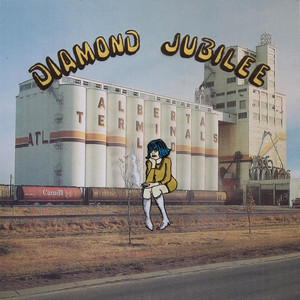 Throughout its two hours of music, there are moments on Cindy Lee’s Diamond Jubilee where instrumentation will be either recorded or manipulated to sound like it’s coming from the other room, if not another gauzy galaxy, only for the sound quality to change suddenly, jutting out at you. “If You Hear Me Crying” on the second “disc” does this beautifully, shifting from sunshine pop bounce to what sound like muted, sarangi-accompanied passages, all bulldozed by a day-glo guitar break in a matter of a minute. This melding of influences and styles produces some of the record’s most daring turns—notably where “Flesh and Blood”’s percussive intro throbs until a dam breaks into sustained synth textures, a bass-driven groove and wordless backing vocals. Only adding to the shambolic charm, the song notably speeds up or slows down at certain points, as if it’s careening on railroad tracks, propelling itself into an outro of more pronounced cymbal crashes and even more crunchy, psychedelic shredding. Diamond Jubilee will overwhelm you, there’s no getting around that. The sheer volume of what Patrick Flegel has created willfully takes up space, and it’s expected that the listener will have to wrestle with something of this scope, even as they’re wowed by what they’re hearing. But again, there’s something thrilling now about that type of challenge, when so much is so easily digestible. Even if the Cindy Lee project doesn’t exist in its current form by the time this upcoming tour is over, it won’t really matter—their masterwork, beamed down from another world, will always feel out of time and, therefore, feel at home in any given moment. The album’s sprawl has no beginning and no end. It’s just a question of when or where you’re ready to join it. —Elise Soutar
Throughout its two hours of music, there are moments on Cindy Lee’s Diamond Jubilee where instrumentation will be either recorded or manipulated to sound like it’s coming from the other room, if not another gauzy galaxy, only for the sound quality to change suddenly, jutting out at you. “If You Hear Me Crying” on the second “disc” does this beautifully, shifting from sunshine pop bounce to what sound like muted, sarangi-accompanied passages, all bulldozed by a day-glo guitar break in a matter of a minute. This melding of influences and styles produces some of the record’s most daring turns—notably where “Flesh and Blood”’s percussive intro throbs until a dam breaks into sustained synth textures, a bass-driven groove and wordless backing vocals. Only adding to the shambolic charm, the song notably speeds up or slows down at certain points, as if it’s careening on railroad tracks, propelling itself into an outro of more pronounced cymbal crashes and even more crunchy, psychedelic shredding. Diamond Jubilee will overwhelm you, there’s no getting around that. The sheer volume of what Patrick Flegel has created willfully takes up space, and it’s expected that the listener will have to wrestle with something of this scope, even as they’re wowed by what they’re hearing. But again, there’s something thrilling now about that type of challenge, when so much is so easily digestible. Even if the Cindy Lee project doesn’t exist in its current form by the time this upcoming tour is over, it won’t really matter—their masterwork, beamed down from another world, will always feel out of time and, therefore, feel at home in any given moment. The album’s sprawl has no beginning and no end. It’s just a question of when or where you’re ready to join it. —Elise Soutar
11. Big Thief: Dragon New Warm Mountain I Believe in You (2022)
 What great bands often do when they realize they’re at the peak of their powers is make a double album. The first year of the pandemic allowed Big Thief the time and space to indulge this hubristic tradition. Faced with their longest break from touring since 2016’s Masterpiece came out, they wrote at a feverish pace and spent five months recording in four distinct sessions—in upstate New York, in California, in the Rocky Mountains, and in Tucson—with four different engineers. By the last session, they had generated some 45 completed songs. The result is Dragon New Warm Mountain I Believe in You, a freewheeling creature that vibrates with the restlessness and ramshackle intimacy that have long distinguished this band, blown out to a new scale. It is an uncommonly warm and generous record, 20 songs in all—flitting from campfire folk (“Change”) to clanging cosmic rumination (“Time Escaping”) to countrified hoedown (“Spud Infinity”) in its first three tracks alone—and it solidifies Adrianne Lenker’s place as one of the greatest songwriters to emerge in the last five years. Dragon New Warm Mountain I Believe in You is not really an indie-rock album, at least not in the way that Two Hands was. There is no successor to “Not” here, nothing that belongs on a mid-2010s indie mood board. Instead, it revels in the earthy, joyously uncool tones of a ’70s hippie-folk record excavated from a garage sale. It is Big Thief’s loosest album and most ambitious album all at once. —Zach Schonfeld
What great bands often do when they realize they’re at the peak of their powers is make a double album. The first year of the pandemic allowed Big Thief the time and space to indulge this hubristic tradition. Faced with their longest break from touring since 2016’s Masterpiece came out, they wrote at a feverish pace and spent five months recording in four distinct sessions—in upstate New York, in California, in the Rocky Mountains, and in Tucson—with four different engineers. By the last session, they had generated some 45 completed songs. The result is Dragon New Warm Mountain I Believe in You, a freewheeling creature that vibrates with the restlessness and ramshackle intimacy that have long distinguished this band, blown out to a new scale. It is an uncommonly warm and generous record, 20 songs in all—flitting from campfire folk (“Change”) to clanging cosmic rumination (“Time Escaping”) to countrified hoedown (“Spud Infinity”) in its first three tracks alone—and it solidifies Adrianne Lenker’s place as one of the greatest songwriters to emerge in the last five years. Dragon New Warm Mountain I Believe in You is not really an indie-rock album, at least not in the way that Two Hands was. There is no successor to “Not” here, nothing that belongs on a mid-2010s indie mood board. Instead, it revels in the earthy, joyously uncool tones of a ’70s hippie-folk record excavated from a garage sale. It is Big Thief’s loosest album and most ambitious album all at once. —Zach Schonfeld
10. Spellling: The Turning Wheel (2021)
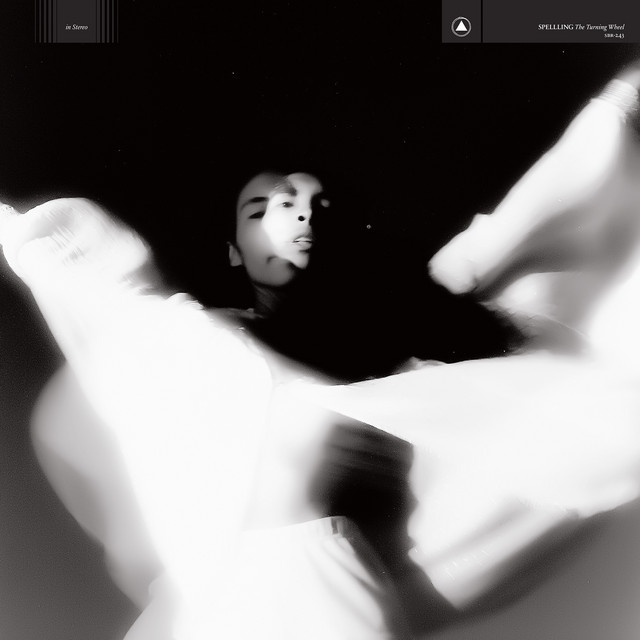 In the first half of a decade which saw the rise of many diaristic singer-songwriters, the indie world still struggles with whimsy or theatricality as concepts. Yet, Oakland art pop multi-instrumentalist Tia Cabral crafted one of the most ambitious, existential sleeper hits of the past five years by operating in a fantasy world of her own. Centered around her distinctive soprano cutting through lush, immaculately produced walls of harp, prog guitars, woodwinds and strings, The Turning Wheel is half paean to the natural world, half chilling depiction of isolation outside of it. From the pulsing lovesickness of “Always” to the icy synth showcase of “Queen of Wands” to the grandiose centerpiece of “Boys at School,” she carves out one mini-opera after the other, dazzling us one breath and haunting us the next. For all the critical darlings singing plaintive, poetic lines over acoustic guitars, few moments will still cut like Cabral’s delivery of “I’m meaner than you think, and I’m not afraid of how lonely it’s going to be” by the decade’s end. —Elise Soutar
In the first half of a decade which saw the rise of many diaristic singer-songwriters, the indie world still struggles with whimsy or theatricality as concepts. Yet, Oakland art pop multi-instrumentalist Tia Cabral crafted one of the most ambitious, existential sleeper hits of the past five years by operating in a fantasy world of her own. Centered around her distinctive soprano cutting through lush, immaculately produced walls of harp, prog guitars, woodwinds and strings, The Turning Wheel is half paean to the natural world, half chilling depiction of isolation outside of it. From the pulsing lovesickness of “Always” to the icy synth showcase of “Queen of Wands” to the grandiose centerpiece of “Boys at School,” she carves out one mini-opera after the other, dazzling us one breath and haunting us the next. For all the critical darlings singing plaintive, poetic lines over acoustic guitars, few moments will still cut like Cabral’s delivery of “I’m meaner than you think, and I’m not afraid of how lonely it’s going to be” by the decade’s end. —Elise Soutar
9. L’Rain: Fatigue (2021)
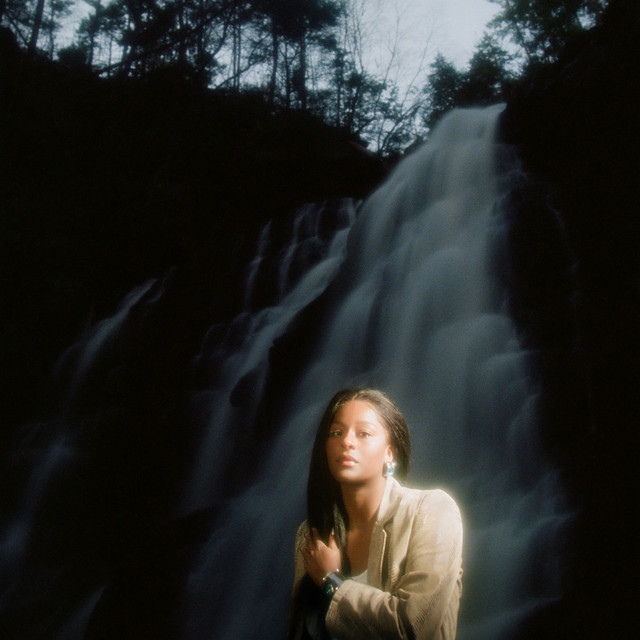 On Fatigue, the second album from Brooklyn singer and multi-instrumentalist Taja Cheek (aka L’Rain), the artist presents lush, textural music that encourages deep, emotional change. Each song its own sonic universe, the sprawling compositions are matched with introspective lyrics that guide the listener towards individual catharsis. Songs like “Two Face” experiment with dark themes and conversational misunderstandings atop an extremely lively, jazzy-sounding beat, while “Suck Teeth,” a song meant to evoke “a very Black sound of disapproval, annoyance and disappointment,” is groovy and unsettling. Several short interludes scattered throughout the album offer glimpses into its creator’s mind, pulling the listener deeper into Cheek’s creative vision. Fatigue, with its ever-shifting soundscapes, illuminates the magical aspects of change, and how it can shape us into the best versions of ourselves. —Jason Friedman
On Fatigue, the second album from Brooklyn singer and multi-instrumentalist Taja Cheek (aka L’Rain), the artist presents lush, textural music that encourages deep, emotional change. Each song its own sonic universe, the sprawling compositions are matched with introspective lyrics that guide the listener towards individual catharsis. Songs like “Two Face” experiment with dark themes and conversational misunderstandings atop an extremely lively, jazzy-sounding beat, while “Suck Teeth,” a song meant to evoke “a very Black sound of disapproval, annoyance and disappointment,” is groovy and unsettling. Several short interludes scattered throughout the album offer glimpses into its creator’s mind, pulling the listener deeper into Cheek’s creative vision. Fatigue, with its ever-shifting soundscapes, illuminates the magical aspects of change, and how it can shape us into the best versions of ourselves. —Jason Friedman
8. Lingua Ignota: SINNER GET READY (2022)
 SINNER GET READY, avant-garde musician Kristin Hayter’s fourth and final album released under the name Lingua Ignota, has the rare distinction of already feeling like it’s never not existed. That’s intentional, as the record serves in part as ethnography, weaving traditional sounds of Christian liturgy into traditional Appalachian folk and more recent modern strains of experimental neofolk. That timelessness feels just as present in its horrifying subject matter, documenting Hayter’s own suffering at the hands of domestic abuse, filtered through the violence and pageantry which colors much of organized religion. With the harrowing, dissonant drone of both the instrumentation and lyrical content, Hayter digs mercilessly at the centuries of pain buried beneath the pulpit at which she wails, sounding a million feet tall—relentlessly damning, even in the album’s quieter reprieves. The cultural reckoning with SINNER GET READY’s central concern is ongoing and, on this front, no one can blame Hayter for wanting to retire the project for good. Still, even as it ends with the acceptance of loneliness and pleas for absolution, the record stands as one of the most dense, brilliantly-realized pieces of art that we, as listeners, will ever have the honor to grapple with. —Elise Soutar
SINNER GET READY, avant-garde musician Kristin Hayter’s fourth and final album released under the name Lingua Ignota, has the rare distinction of already feeling like it’s never not existed. That’s intentional, as the record serves in part as ethnography, weaving traditional sounds of Christian liturgy into traditional Appalachian folk and more recent modern strains of experimental neofolk. That timelessness feels just as present in its horrifying subject matter, documenting Hayter’s own suffering at the hands of domestic abuse, filtered through the violence and pageantry which colors much of organized religion. With the harrowing, dissonant drone of both the instrumentation and lyrical content, Hayter digs mercilessly at the centuries of pain buried beneath the pulpit at which she wails, sounding a million feet tall—relentlessly damning, even in the album’s quieter reprieves. The cultural reckoning with SINNER GET READY’s central concern is ongoing and, on this front, no one can blame Hayter for wanting to retire the project for good. Still, even as it ends with the acceptance of loneliness and pleas for absolution, the record stands as one of the most dense, brilliantly-realized pieces of art that we, as listeners, will ever have the honor to grapple with. —Elise Soutar
7. Moses Sumney: græ (2020)
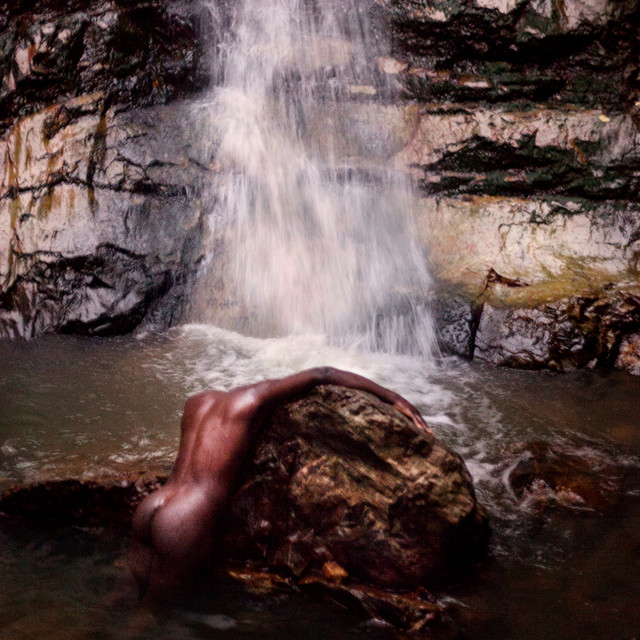 It’s a special thing to watch a promising artist rise to meet the moment in front of them. Some never quite get there. They retreat from the pressure or they run into a ceiling that’s lower than expected. Sometimes bad timing or unlucky circumstances prove insurmountable. And then there are folks like Moses Sumney, the prodigiously talented and artistically ambitious American singer-songwriter who has relentlessly resisted the shortest path to stardom over the past several years. With a stunning voice, a striking figure and a lot of famous friends on his side, he could’ve at any point submitted himself to the hit machine and made a straightforward pop/R&B record that likely would’ve fast-tracked Sumney to household-name status. Instead, he has taken an omnivorous approach to his music, absorbing folk, soul, jazz, ambient and classical music into his unique sound. Still, his debut full-length—2017’s Aromanticism, an intimate exploration of lovelessness—sparked a fire that even Sumney couldn’t sidestep. Anticipation for a follow-up ran high, stoked by a series of gorgeous singles and an unconventional roll-out: Sumney released part one of his sophomore album, græ, in February, and part two arrived in May. Now that all 20 songs are out, it’s clear Sumney has taken one giant step forward from Aromanticism, and in doing so has bounded off the precipice of expectation into a dazzling unknown. Clocking in at just over an hour long, the album is a vast landscape of words and sounds that stretch far across the artistic spectrum, but at the same time feel very much like members of the same extended family. Each shares a certain amount of DNA, but their inherent individualism is what gives Sumney his increasingly singular style. —Ben Salmon
It’s a special thing to watch a promising artist rise to meet the moment in front of them. Some never quite get there. They retreat from the pressure or they run into a ceiling that’s lower than expected. Sometimes bad timing or unlucky circumstances prove insurmountable. And then there are folks like Moses Sumney, the prodigiously talented and artistically ambitious American singer-songwriter who has relentlessly resisted the shortest path to stardom over the past several years. With a stunning voice, a striking figure and a lot of famous friends on his side, he could’ve at any point submitted himself to the hit machine and made a straightforward pop/R&B record that likely would’ve fast-tracked Sumney to household-name status. Instead, he has taken an omnivorous approach to his music, absorbing folk, soul, jazz, ambient and classical music into his unique sound. Still, his debut full-length—2017’s Aromanticism, an intimate exploration of lovelessness—sparked a fire that even Sumney couldn’t sidestep. Anticipation for a follow-up ran high, stoked by a series of gorgeous singles and an unconventional roll-out: Sumney released part one of his sophomore album, græ, in February, and part two arrived in May. Now that all 20 songs are out, it’s clear Sumney has taken one giant step forward from Aromanticism, and in doing so has bounded off the precipice of expectation into a dazzling unknown. Clocking in at just over an hour long, the album is a vast landscape of words and sounds that stretch far across the artistic spectrum, but at the same time feel very much like members of the same extended family. Each shares a certain amount of DNA, but their inherent individualism is what gives Sumney his increasingly singular style. —Ben Salmon
6. Japanese Breakfast: Jubilee (2021)
 Michelle Zauner’s third album as Japanese Breakfast finds her shedding the sadness and trauma of her past, embracing joy and celebrating Jubilee. Upon its announcement, Zauner said of her follow-up to 2017’s Soft Sounds From Another Planet in a statement, “After spending the last five years writing about grief, I wanted our follow-up to be about joy. For me, a third record should feel bombastic and so I wanted to pull out all the stops for this one.” The soaring, yet densely layered Jubilee lives up to that billing: Zauner’s palette boasts more colors than ever—the yearning strings that conclude “Kokomo, IN,” the regal horn outro on “Slide Tackle,” the noise-rock crescendo of closer “Posing For Cars,” so much more—and her new masterpiece is abundantly vivid as a result. —Scott Russell
Michelle Zauner’s third album as Japanese Breakfast finds her shedding the sadness and trauma of her past, embracing joy and celebrating Jubilee. Upon its announcement, Zauner said of her follow-up to 2017’s Soft Sounds From Another Planet in a statement, “After spending the last five years writing about grief, I wanted our follow-up to be about joy. For me, a third record should feel bombastic and so I wanted to pull out all the stops for this one.” The soaring, yet densely layered Jubilee lives up to that billing: Zauner’s palette boasts more colors than ever—the yearning strings that conclude “Kokomo, IN,” the regal horn outro on “Slide Tackle,” the noise-rock crescendo of closer “Posing For Cars,” so much more—and her new masterpiece is abundantly vivid as a result. —Scott Russell
5. Little Simz: Sometimes I Might Be Introvert (2021)
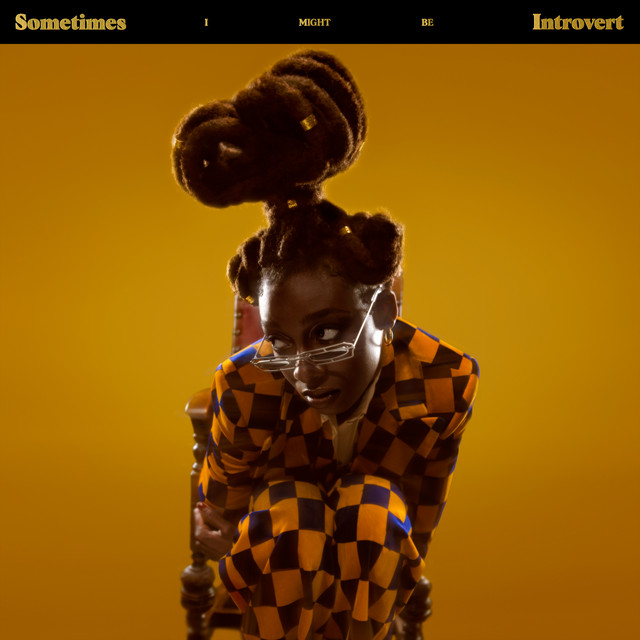 While artists like Skepta and Dave have come to define the future sound of British rap, it’s Little Simz who might very well leave the most lasting mark this year. Her single “I Love You, I Hate You” is one of the best all-around tracks of 2021. Produced by Inflo (who has had nothing short of a Midas touch on his work with SAULT, Michael Kiwanuka, Cleo Sol and Jungle), the song finds Simz sliding into each bar with dense lyricism that’s just flat-out impressive on a pointed track about her maligned father; there’s opening yourself up by being vulnerable and then there’s this: “Never thought my parent would give me my first heartbreak (I hate you) / Anxiety givin’ me irregular heart rate (I love you) / Used to avoid gettin’ into how I really feel about this (I hate you) / Now I see how fickle life can be and so it can’t wait (I love you) / Should’ve been the person there to hold me on my dark days (I hate you) / It’s easier to stargaze and wish than be faced with this reality (I love you) / Is you a sperm donor or a dad to me?” There’s emotional outpourings like this at every turn of Sometimes I Might Be Introvert, but it always sounds so grandiose. She’s as confident on the mic as they come and you can feel the cold, hard gaze in her eyes when she’s delivering lines like the one above. You vibe hard with how cool she is on “Woman,” saying, “Brooklyn ladies, know you hustle on the daily / Innovatin’ just like Donna Summer in the ‘80s.” She’s rapping for women, she’s rapping for Black women, she’s rapping for women all around the world, and she’s rapping for people who can appreciate how the hip-hop art form is built for marginalized voices to rise up. There’s broad appeal to her overall aesthetic, too, and now on her fourth album, Little Simz is poised to highlight the mighty British rap scene for good. —Adrian Spinelli
While artists like Skepta and Dave have come to define the future sound of British rap, it’s Little Simz who might very well leave the most lasting mark this year. Her single “I Love You, I Hate You” is one of the best all-around tracks of 2021. Produced by Inflo (who has had nothing short of a Midas touch on his work with SAULT, Michael Kiwanuka, Cleo Sol and Jungle), the song finds Simz sliding into each bar with dense lyricism that’s just flat-out impressive on a pointed track about her maligned father; there’s opening yourself up by being vulnerable and then there’s this: “Never thought my parent would give me my first heartbreak (I hate you) / Anxiety givin’ me irregular heart rate (I love you) / Used to avoid gettin’ into how I really feel about this (I hate you) / Now I see how fickle life can be and so it can’t wait (I love you) / Should’ve been the person there to hold me on my dark days (I hate you) / It’s easier to stargaze and wish than be faced with this reality (I love you) / Is you a sperm donor or a dad to me?” There’s emotional outpourings like this at every turn of Sometimes I Might Be Introvert, but it always sounds so grandiose. She’s as confident on the mic as they come and you can feel the cold, hard gaze in her eyes when she’s delivering lines like the one above. You vibe hard with how cool she is on “Woman,” saying, “Brooklyn ladies, know you hustle on the daily / Innovatin’ just like Donna Summer in the ‘80s.” She’s rapping for women, she’s rapping for Black women, she’s rapping for women all around the world, and she’s rapping for people who can appreciate how the hip-hop art form is built for marginalized voices to rise up. There’s broad appeal to her overall aesthetic, too, and now on her fourth album, Little Simz is poised to highlight the mighty British rap scene for good. —Adrian Spinelli
4. Waxahatchee: Tigers Blood (2024)
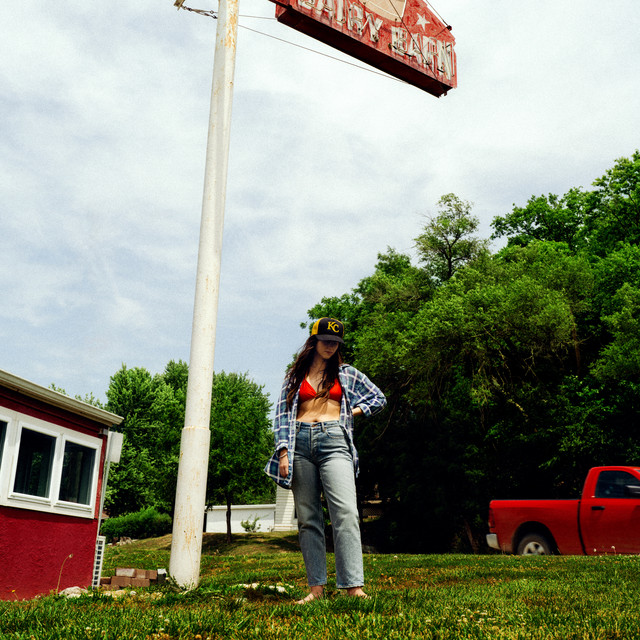 Tigers Blood is an album in-conversation with the past, seeking from it lessons that allow us a more peaceful present. On “3 Sisters,” Katie Crutchfield attempts to find alignment between two states—between her slower, smoother present-day and an unsteady past. Like with much of Tigers Blood, Crutchfield doesn’t find an easy middle-ground between the two, but she remains admirably committed to navigating the conflict with a radical, clear-eyed honesty. “Right Back To It,” Tiger Blood’s lead single featuring guitar virtuoso Jake “MJ” Lenderman, is the closest thing the new LP has in terms of a spiritual successor to the album it’s following up. Warm harmonies shared between Lenderman and Crutchfield—as well as pleasingly melodic banjo and guitar melodies—evoke the irresistible charms of Saint Cloud, while clearly baring the rangy, Southern tendencies of Lenderman’s Carolina influence. Despite lyrics alluding to a relentlessly restless mind, the song exudes inner peace, with the past becoming a source of comfort rather than consternation. If Saint Cloud and its lead single “Fire” captured the initial “pink cloud” of sobriety (and all the nervous anticipation that comes with it), then “Right Back To It” showcases the well-earned euphoria that comes from settling in to being clean long-term. But Tigers Blood doesn’t merely represent the natural progression from Saint Cloud or ring in a sober celebration. In fact, it reads as the triumphant culmination of every album Waxahatchee has released up until this point. —Tom Williams
Tigers Blood is an album in-conversation with the past, seeking from it lessons that allow us a more peaceful present. On “3 Sisters,” Katie Crutchfield attempts to find alignment between two states—between her slower, smoother present-day and an unsteady past. Like with much of Tigers Blood, Crutchfield doesn’t find an easy middle-ground between the two, but she remains admirably committed to navigating the conflict with a radical, clear-eyed honesty. “Right Back To It,” Tiger Blood’s lead single featuring guitar virtuoso Jake “MJ” Lenderman, is the closest thing the new LP has in terms of a spiritual successor to the album it’s following up. Warm harmonies shared between Lenderman and Crutchfield—as well as pleasingly melodic banjo and guitar melodies—evoke the irresistible charms of Saint Cloud, while clearly baring the rangy, Southern tendencies of Lenderman’s Carolina influence. Despite lyrics alluding to a relentlessly restless mind, the song exudes inner peace, with the past becoming a source of comfort rather than consternation. If Saint Cloud and its lead single “Fire” captured the initial “pink cloud” of sobriety (and all the nervous anticipation that comes with it), then “Right Back To It” showcases the well-earned euphoria that comes from settling in to being clean long-term. But Tigers Blood doesn’t merely represent the natural progression from Saint Cloud or ring in a sober celebration. In fact, it reads as the triumphant culmination of every album Waxahatchee has released up until this point. —Tom Williams
3. Fiona Apple: Fetch the Bolt Cutters (2020)
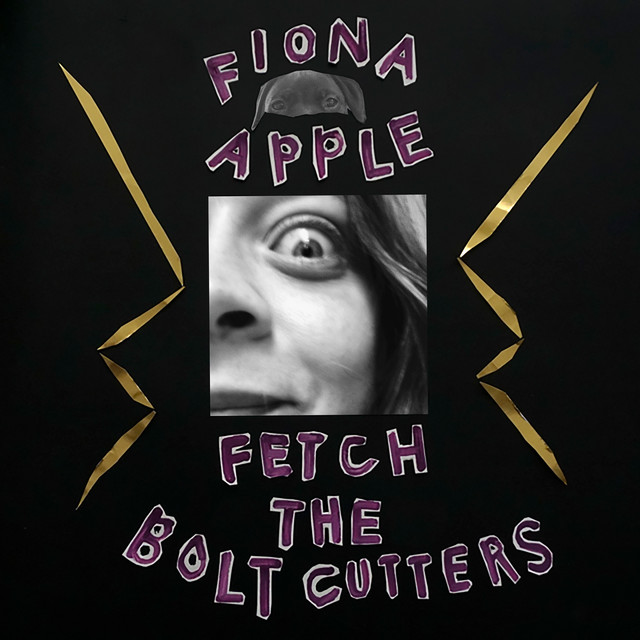 Fiona Apple engages our minds like no one else. Like all of her records before it, Fetch the Bolt Cutters taps into both the repulsive and the revolutionary. Apple has never been one to deliver approachable melodies or catchy choruses—she repeatedly serves us the abnormal, in all its twisted glory, with minor chords and off-kilter rhythms, often constructed with everyday objects rather than musical instruments. As a woman who lives mostly secluded from society and releases music so rarely, she’s frequently the object of speculation and even sexualization (see: the late ’90s). She doesn’t like to do what is expected of her. She’s said as much. So it’s funny that Fetch the Bolt Cutters is exactly what so many expected it to be: brilliant. In a surprise to probably no one, Apple is now five for five. Over the last 25 years, she has made five albums that have all—in due time—ascended to holy text status, even if it took some longer than others to come around to her genius. Her most recent, the staggeringly good The Idler Wheel… arrived in 2012. Before that: Extraordinary Machine, in 2005. But Apple isn’t just sitting on these songs during the long gaps between albums; she’s buffing them to perfection. Fetch the Bolt Cutters is finally here, and it’s another miraculous case of bottled lightning. Listening to Fiona Apple is often like bearing witness to a prophet speaking in tongues. It can be difficult, at times, to make out what exactly she’s getting at in any given verse, but there’s an overwhelming sensation that what she’s singing is vastly important. In Fetch the Bolt Cutters’ case, these psalms beam clearer than ever before. —Ellen Johnson
Fiona Apple engages our minds like no one else. Like all of her records before it, Fetch the Bolt Cutters taps into both the repulsive and the revolutionary. Apple has never been one to deliver approachable melodies or catchy choruses—she repeatedly serves us the abnormal, in all its twisted glory, with minor chords and off-kilter rhythms, often constructed with everyday objects rather than musical instruments. As a woman who lives mostly secluded from society and releases music so rarely, she’s frequently the object of speculation and even sexualization (see: the late ’90s). She doesn’t like to do what is expected of her. She’s said as much. So it’s funny that Fetch the Bolt Cutters is exactly what so many expected it to be: brilliant. In a surprise to probably no one, Apple is now five for five. Over the last 25 years, she has made five albums that have all—in due time—ascended to holy text status, even if it took some longer than others to come around to her genius. Her most recent, the staggeringly good The Idler Wheel… arrived in 2012. Before that: Extraordinary Machine, in 2005. But Apple isn’t just sitting on these songs during the long gaps between albums; she’s buffing them to perfection. Fetch the Bolt Cutters is finally here, and it’s another miraculous case of bottled lightning. Listening to Fiona Apple is often like bearing witness to a prophet speaking in tongues. It can be difficult, at times, to make out what exactly she’s getting at in any given verse, but there’s an overwhelming sensation that what she’s singing is vastly important. In Fetch the Bolt Cutters’ case, these psalms beam clearer than ever before. —Ellen Johnson
2. Alvvays: Blue Rev (2022)
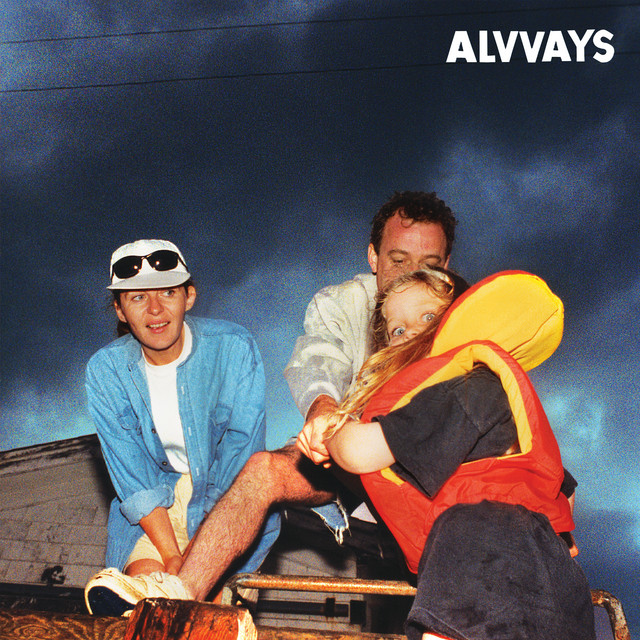 Alvvays are masters of quality over quantity—they know what they have to say, and they waste no time getting to the point. The most recent release on the greatest albums of all time list we published this past summer, Blue Rev is a joyride of masterfully written jangle-pop tunes that were recorded in one sitting, with producer Shawn Everett filling in the gaps and fleshing out the texture of the record’s all-killer-no-filler 14 tracks. The group became Grammy underdogs with the standout single “Belinda Says,” which contains one of the best key changes of the last decade. The musical chemistry between every member of Alvvays soars through each track’s story, many of which are inspired by frontwoman Molly Rankin’s favorite books, lyrics and Go-Go’s member. Blue Rev is an album about identity and sense of self. Alvvays, who’ve never dropped an EP or a standalone single, act without flaw. —Leah Weinstein
Alvvays are masters of quality over quantity—they know what they have to say, and they waste no time getting to the point. The most recent release on the greatest albums of all time list we published this past summer, Blue Rev is a joyride of masterfully written jangle-pop tunes that were recorded in one sitting, with producer Shawn Everett filling in the gaps and fleshing out the texture of the record’s all-killer-no-filler 14 tracks. The group became Grammy underdogs with the standout single “Belinda Says,” which contains one of the best key changes of the last decade. The musical chemistry between every member of Alvvays soars through each track’s story, many of which are inspired by frontwoman Molly Rankin’s favorite books, lyrics and Go-Go’s member. Blue Rev is an album about identity and sense of self. Alvvays, who’ve never dropped an EP or a standalone single, act without flaw. —Leah Weinstein
1. McKinley Dixon: For My Mama and Anyone Who Look Like Her (2021)
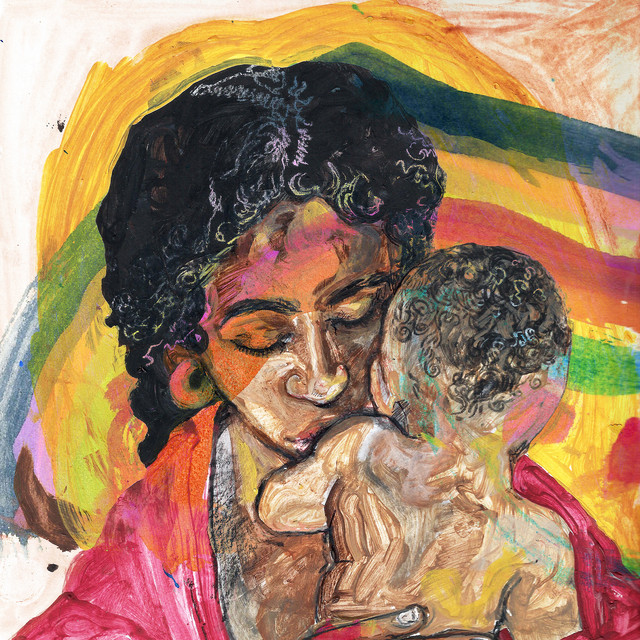 When McKinley Dixon opened his 2021 album For My Mama and Anyone Who Look Like Her, he wrote these words: “We twist our fingers into guns / They get torn apart by the sun.” It was clear from the jump that Dixon would leave no truths unchecked; that every instance of uncomfortable brutality in his close proximity would find a place on the page—and some type of beauty would exist within the same margins. With references to Toni Morrison’s Songs of Solomon and The Bluest Eye pulsing within, Dixon’s work is like an ongoing novel, one that projects a very plainspoken, beautiful articulation of how Black love intersects with violence and community, and what tenderness might look and feel like when it interacts with wreckage—a theme Morrison was often gnawing at in her own bibliography. Dixon himself calls For My Mama a record about time travel, a project that can give new language to process death, drugs and consequences. Accessibility—and the lack of consequences for the white people who exploit it—was a big, big piece of For My Mama and Anyone Who Look Like Her. Dixon grappled with how white people are lauded for making uninspiring art, while unpacking why Black creators must become sadomasochists in conversation with their own turmoil—often in order to find praise from critical think-tank machines playing God.
When McKinley Dixon opened his 2021 album For My Mama and Anyone Who Look Like Her, he wrote these words: “We twist our fingers into guns / They get torn apart by the sun.” It was clear from the jump that Dixon would leave no truths unchecked; that every instance of uncomfortable brutality in his close proximity would find a place on the page—and some type of beauty would exist within the same margins. With references to Toni Morrison’s Songs of Solomon and The Bluest Eye pulsing within, Dixon’s work is like an ongoing novel, one that projects a very plainspoken, beautiful articulation of how Black love intersects with violence and community, and what tenderness might look and feel like when it interacts with wreckage—a theme Morrison was often gnawing at in her own bibliography. Dixon himself calls For My Mama a record about time travel, a project that can give new language to process death, drugs and consequences. Accessibility—and the lack of consequences for the white people who exploit it—was a big, big piece of For My Mama and Anyone Who Look Like Her. Dixon grappled with how white people are lauded for making uninspiring art, while unpacking why Black creators must become sadomasochists in conversation with their own turmoil—often in order to find praise from critical think-tank machines playing God.
For My Mama and Anyone Who Look Like Her denounced martyrdom by having everybody and their mother in on the project—including Teller Bank$, Alfred., Abby T and Michah James—which is a mode of collaboration that Dixon thrives on. Like Frank O’Hara, Dixon sees the world and allows us to step through it with him. Take a poem like “Walking,” which is very much about O’Hara chronicling a random venture through the streets of New York: The beauty of that piece is not because it is some great undertaking or moving image, but because it is real and sublime and boring. The beauty is in the ordinary, and the syntax in which O’Hara is working from, much like Dixon’s own approach to songwriting, is a method that acts a microphone for the people and the architecture he’s indebted to. Beyond titling the LP in honor of his mother, Dixon writes from a place of homage towards the women in his life. Take the song “Chain Sooo Heavy,” where he raps about the convergence of his grandmother’s mortality and the survival of his peers: “Same thing for the homies / If I speak her name, will it keep her alive? I’m so selfish.”
Dixon’s work is done as a way of building a museum that tends to the conversation around Black art—a far-ranging and breathing memoir that is eternally in progress via the forever-evolving ways that Black people write about place or experience place in the shadow of vacancy. In “make a poet Black,” he speaks loudly of “joyful hymnals packed with subliminals that distract from the fact I’m without my kinfolk.” In “Chain Sooo Heavy,” Dixon raps: “Orchestrate the way we live / Maneuver through the pain that they give / You stronger than what they say you is / Little man, this chain will make you big / It’ll change your life for better or worse.” Though he often sings about his adjacency to the ground—a great, overwhelming metaphor for a burial he and his Black kinfolk are always outrunning—Dixon cannot help but fantasize about becoming so big he can snatch paradise from the sky. To always be on the doorstep of a next day erased, it is second-nature to conceptualize perennial faith into the now and suffering into a bygone. —Matt Mitchell
GET PASTE RIGHT IN YOUR INBOX
The best music, movies, TV, books, comedy and more.
-

-

-

-

-

-

-

-

-

-

-

-

-

-

-

-

-

-

-

-

-

-

-

-

-

-

-

-

-

-

-

-

-

-

-

-

-

-

-

-








































